


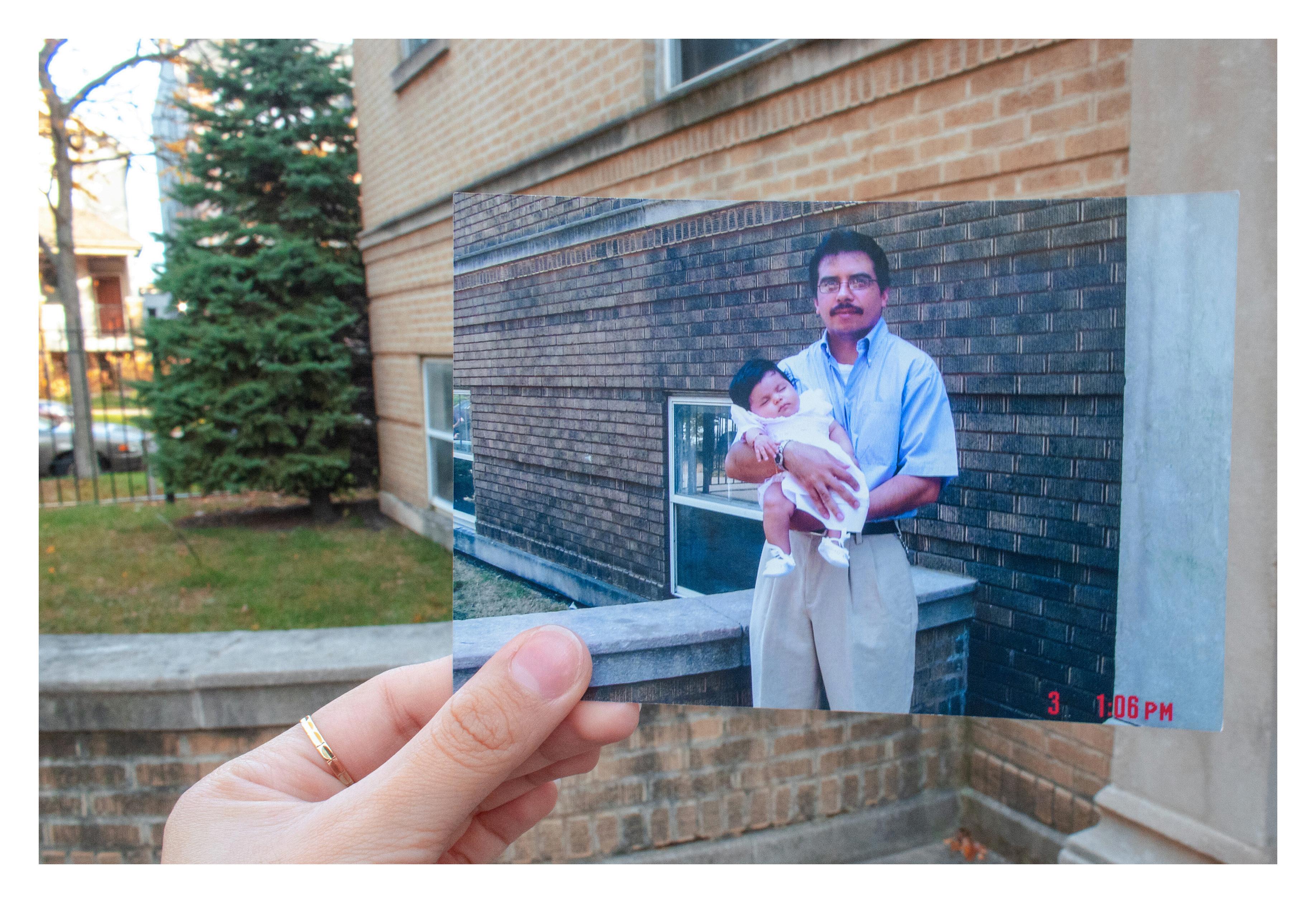
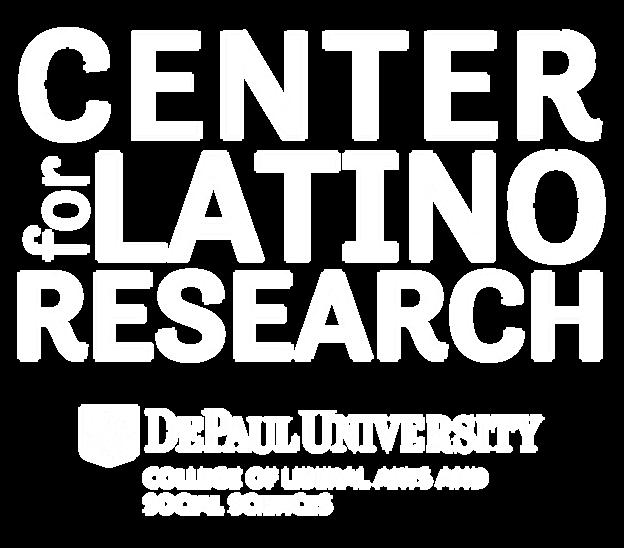








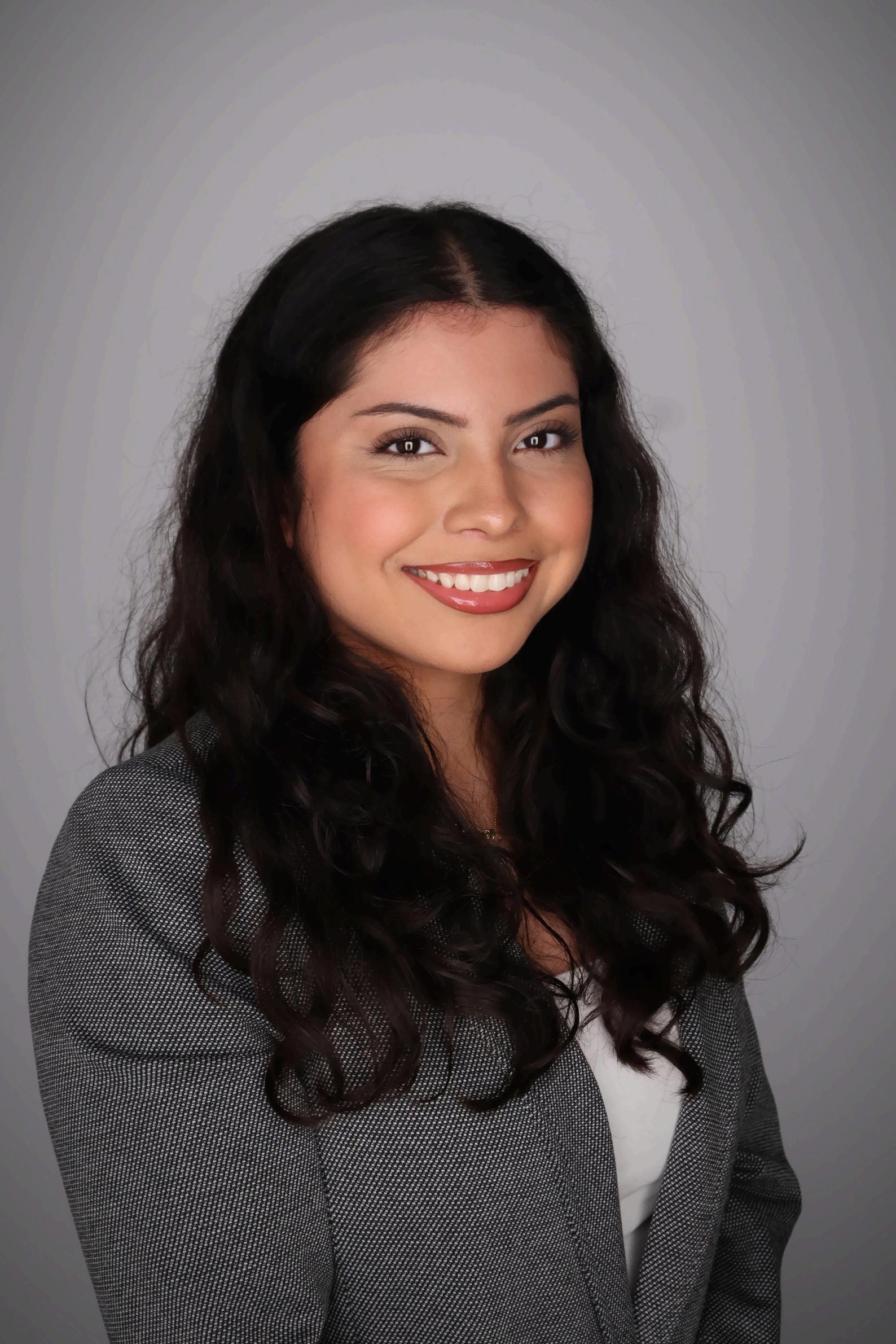


Daniella Ochoa is the winner of our first Latinx Photography Competition, which was organized by the CLR and the DePaul Art Museum, in connection with their current exhibition on the work of photographer Christina Fernández. Daniella’s savvy winning entries tie photography to memory, community history, the passage of time, and loss. Our cover photo restages a family photo of the artist as an infant with her father. Daniella’s award was announced at a recent panel discussion of Chicago Latinx photographers, held at the DePaul Art Museum. The event is described on page 44.
Daniella is a Mexican American Chicago-born design student at DePaul, double majoring in User Experience and Graphic Design. Born as an only child to her immigrant parents, she grew up on the Northside of the city in a predominately white neighborhood. She took a beginning photography course at DePaul, which she ended up loving and in which she excelled. Although she is working towards her design degree, she has always loved all creative things! She is mainly inspired by her upbringing, hoping to uplift others like herself. She loves surrounding herself with other creatives and working with people from all sorts of backgrounds to exchange ideas, communicate meaningful stories, and create work that is inclusive, thoughtful, and community-centered
of Our Own: Maria Isabel Ochoa Alvarez
LALS
Dr. Lourdes Torres
Lesbian Lives
Event
Poesía En Abril: Amaneceres
Screening for La Pescera (The Fishbowl) Event
in Higher ED
2024-2025 CLR Board Spotlight: Dr. Ionit Behar
Screening and Discussion Separated (2024) By Errol Morris CLR/LALS
Yvette Flores
Your Rights: A Workshop with Fred Tsao LatinxBookClub:HerBodyandOtherParties
for None: Border Violence Against Migrants and Nature in the Sonoran Desert with Dr. Naomi Paik
The Center for Latino Research (CLR) strives to open and sustain dialogues that foster the empowerment and advancement of Latinx communities. To that end, the CLR creates learning opportunities for students and supports scholars in their research, while forging collaborative relationships with local, national, and international research partners. We also publish an award-winning scholarly journal, Diálogo, and sponsor many activities on campus, including film series and speaker series.
The Department of Latin American and Latino Studies (LALS) explores the myriad contributions of Latin Americans and Latinx people to the global community. The department’s programs emphasize the profound linkages that have emerged between Latin America and the United States, particularly through the construction of Latinx communities in the U.S. We also critically analyze the complex intersections with Indigenous, African, European, Semitic, Arab, and Asian communities throughout the Americas.
Edited and Designed by:
Gigi Lara Goutam Kumar
Yamitza A Yuivar Villarreal
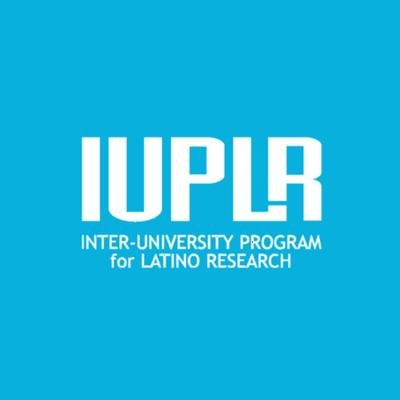
Published by:
The Center for Latino Research and The Department of Latin American and Latino Studies at DePaul University
One of James Baldwin’s biographers, Fern Eckman, quoted Baldwin as having said: “There really is a level on which, you know, everybody finds himself [sic]–dictated to—by his time and his place [The] fact that you’re born in 1924, in a certain country, a certain color […] dictates a certain course Dictates, in some way, what you will do.” (57) Like St. Vincent, Baldwinemphasizeswhatmustbedone.
The end of another school year gives us the opportunity to look back over what we’ve been doing. One significant accomplishment this year was the renewal by the Mellon Foundation of the grant funding the Social Transformation Research Collaborative (STRC). Co-led by Dr. Julie Moody-Freeman of the Center for Black Diaspora, the STRC will continue to sponsor research about the histories and cultures of people of color through fellowships for faculty and students, our annual Summer Institute for new students, and our symposium in the fall. We are grateful for the Mellon Foundation’s generosity, which has played a crucial role in allowing ustosupport this anti-racist work in today’sdifficultpoliticalclimate.Congratulationstoallournewfellows!
In addition to the STRC, the CLR has also worked consistently throughout the year to create programming to raise awareness about immigration and human rights. We want to express our gratitude to all the community activists, guest speakers, filmmakers, and DePaul faculty experts who shared their knowledge and creative work with us at these events.YouhelpusfulfilltheCLR’smissiontoempowerourcommunities!
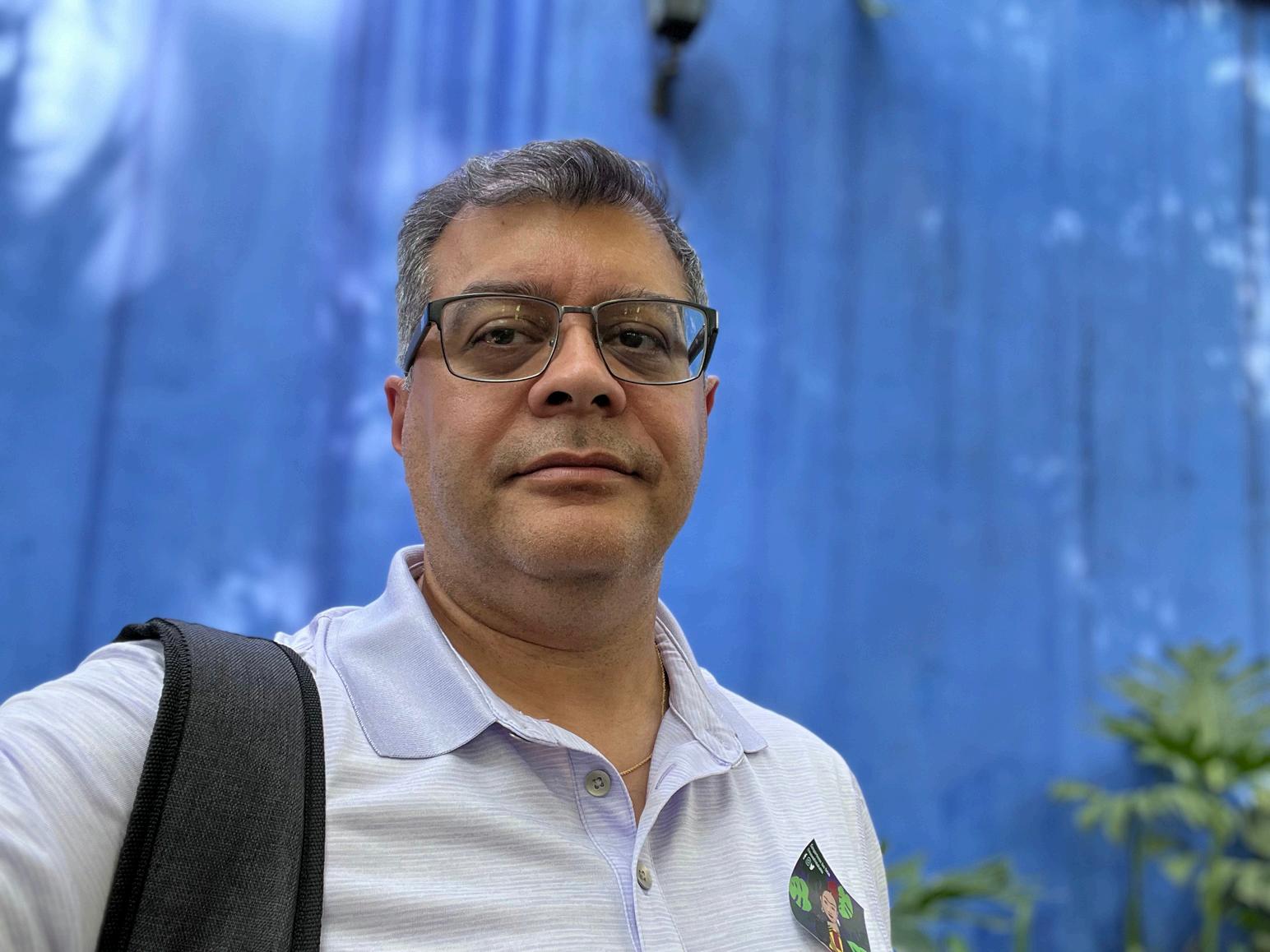
There are so many other wonderful things to be grateful for right now – a new group of CLR Faculty Fellows, an anniversary edition of Diálogo on Chicago, another successful quarterofourLatinxBookClub!We’restayingfocused;we’redoingthework.
~BillJohnsonGonzález
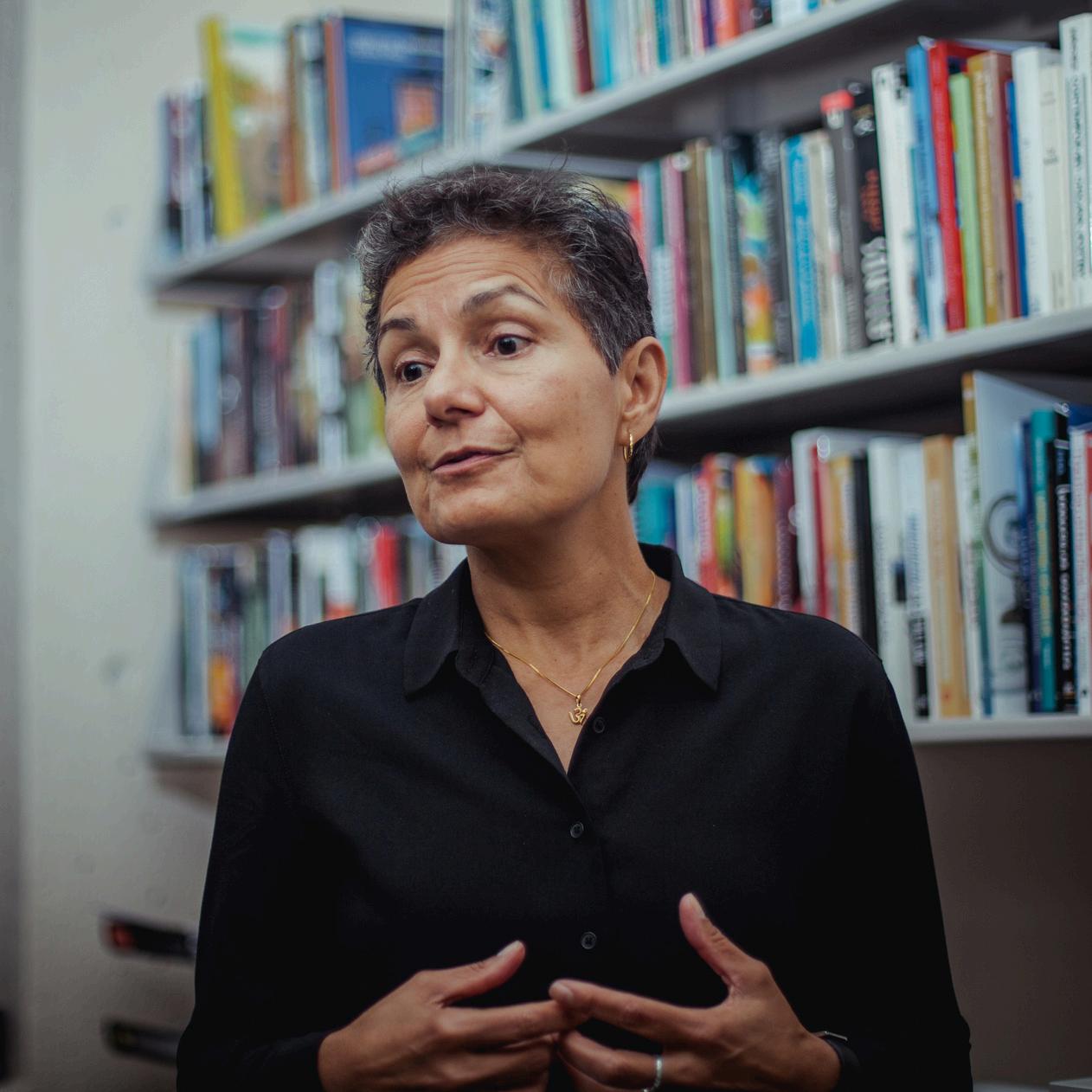
Holalectores,
It’s been a challenging year, and as I reflect on the contents of this newsletter, I’m heartened by all that we’ve accomplished together over the past quarter. The events and activities we’ve hosted and participated in demonstrate the strength of our collective efforts to confront the many challenges facing Latinx communities, both on campus and beyond, while also uplifting and celebrating the remarkable scholarship and creative contributions of our faculty and students.
Though the obstacles remain significant, we must continue to support one another in the ongoing pursuit of social justice and transformative change Now is not the time for discouragement or despair. Instead, let us draw inspiration from the work and lives of students, alumni, and colleagues featured in this newsletter, such as Daniella Ochoa, Yoalli Rodríguez Aguilera, María Isabel Ochoa, Yvette Flores, and Ionit Behar. Their passion and dedication remind us of the power of community and the importance of remaining steadfast inourcommitments.
As the academic year comes to a close, we also celebrate the achievements of our graduating students in Latin American and Latino Studies. To those who have completed majors and minors in our department, and to all Latinx student scholars, we offer heartfelt congratulations. You and your families should be proud of all you’ve accomplished. As you join the community of DePaul alumni, we can’t wait to see where your journeys take you. Pleasestayintouch—weareexcitedtocheeryouoneverystepoftheway.
~LourdesTorres
Marisa Alicea, Professor, Vincent DePaul Professor School of Continuing and Professional Studies
Carolina Barrera Tobón, Associate Professor Modern Languages
Ionit Behar, Curator | DePaul Art Museum
Rocío Ferreira, Associate Professor | Modern Languages
Martha Martinez-Firestone, Associate Professor and Director of Undergraduate Program | Sociology
Julie Moody-Freeman, Associate Professor, African and Black Diaspora Studies | Director, Center for Black Diaspora
Jacqueline Lazú, Associate Professor, Vincent DePaul Professor | Modern Languages
Jesús Pando, Associate Professor, Chair Physics and Astrophysics, College of Science and Health
José Perales, Interim Vice President Office of Institutional Diversity and Equity
Carolina Sternberg, Professor Latin American and Latino Studies
Joe R. Tafoya, Assistant Professor | Political Science
Lourdes Torres, Vincent DePaul Professor, Chair Latin American and Latino Studies
Carolina Sternberg, Professor Latin American and Latino Studies
Yoalli Rodriguez Aguilera, Assistant Professor Latin American and Latino Studies
Marisa Alicea, Professor, Vincent DePaul Professor School of Continuing and Professional Studies
Luisela Alvaray, Associate Professor Media and Cinema Studies
Glen Carman, Associate Professor Modern Languages
Delia Cosentino, Professor History of Art and Architecture
Rocío Ferreira, Associate Professor Modern Languages Department Chair, Women's and Gender Studies
Bill Johnson González, Associate Professor, English Director, Center for Latino Research
Jacqueline Lazú, Associate Professor, Vincent DePaul Professor Modern Languages
Jordan Levy, Assistant Professor Anthropology
Martha Martinez-Firestone, Associate Professor, Sociology Director, Undergraduate Sociology Program
Susana S Martínez, Associate Professor, Modern Languages Director, Peace, Justice & Conflict Studies Program
Elizabeth Millán, Professor, Chair Philosophy
Heather Montes-Ireland, Associate Professor Women's and Gender Studies
Jesse Mumm, Professional Lecturer Latin American and Latino Studies
Miguel Ángel Castañeda, Social Transformation Research Collaborative (STRC) Post-Doctoral Fellow | Latin American and Latino Studies
Juan Mora-Torres, Associate Professor History
Vincent Peña, Assistant Professor Journalism and Sports Communication, College of Communication
Xavier Pérez, Assistant Professor Criminology
Olga Salazar Pozos, Assistant Professor Spanish, Modern Languages
Lydia Saravia, Professional Lecturer Writing, Rhetoric and Discourse
Monica Reyes, Assistant Professor Writing, Rhetoric and Discourse
Ana Schaposchnik, Associate Professor History
Jose Soltero, Professor Sociology
Sonia Soltero, Professor, Chair Leadership, Language and Curriculum, College of Communication
Rose J Spalding, Professor, Vincent DePaul Professor Political Science
Joe R Tafoya, Assistant Professor Political Science

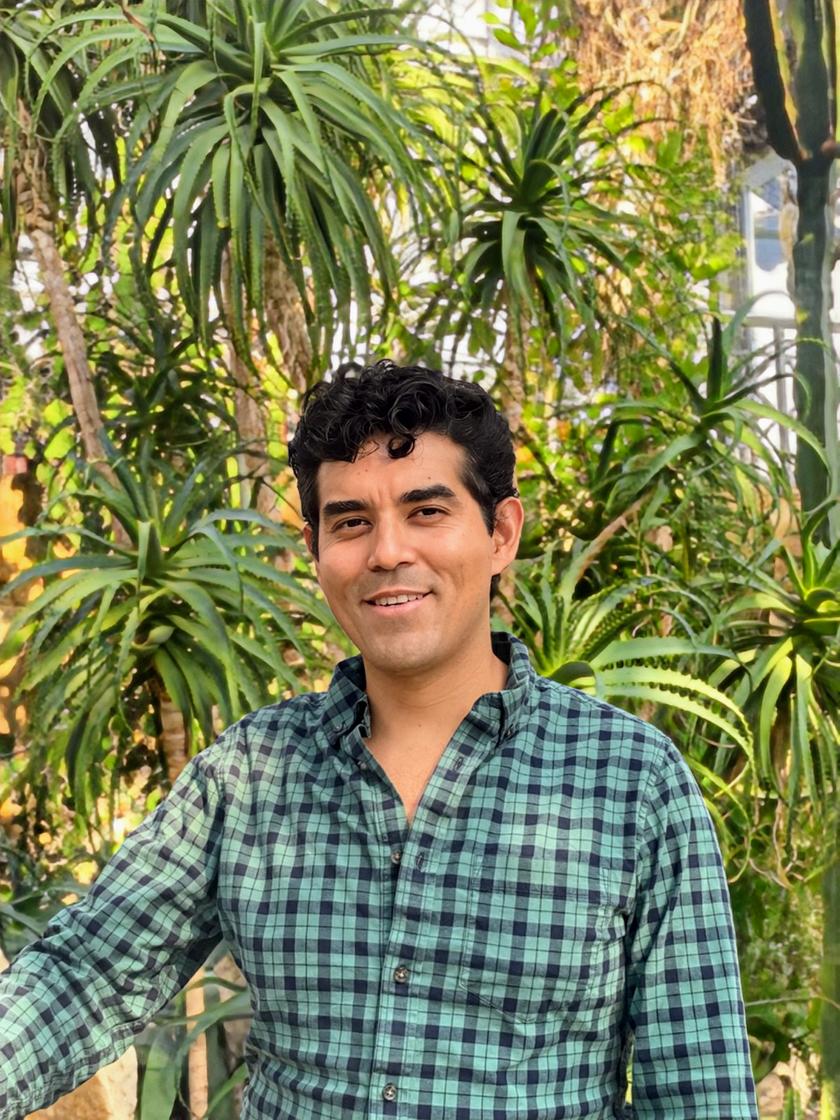

Joe Tafoya is honored to announce that he received an Early Career Award from the Latina/Latino Caucus of the Midwestern Political Science Association. This award recognizes his commitment to excellence in research, service to the academic community, and mentorship of emerging Latinx politics scholars He is grateful for the support of his colleagues and excited to continue contributing to the growing field.

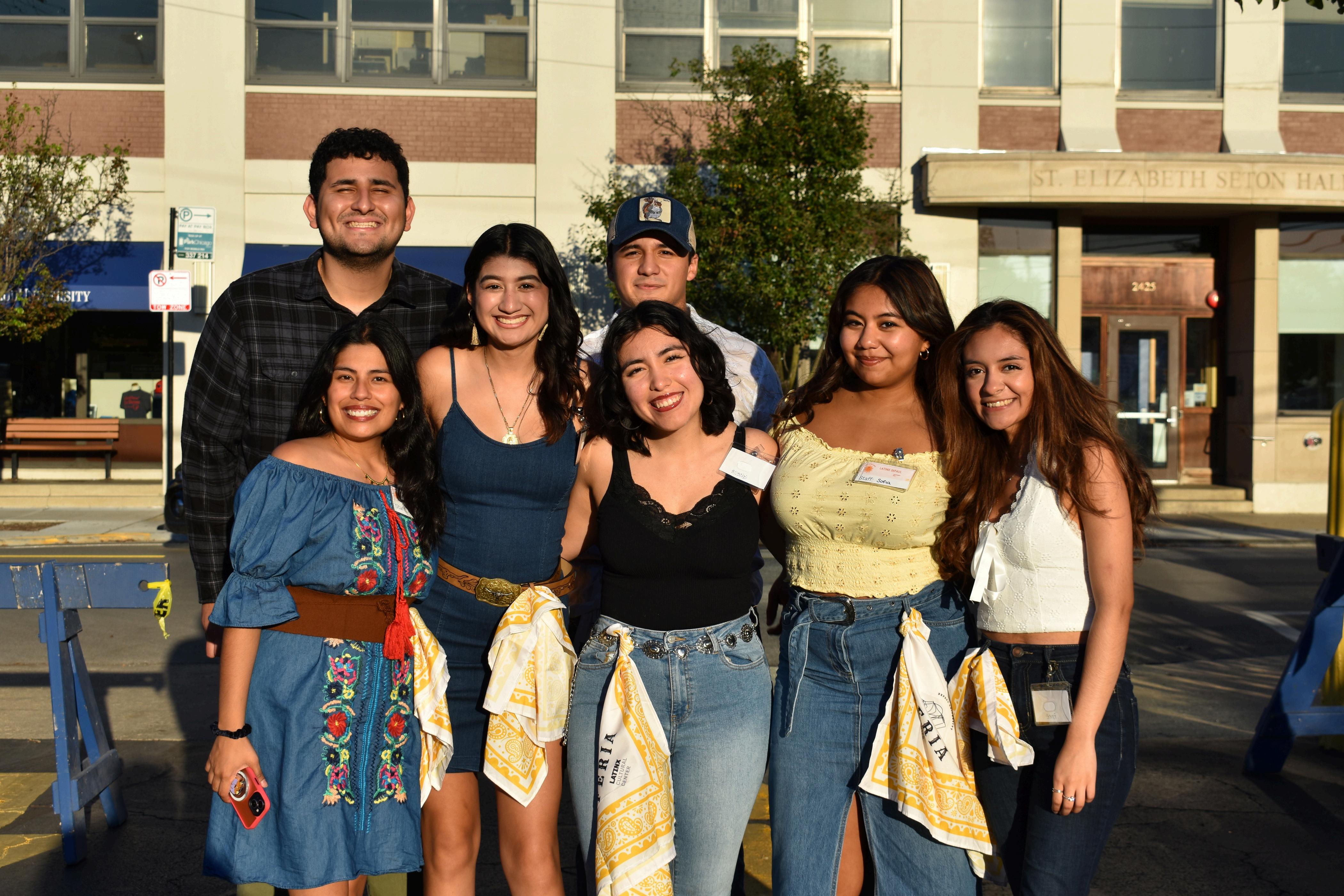
The Latinx Cultural Center will be hosting a Send Off Celebration to honor the Class of 2025 on Friday, May 30th at 6:30 PM in the Lincoln Park Student Center Room 120AB This celebration recognizes the academic journey and involvement of students of Latina/e/o/x descent and is meant to embrace their culture as a part of thecelebration.
For any further questions, contact latinx@depaul.edu or visit the Latinx Cultural CenterlocatedinO’ConnellHall360.
In support of her sabbatical for the 2025-2026 academic year, Delia Cosentino has received a Mellon Foundation Long-Term Fellowship at the Newberry Library. An initial foray into her new research project, entitled “The Making of a Mexican Spartacus: Aztec Gladiators and European Print Culture,” has been published in the Colnaghi Studies Journal (London, Spring 2025). Cosentino was recently invited to join the editorial board of the journal Latin American and Latinx Visual Culture (University of California Press) and will serve for the next three years.
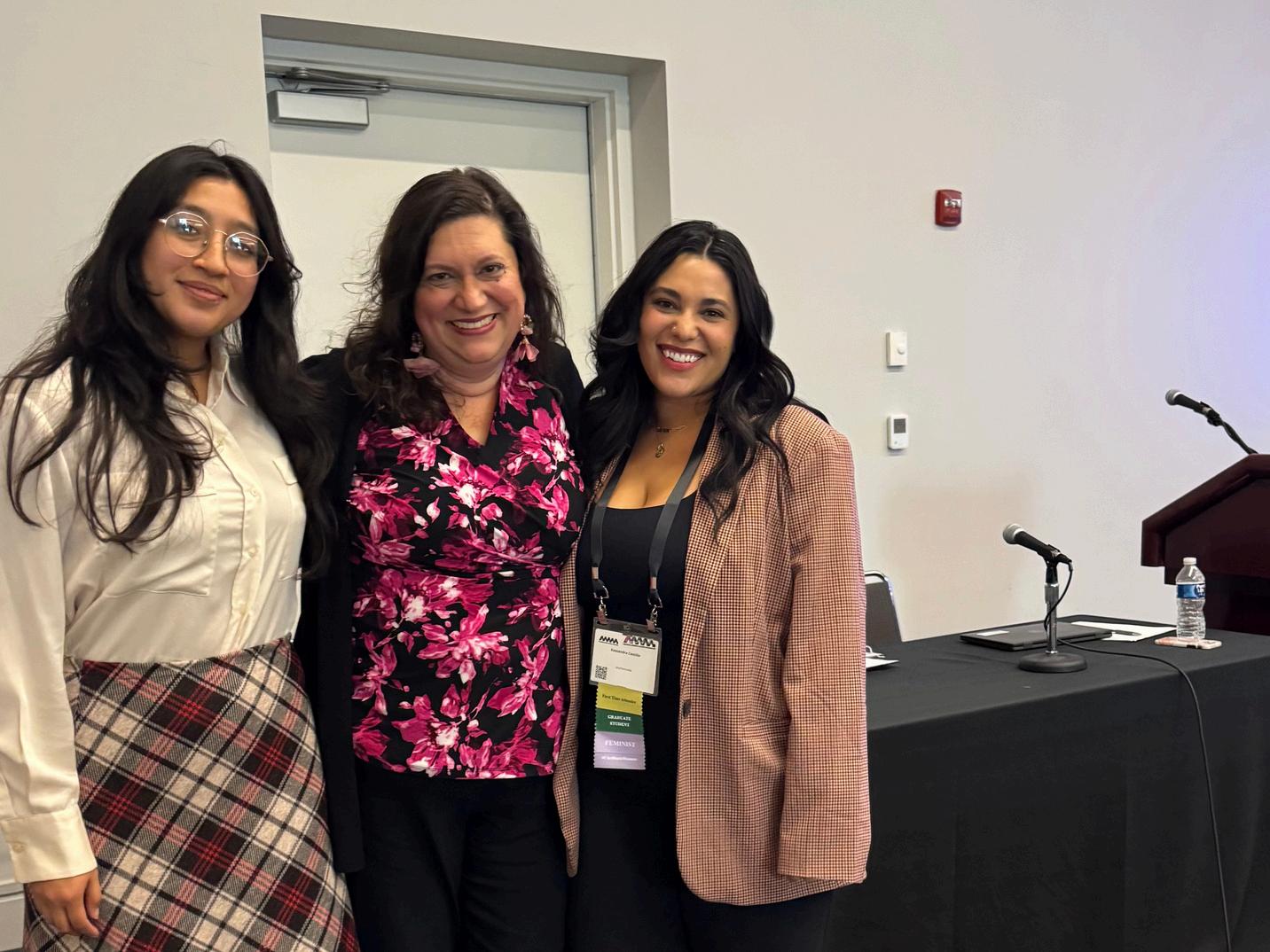
At the National Women's and Gender Studies Association conference in Detroit, MI, Dr. Heather Montes Ireland presented her work on dignity and the post-work imagination in Latina visual culture on the panel "Dignidad y Justicia: Envisioning Latina Decolonial Feminist Conceptualizations of Dignity and Justice" along with DePaul alumnae Priscila Sanchez Neyra (LAS '23) and Kassandra Castillo (LAS MA '20).

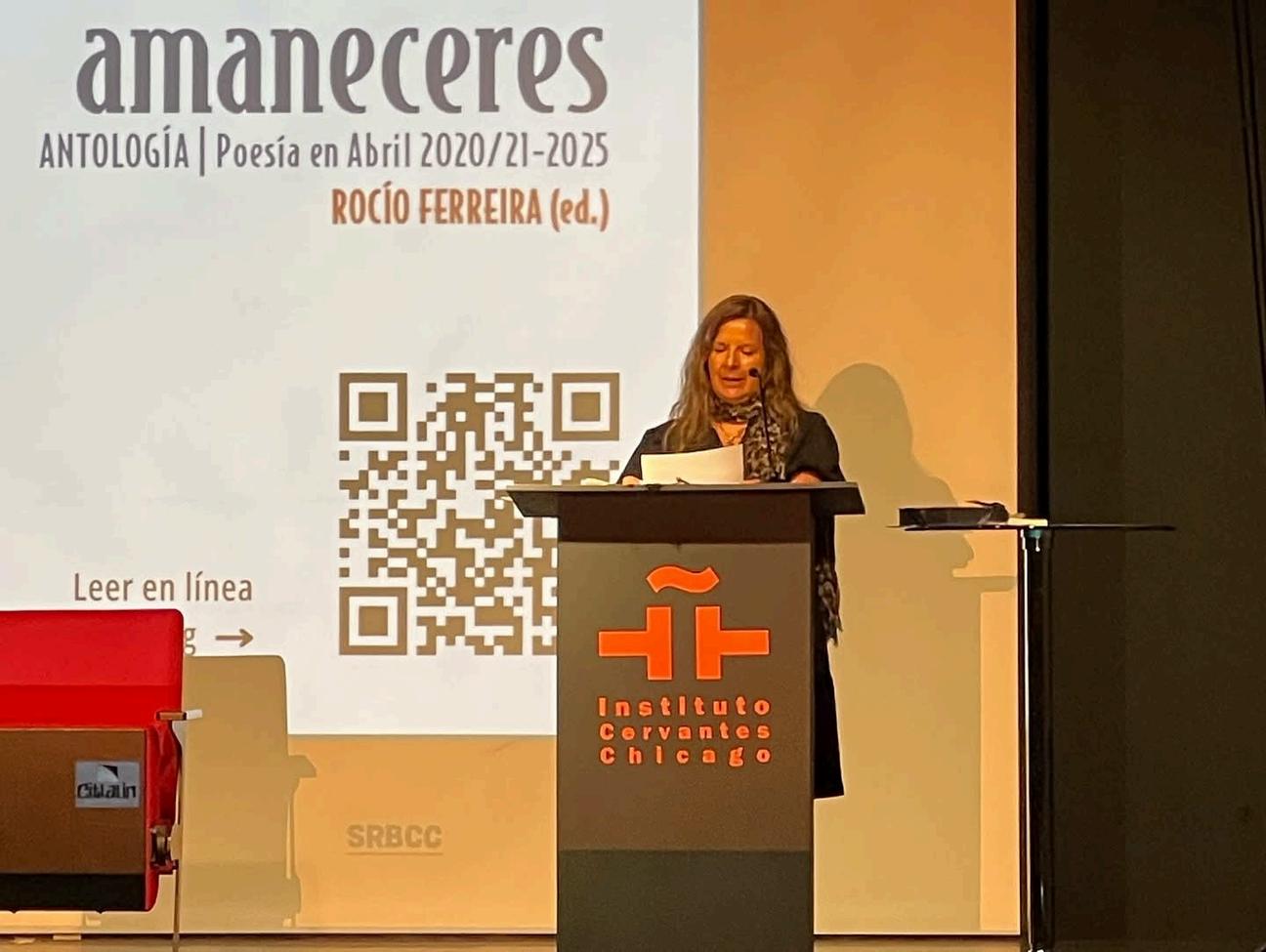
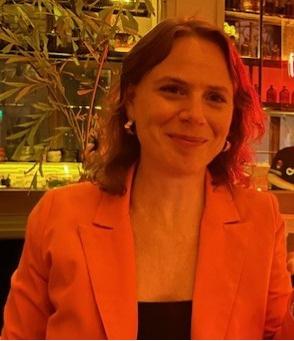

Dr. Rocío Ferreira (ed.) has published a new poetry anthology titled Amaneceres. Poesía en Abril 2020/2021–2025 with Rialta Ediciones. The collection brings together the voices of 77 poets from across the Spanish-speaking world, representing both emerging and established figures in contemporary poetry.

Carolina Sternberg is very pleased to announce that she received the 2025-2026 CLR Faculty Fellowship to advance her project on: "Unearthing Racial and Urban Dynamics in Salvador (Brazil) and Chicago (US): Race, Gentrification, and Whiteness"
She is interested in exploring the intersections of race and gentrification in Salvador, Brazil, and Chicago, USA, two cities with long histories of racial segregation and dynamic urban transformations that have significantly impacted Afro-Brazilians’ and African Americans’ access to affordable housing She has already conducted research on this topic in Chicago, specifically in Bronzeville and Garfield Park. During the fellowship, she aims to examine how anti-Black rhetoric and the presence of a white population shape property and rent values in Salvador and later compare her results forSalvadorwithChicago.
ShewillbeginthisprojectinFall2025andwilltaketheWinterQuarterofftoconduct mmunity organizers, and government officials in
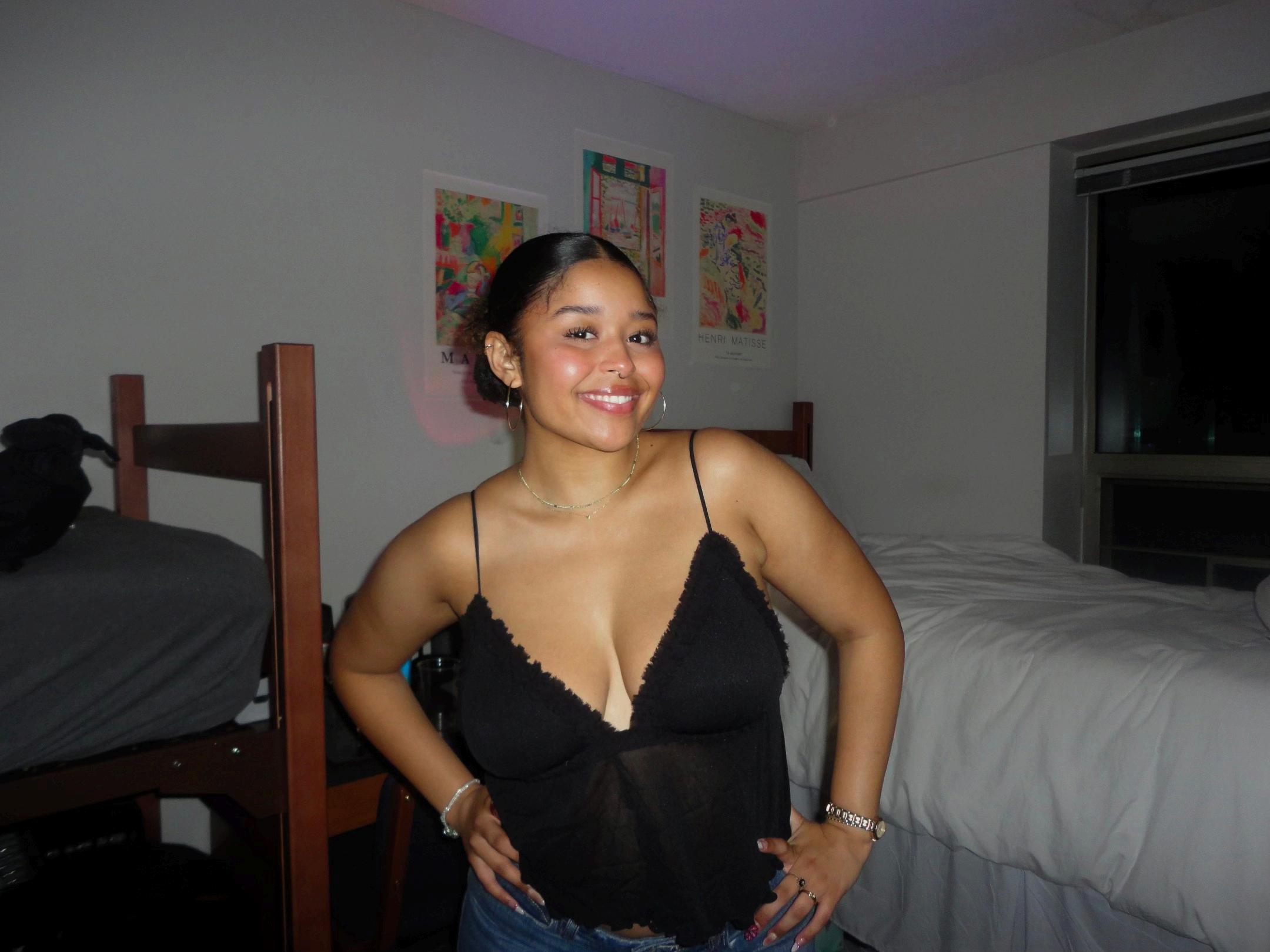
Gigi is excited to announce her summer plans as a Social Transformation Research Collaborative (STRC) Undergraduate Student Research Fellow and a McCormick Intern through the Steans Center for Community-Based Service Learning & CommunityServiceStudies
As an STRC undergraduate research fellow, Gigi will learn how to conduct her own humanities research and write a report on her chosen topic concerning social justice Through the McCormick Internship, she will collaborate with the LALS Chair, Dr. Lourdes Torres, and the National Museum of Puerto Rican Arts & Culture in Humboldt Park to advocate for Spanish-language acquisition by teaching culturallydrivenSpanishclasses.
“Thank you, Billy Johnson Gonzalez, Lourdes Torres, Alejandra Delgadillo, and the restofourlovelyCLR&LALSteamforyourunconditionalsupport!”

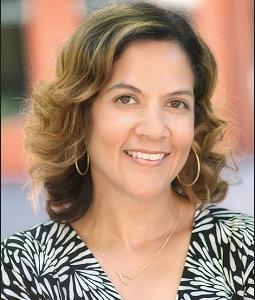
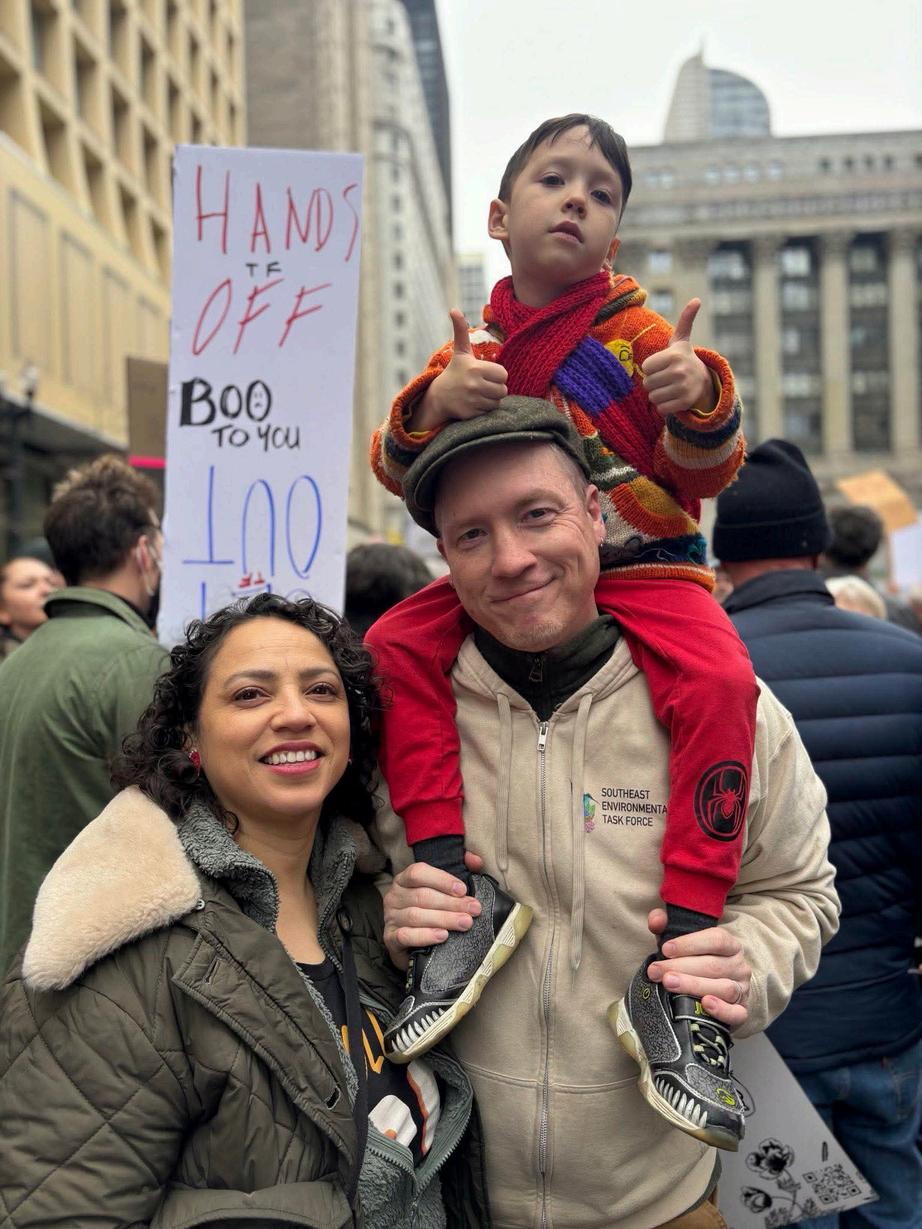
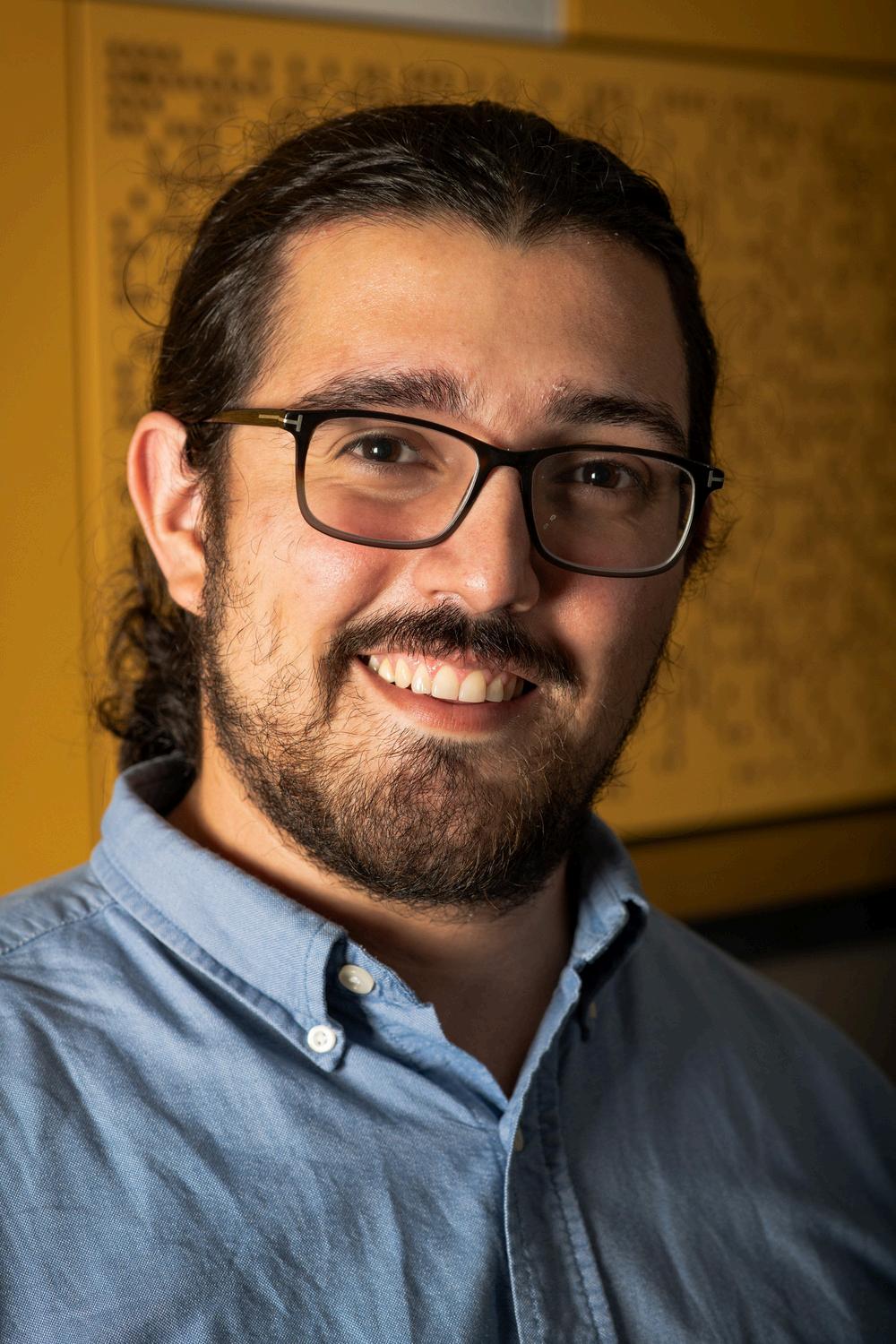

Dr. Jacqueline Lazú (Modern Languages) has been awarded the Dammrich Faculty Innovation Award to support her project “Activating Archives: Hybrid Teaching and Public Humanities through Tengo Lincoln Park en mi Corazón”. The award will fund the redesign of SPN 392/492: Transnationalism and Social Justice as a hybrid course that bridges classroom learning with the public humanities. Students will engage directly with the DePaul Art Museum exhibition Tengo Lincoln Park en mi Corazón: The Young Lords in Chicago, producing bilingual zines and original audio projects rooted in archival research, memory, and community resistance. Their work will be shared on a course-linked digital platform, extending the impact of both the class and the exhibition.

Jesse Mumm is on leave to write his book on gentrification in Chicago neighborhoods, but still spoke on Mexican and Puerto Rican Chicago history at the Juntos, Educados y Unidos series hosted at the Latinx Cultural Center He is also sharing recent work on native, Black, and Latino presences in Kankakee County with our Native American and Indigenous Student Association He was interviewed by Dr Jonathan Rosa at Stanford as part of the book project Community As Intellectual Space, looking at the history of the Puerto Rican Cultural Center, where he taught for 8 years Partnering with his wife, State Representative Lilian Jiménez, he drafted legislation now introduced in the Illinois House supporting property tax abatement in Cultural Heritage Districts Jesse organized a panel on mixed race ‘outlaw’ settlements in the US for the annual meeting of the American Anthropological Association in November and will be a featured presenter on this research at Illinois State University in September
Dr. Vincent C. Peña, a third-year assistant professor of sports communication and journalism, recently joined the editorial board for the Sociology of Sport Journal. He was also elected as secretary of the Sport Communication Interest Group of the International Communication Association. This year, he’s had several articles published in journals such as Communication & Sport and the International Journal of Sport Communication. Most recently, Dr. Peña presented a paper with his graduate research assistant, PRAD MA student Lorenzo Bryce-Perea, entitled “Different quotes for different folks: Analyzing racial and gendered stereotypes in sports press conferences,” at the International Association for Communication & Sport Summit in Chicago.
Remembering One of Our Own
February16 ,1978–March17, 2025
A Letter from LALS Chair, Lourdes Torres
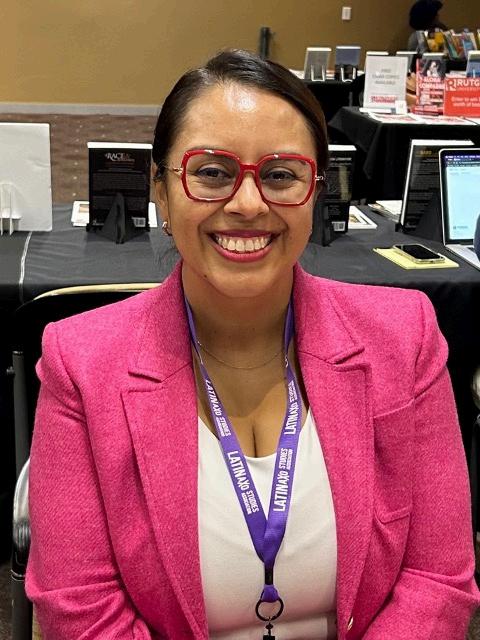

It is with deep sadness that I write of the passing of our dear friend and colleague, Maria Isabel Ochoa Alvarez. She suffered from cancer and died on March 17, 2025. She is survived by her husband Gustavo Alvarez and her parents, Abigail Belman and Antonio Ochoa.
I first met Maria Isabel in a Latino studies class during one of my first years teaching at DePaul in the early 2000s. I remember that she was a brilliant student who loved learning and debating ideas and always had a thoughtful comment to share. Maria Isabel consistently sought new ways to deepen her understanding of the world. She earned her bachelor’s degree from DePaul University in 2002, double majoring in Latin American and Latino Studies and Political Science. She was an active student, involved in many clubs and activities and she even founded an organization, Bailando al Imagen de Latino América con Energía (BAILE) where she shared her love of traditional Mexican dance and culture.
A Double Demon, her dedication to knowledge and public service led her to earn a master’s degree in international public service management in 2007. Maria Isabel’s commitment to learning extended beyond the classroom; she was a passionate traveler who loved exploring new cultures and their cuisines, and she was an avid reader, always ready with a book title to recommend.
Upon graduating, Maria worked at DePaul for almost twenty years. She joined the Center for Latino Research soon after she graduated, eventually serving as managing editor and creative director of Diálogo, the Center’s journal. She also organized and managed events at the Center including conferences, seminars, film screenings, and performances. In 2008, she curated a 75-piece photography exhibit focusing on the Young Lords, the Black Panthers, and the Rainbow Coalition.
When I took on the editorship of Latino Studies in 2012, I invited Maria Isabel to join me. While the then Director of the Center never forgave me for recruiting her away, I never regretted that decision; her partnership was invaluable from the start. Maria Isabel served as managing editor throughout my entire tenure as editor of Latino Studies from June 2012 to June 2023. Maria Isabel was a collaborator, and an innovator, and helped me take the journal to the next level. As the journal evolved, Maria Isabel took the lead in overseeing changes and refining processes to foster creativity and efficiency.
Maria Isabel also loved teaching, so while at DePaul she also worked as a part-time ESL instructor in Chicago’s community college system. Later, Maria Isabel left DePaul and took on a new challenge as Dean of Humboldt Park Vocational Education at Wright Community College.
Maria Isabel was more than a colleague, she was a true friend and showered everyone in her path with kindness, humor, and unwavering generosity. Maria Isabel was hard-working and ambitious, yet she never lost sight of the human connections that make our work meaningful. Her friendship, warmth, and laughter were gifts that I will forever treasure. While we grieve her loss, we also celebrate her life.
Lourdes Torres


Interview conducted by Yamitza Yuivar Villarreal
After several years out of this position, Dr. Lourdes Torres returned to chair the Department of Latin American and Latino Studies in Fall 2024-2025 Dr Torres is a Vincent de Paul Professor and affiliate faculty in Critical Ethnic Studies, Women’s and Gender Studies, and LGBTQ Studies With a vast trajectory at DePaul, Dr Torres’s research and teaching interests include sociolinguistics, Spanish in the U S , and queer Latinidades In this conversation, we discussed her expectations for the department of LALS and an essential call for action in the current socio-political moment at higher education
Congratulations on returning as the chair of the Latin American and Latino Studies Department last fall. I know you performed this role before. How has the department changed since the last time that you were here? And what are your goals and expectations for this new period? We're in a different time now and it feels very challenging compared to when I was last chair. It’s a different political context, which feels very threatening for our communities, and so that has changed. We had more staff and faculty back then, and as in the rest of the college, we have experienced financial issues, so we just don't have the staffing that we need across the college. We're not the only department. We're operating with a smaller team and fewer resources. That's what I sensed very quickly when I assumed this role. Carolina, our last chair, has done an amazing job doing the best you can with the situation so the department's in good shape I was happy to see that And Carolina is very helpful to me as I assume the role
Like all of the other departments in our college, there have been fewer students now majoring and minoring in both humanities and social science and in interdisciplinary programs. I think we have to rebuild that body of students that minor and major in Latin American and Latino Studies. One of my goals is to work with the faculty, students, and staff to work on increasing enrollment in our classes. We have to build that base up and we started doing that.

Dr. Lourdes Torres
We understand that a lot of students come to their first year in college and they've never heard of Latin American/ Latino Studies So, in addition to doing more to make sure that those options are visible to students when they get here, we're working on creating materials and doing outreach to high schools and parents, to create information that would help people understand why courses, majors, and minors in Latin American and Latino Studies would be a good thing to have for anybody, not just Latino students. The demographics are clear. The Latino population is rising and that's going to continue to be the case. They are also the demographic that's going to college right now; Latinos are a young population And so when we look at who is going to be enrolling in our universities, a large percentage of those people are going to be Latinx folks, so we need to do a better
job of reaching out to them and also making other people who aren't Latinx aware of the value, the importance, and the contributions of the Latinx community. And so that's just making us more visible across the different communities. I think it's going to be an important job for all of us in the next years.
The university is committed to becoming a Hispanic-serving institution. How do you see the role of LALS in this process and in the institutional roadmap?
It's unnerving that given the current political climate and the new administration, I'm not sure that HSI designation will exist since the funding that HSIs have received is threatened right now We've been in these discussions, and my position is that whether or not it exists at a federal level, HSI exists in practice If you have a large body of Latinx students, you're an HSI, whether the government is funding programs around that or not. So we have to make sure we become a Hispanic Serving Institution, figure out what it means to serve Latino students, and that we're doing a good job of making sure that DePaul is a welcoming community for Latinx students, that we're providing them with the resources and tools that they need to succeed at the same time that we're educating the rest of the population about who Latinos are, what their experiences have been in the United States, and what the history tells us about why Latinos are here
We need to know the history between Latin America and the United States People need to understand that it's not an accident that so many Latinos are here, as Juan Gonzalez explains, it's the harvest of Empire. It's not just a question of educating Latinos, it's a question of educating everyone to be more aware of this population, which is demographically, culturally, and historically important, and what that means and how that changes the institution. When we focus on one community that has been marginalized, that helps us think about ways other communities have been marginalized. We have to make sure DePaul is a welcoming community, not only for Latinos but also for African Americans, Asians, and Middle Eastern folks.
It's not just a question of educating Latinos, it's a question of educating everyone to be more aware of this population which is demographically, culturally, and historically important.
The tools and strategies that we use will be strategies that cut across all these communities. We have to be intentional about that; it's about all of the communities that come to our space and we should make sure it's welcoming for everybody.
You’re not only the LALS chair, but also an affiliated faculty in Critical Ethnic Studies and Women's and Gender Studies. Can you tell us more about your time at DePaul and what you like about working here?
I'm also affiliated with the LGBTQ Program I love that aspect of my experience at DePaul Before DePaul, I taught at two other places, Stony Brook University in New York and the University of Kentucky. And in both universities, which are research 1 universities, I was very limited in what I could teach. I was researching Spanish linguistics and that's all I could teach. I wasn't able to teach outside of my discipline and that has changed. One of the beautiful things about DePaul is that we are invited and encouraged to teach outside of our main discipline. I'm interested in all these things, Critical Ethnic Studies, LGBTQ Studies, and Women and Gender Studies. I love the variety of teaching I can do, the variety of students that I encounter in each of those spaces, and the ability to build things Critical Ethnic Studies is a master's program that the faculty built We knew there was a need for a program that took us out of our little Latinx, ABD, and gender studies silos, and we were looking at the intersectionalities between our identities and issues. I think that CES is really cutting edge and that's the way of the future. We have to be able to speak to each other across these communities, to work together, to figure out what are the things that connect us, and how we can build strength. That’s the curriculum we're trying
to build, and it's also a beautiful space where faculty from different areas are committed to building that program. That's really cool.
I love that I can teach LGBTQ studies. I taught in that program last year and learned so much from students, including how they identify in new ways. They are identifying in ways different from what I experienced as a queer person in the past. I love having conversations with students and learning where they're at politically, culturally, and socially, and the issues they're concerned with; it's just the best part of my job I have to say.
I have an honors course on language and identity and the students have been amazing; just this weekend I was reading their linguistic autobiographies We've read a number of linguistic autobiographies in the class. We've read people like Toni Morrison talking about language, Jhumpa Lahiri talking about different languages in her life. So I asked students to write about their experiences with language, and they're so different. All of them are so powerful. I have a Palestinian student talking about coming to the United States and learning English. I have a white woman who was raised in Honduras because her parents were missionaries, talking about learning English and Spanish. I have another student whose mother is from Barcelona, so she speaks Catalan and English Everyone is so different and they're such beautiful essays And I'm so proud of them for going there, talking about really hard things Some Latinos feel shame because they don't speak Spanish and they're humiliated when they go back to Mexico They went so deep; it was moving and makes me happy to be in a space where I can share that with them. It was just beautiful. I was humbled by their willingness to be vulnerable and to share those very difficult, very moving stories.
I've always loved teaching and I try to create a good community where people feel safe to talk about serious issues. That's what teaching should be. It’s wonderful to be in a space with people exploring topics that they haven't had the opportunity to consider I think that’s what makes teaching such
a beautiful profession So I feel great that I can do it I'm grateful for that It's not as much fun to do the administration, but the teaching gives me life and energy and makes me happy.
We are in the LALS and CLR office. What elements of this department would you like to highlight and share with the DePaul community?
I think in terms of the staff and the faculty that work here, we have created an incredible community space. I feel lucky to be able to come to work here too because everyone is doing so much to make the space comfortable That has changed from the last time I was here I don't remember that kind of community Everyone works really well together and creates things like the newsletter, which is a project of students, faculty, and staff, and it comes together beautifully each quarter. I'm very proud of that. I take it around and show it to people and everybody is always really impressed. I think it's the best newsletter in the university. I love how it highlights students, faculty, alumni, and the projects and events that we have. These units do a hell of a lot, and I think the newsletter demonstrates that and helps capture it for history. It's like a document that reminds us of the spaces and events that we've created. That's really important.
The Center [for Latino Research] is amazing Under Billy's leadership, it has metamorphosized They bring in grant money and bring community people together with our students and staff; it's more vibrant and active than I ever remember in my 25 years here. I think Billy and Marcela are incredible leaders, and they must be really tired because they do many things.
Also, the political context calls for a renewed sense of responding to the moment, and I think we're seeing that with the work that LALS and CLR are doing. And stay tuned; there is more to come!
On March 12, 2025, the Department of Latin American and Latino Studies co-hosted Latina Lesbian Lives: Our Lived Experiences with María’s Poetas Collective The evening featured an inspiring lineup of Latina poets and a special guest appearance by comedian Gwen La Roka, who led the audience in reflection and
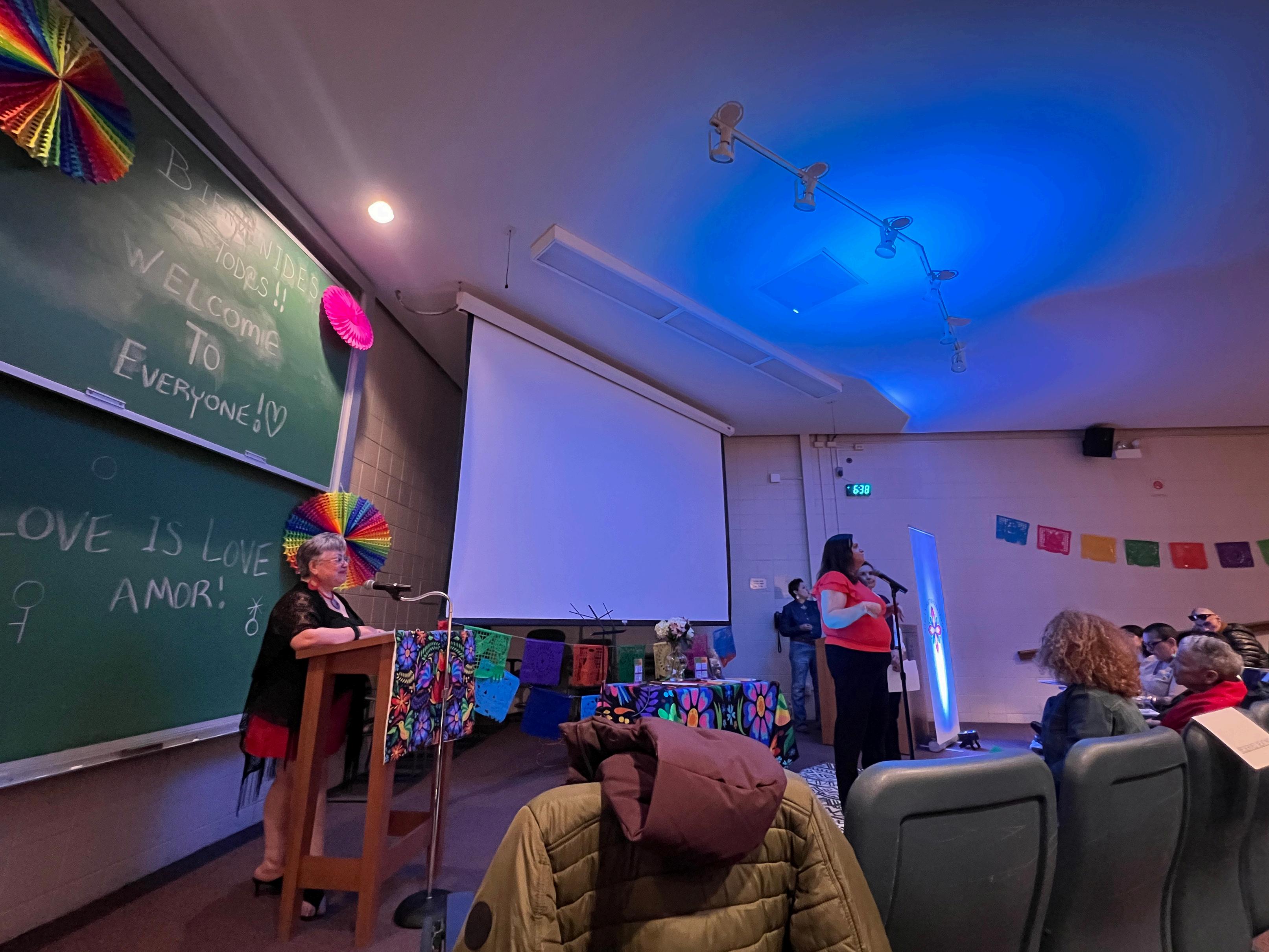
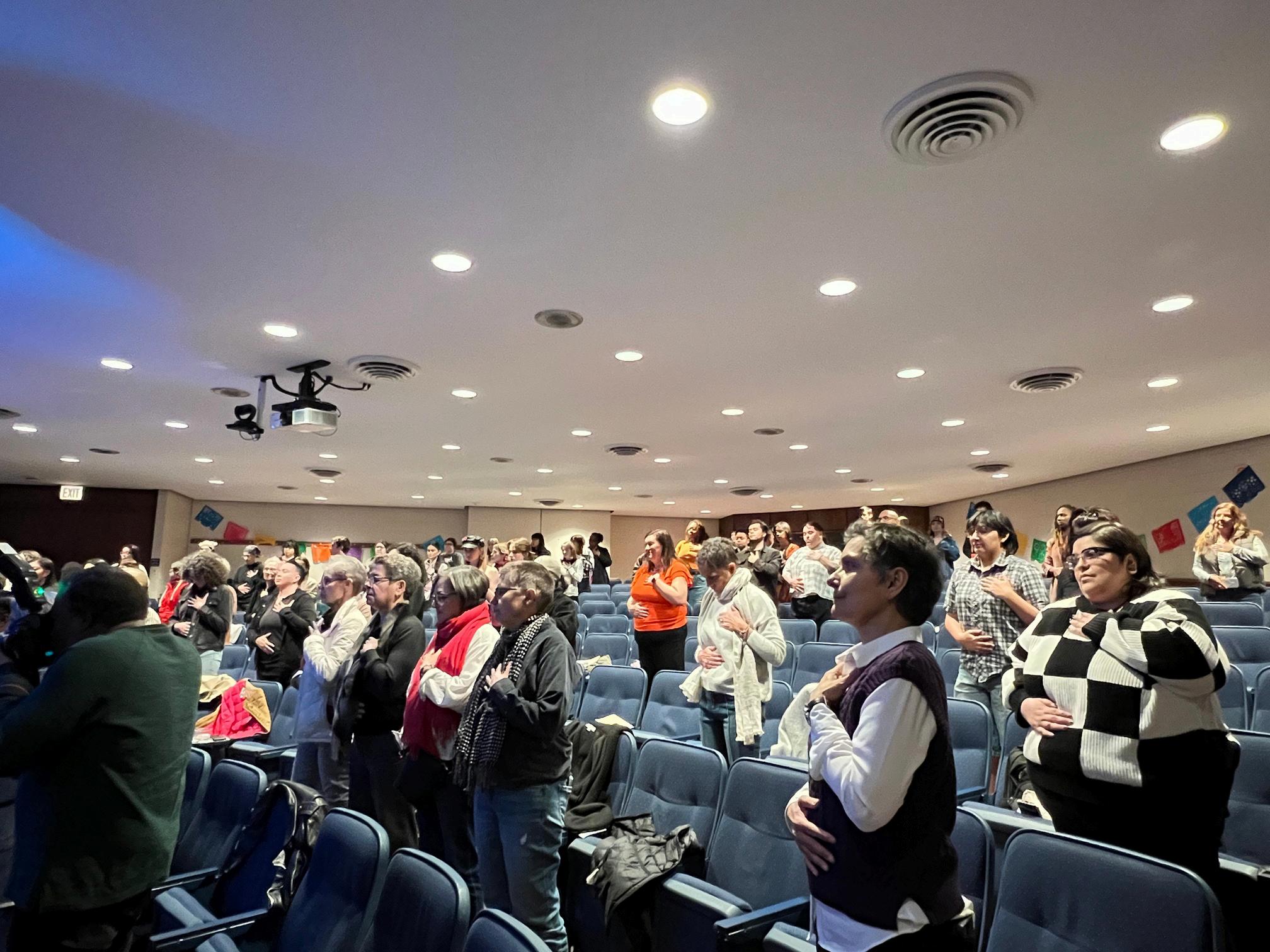
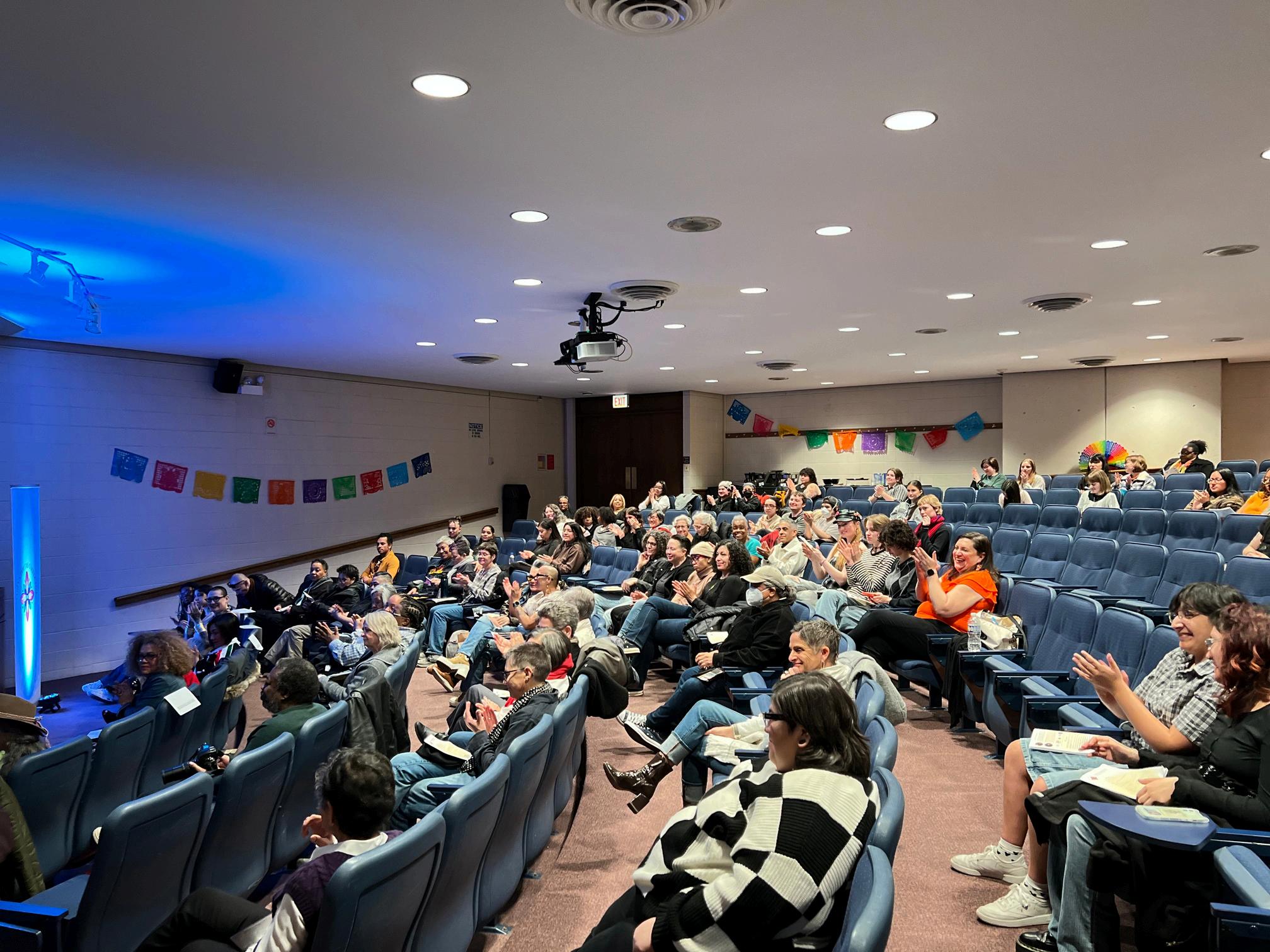
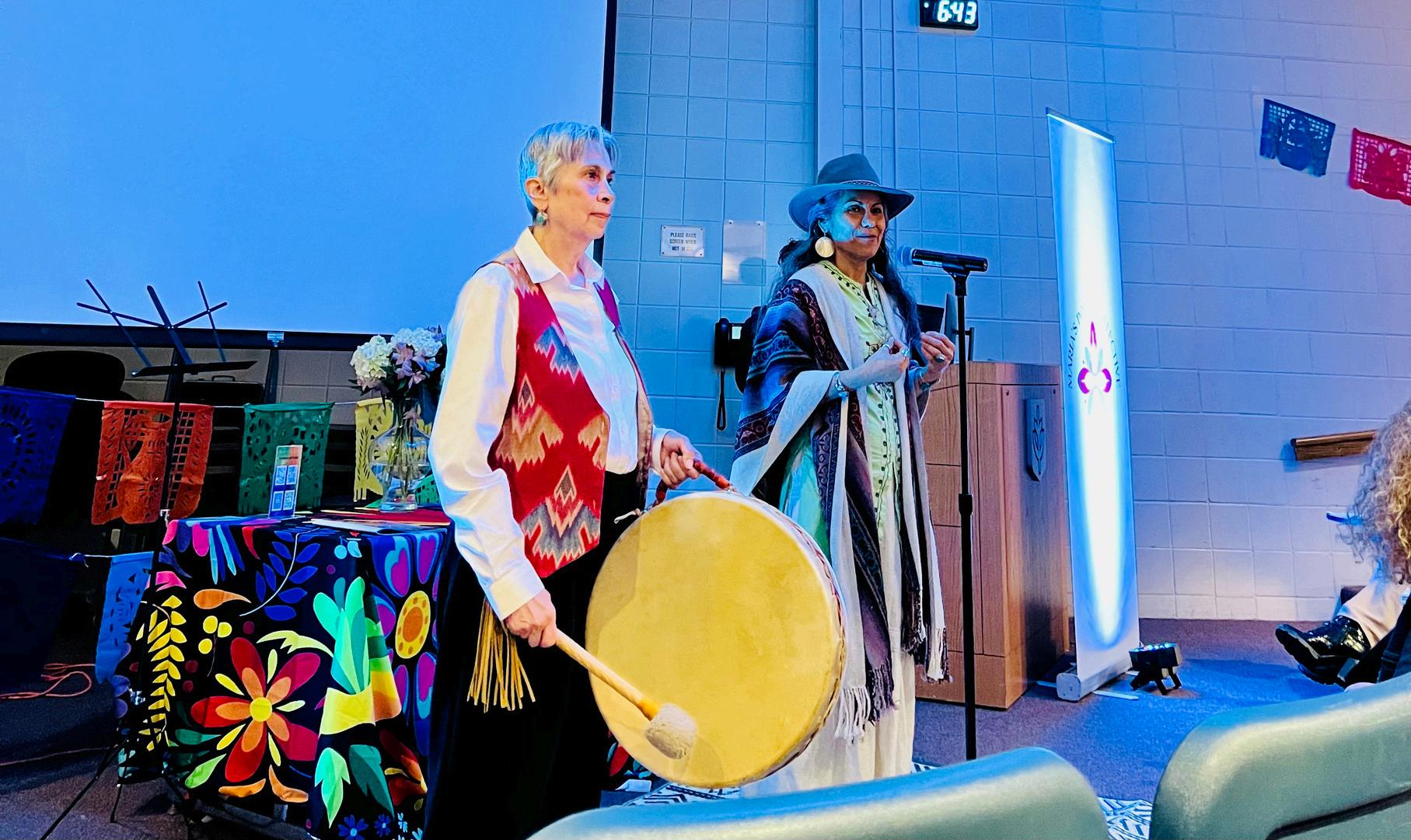

helped bring this event to life!

From April 24 to 27, Poesía en Abril held its 17th annual Spanish-language poetry festival, bringing together a vibrant community of poets, musicians, and poetry lovers. The festival’s inauguration took place on Thursday, April 24, at DePaul University, featuring performances by 12 poets and musicians.
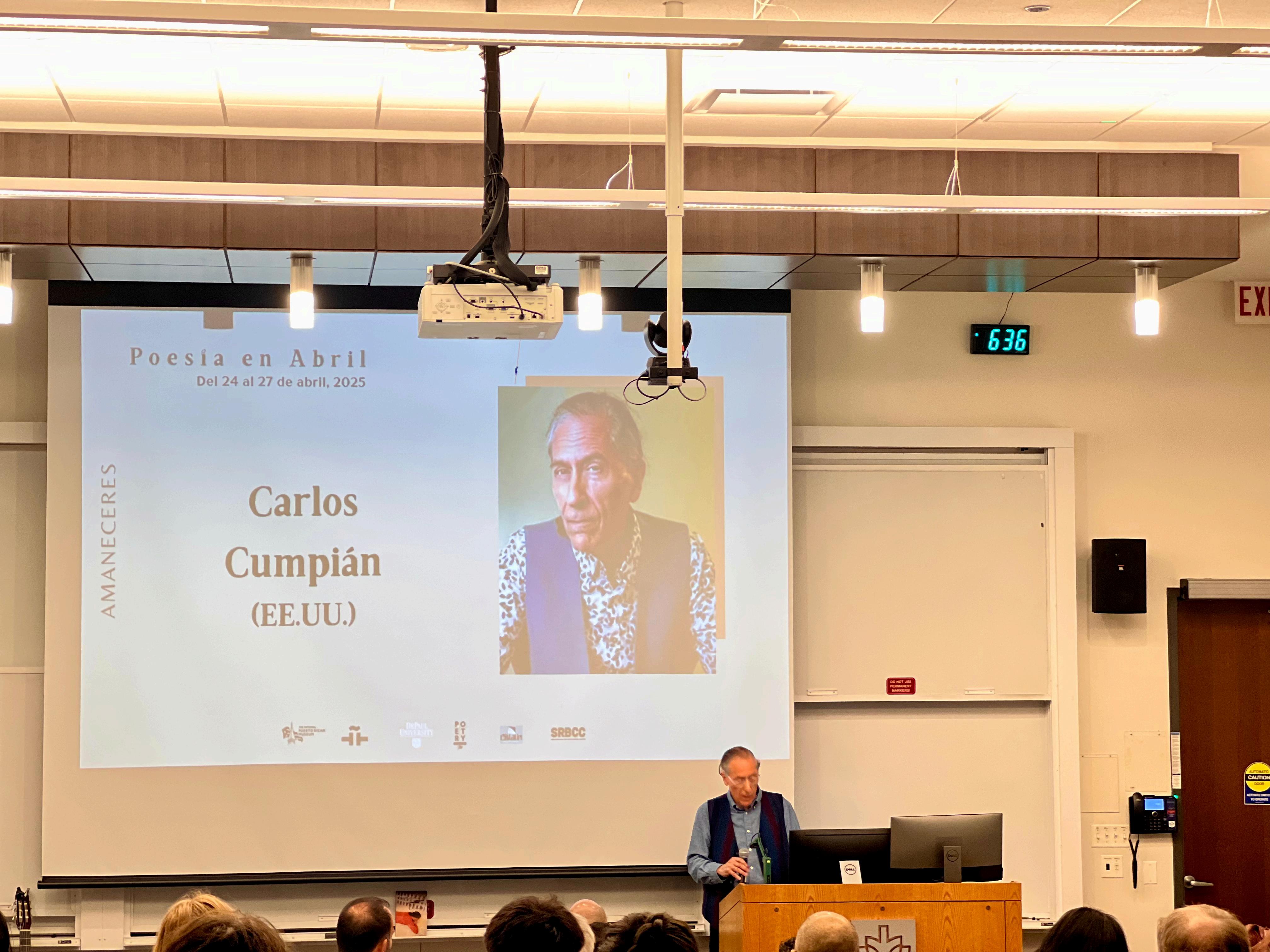
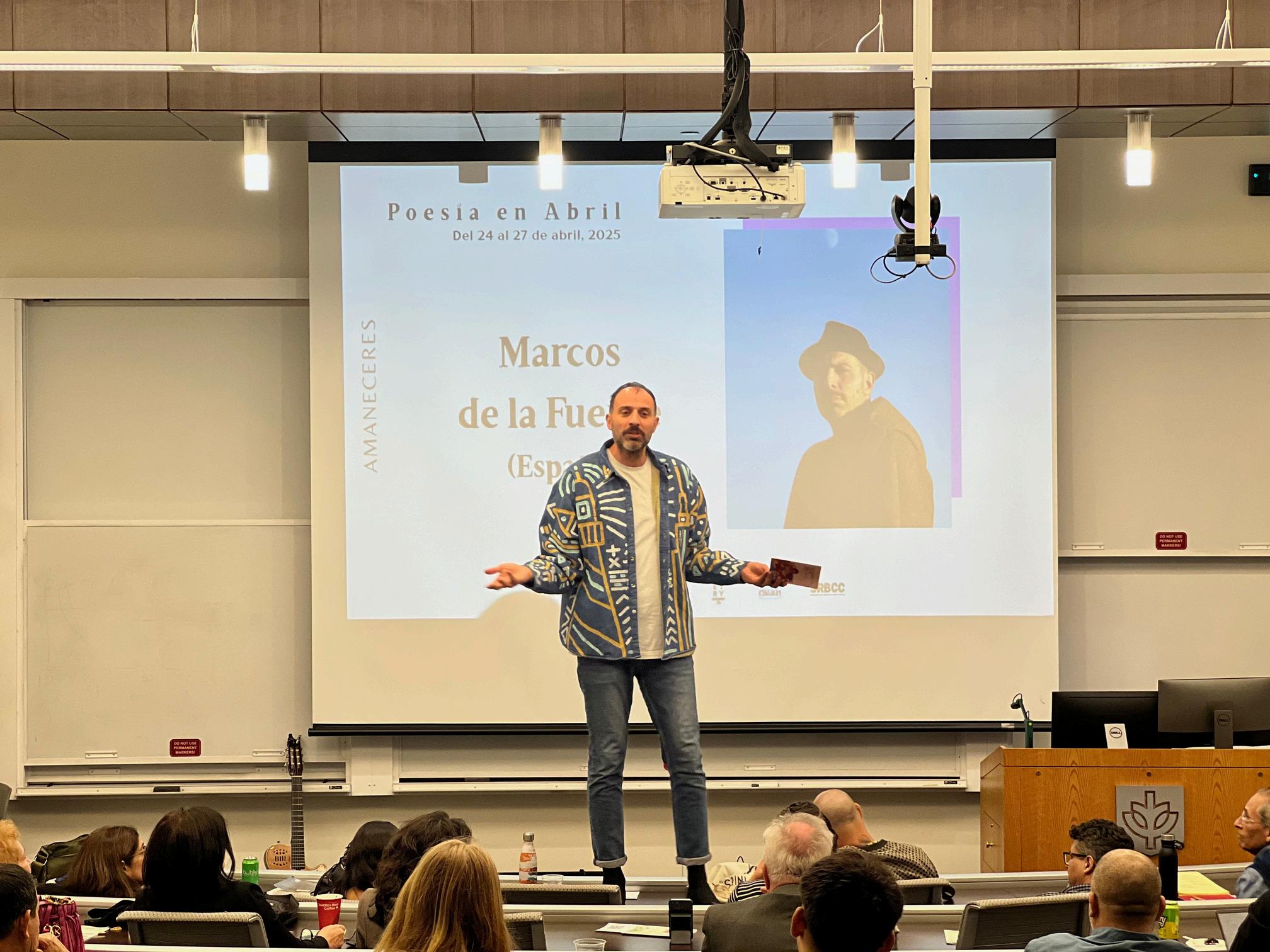
This year’s honored poets were Yolanda Pantin, María Ángeles Pérez López, and Carlos Cumpián. Guest poets included Juana Goergen, Marcos de la Fuente, Elizabeth Narváez, Silvia Goldman, José Ernesto Hernández, Mariela Dreyfus, Mauricio Espinoza, Judith Santopietro, and Jorge García de la Fe.
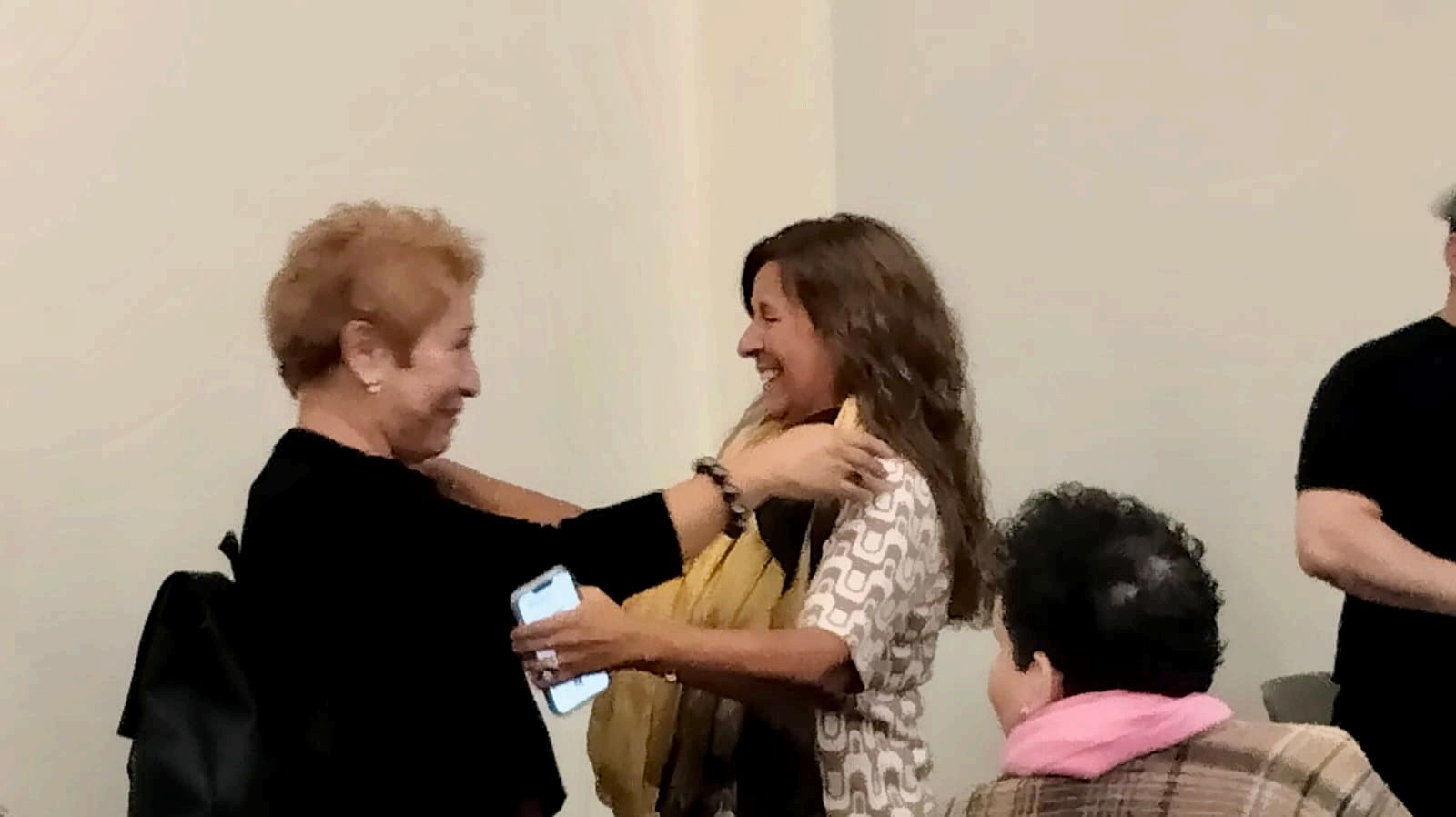
Former Poesía en Abril directorJuana Goergen greets currentfestival director and co-organizer Rocío Ferreira.
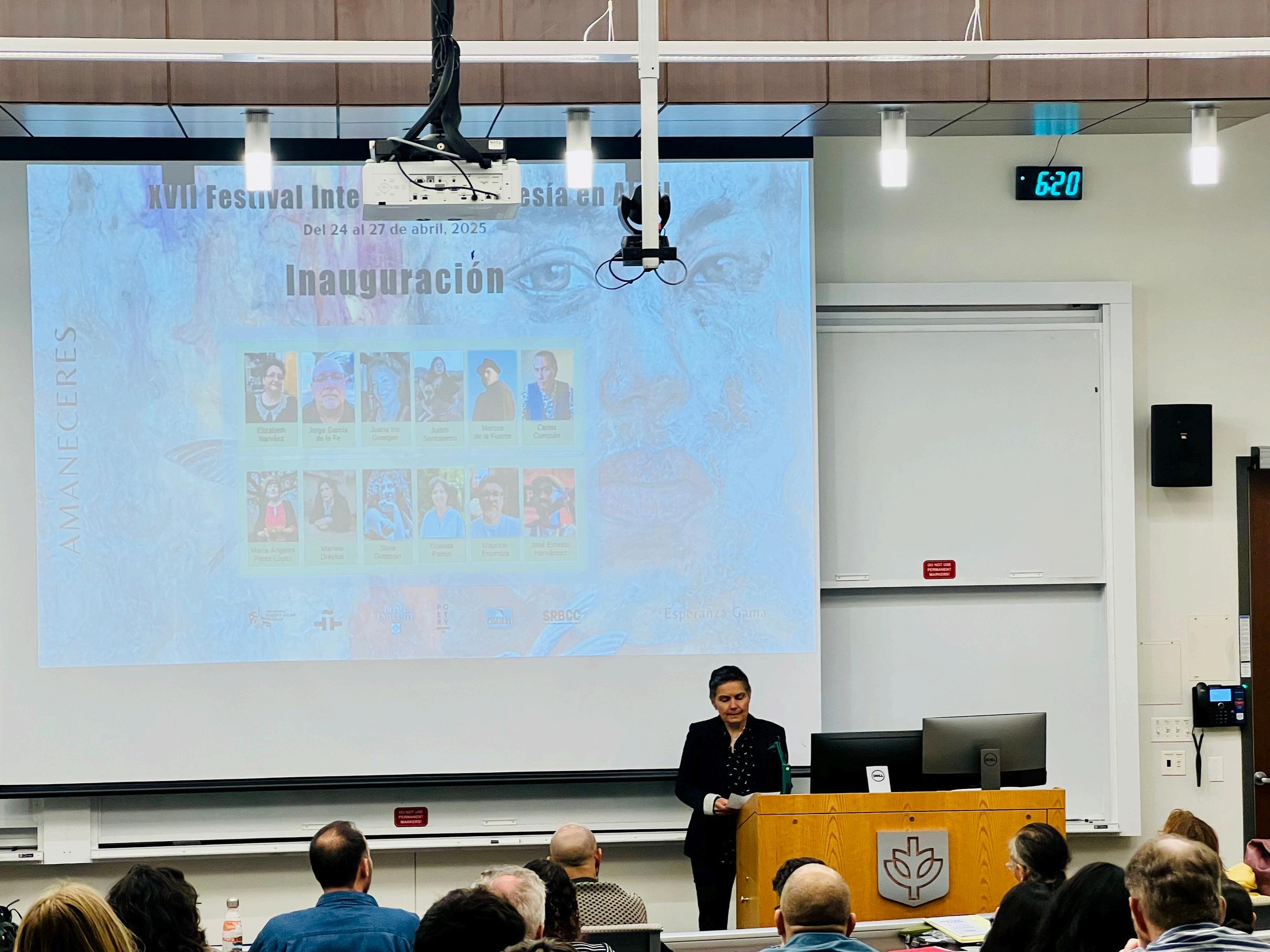
In her opening remarks, Dr Rocío Ferreira introduced the 2025 festival theme, "AMANECERES" (DAWNS) a powerful invocation of hope, rebirth, transformation, and the promise of new beginnings She invited attendees to experience the healing and unifying force of poetry as a path to renewal and community. The event showcased poets from across the Spanish-speaking world, including Peru, Venezuela, Puerto Rico, Spain, the United States, Cuba, Mexico, Costa Rica, and Uruguay. The evening concluded with a musical performance by Chicago-based singer Patricia Ortega and Cuban guitarist Norberto Guerra
Lourdes Torres, chair of the Latin American and Latino Studies Department was among those who provided opening remarks for the festival
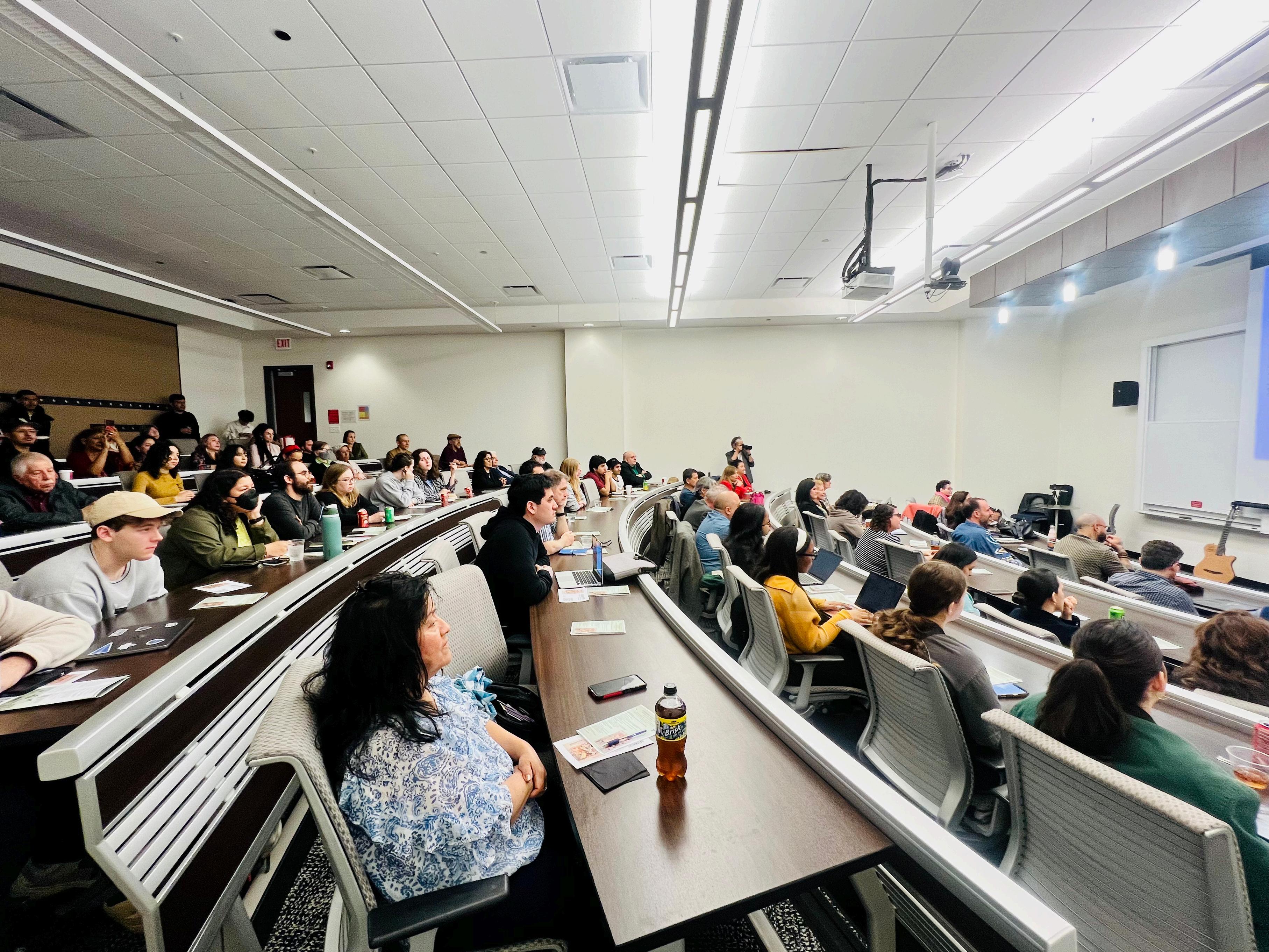
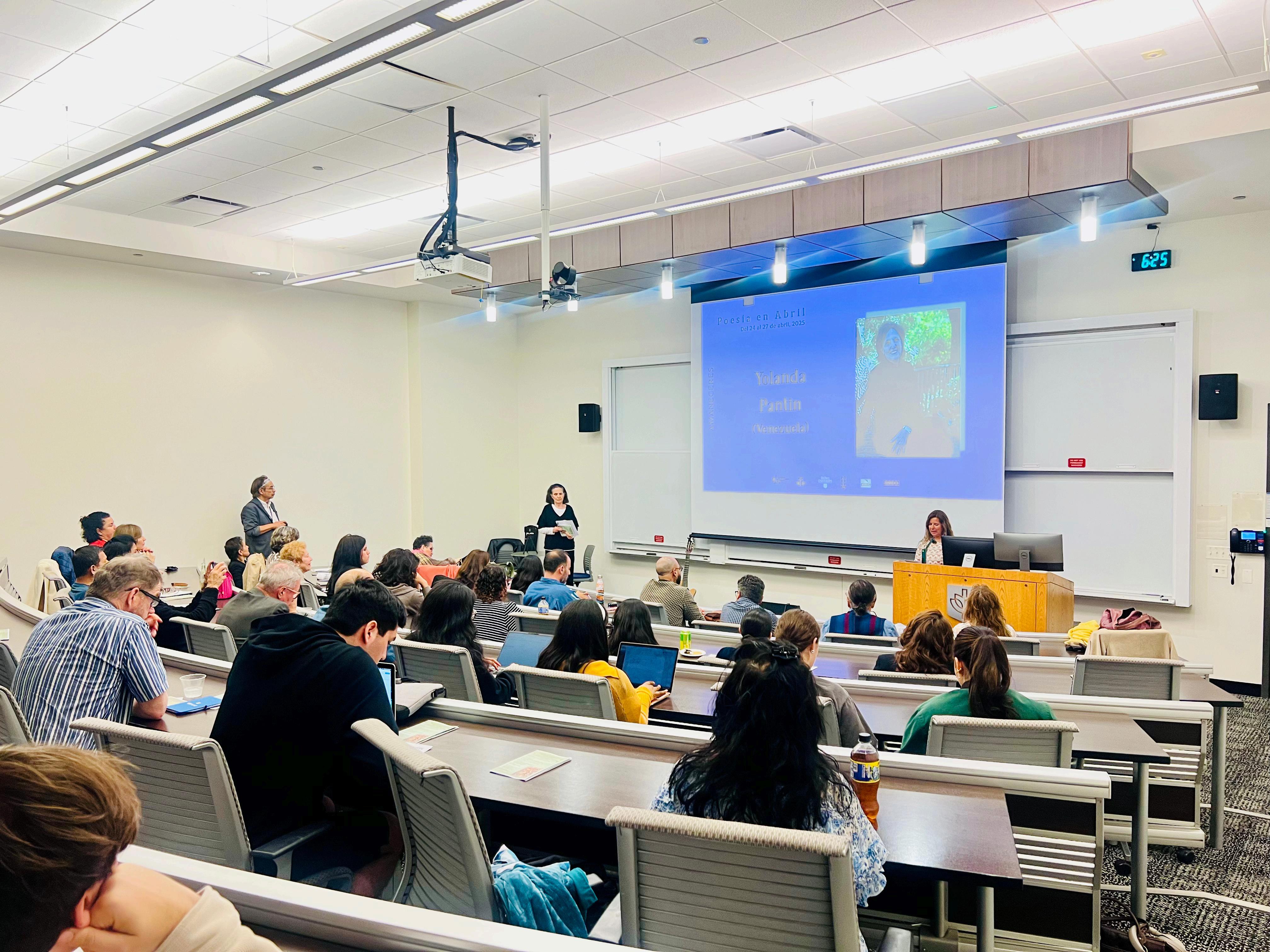
From Program Coordinator for the Social Transformation Research Collaborative, Alejandra Delgadillo
The Social Transformation Research Collaborative is delighted to share its 2025 fellowship cohorts!
2025-2026 Professional Development Faculty Fellows:
Dr. Amor Kohli, African and Black Diaspora Studies
Project Title: “Spirit and Structure in the Music of Alice Coltrane”
Dr. Shiera Malik, International Studies
Project Title: “Encountering the Stranger: Curating Close Encounters with African Anticolonial Archives”
2025-2026 Faculty Research Fellows
Dr. Michael McIntyre, International Studies
Project Title: “Deolinda Rodrigues and the African Anticolonial Archive”
Dr. Xorla Ocloo, African and Black Diaspora Studies, Environmental Studies
Project Title: “Sowing Seeds and Building Neighborhood Resilience through Urban Farming”
2025 Graduate Student Fellows:
Rosbel Garza, International Studies
Sukhmani Mandair, Women’s and Gender Studies
Bridget Salada, Critical Ethnic Studies
2025 Undergraduate Student Fellows:
Angelique Lara, English, Latin American and Latino Studies, African and Black Diaspora Studies
Zoe-Anna Wilson, Psychology, African and Black Diaspora Studies
Vivian Wong, English, Modern Languages - Spanish
Robyn Underwood, Philosophy
Karmen Johnson, African and Black Diaspora Studies
Kei Smith, International Studies
Follow our Instagram page for more updates on events and opportunities @strc_depaul
For more information please contact STRC Coordinator Alex Delgadillo: a.delgadillo@depaul.edu
We are also thrilled to announce that Dr. Chernoh Sesay, Jr. (Religious Studies) will be leading this year ’ s Undergraduate Student Fellowship, teaching a research methods course and mentoring all six fellows through the end of the Fall quarter.
We will host a Summer Kickoff on Monday, June 18th at 4pm in the Arts and Letters Lobby to celebrate all of our 2025 fellowship cohorts and the start of our summer programming. Stop by to grab a bite and say hello!
Lastly, a reminder to save the date for our fourth annual symposium, scheduled for Tuesday, October 22, 2024. We will hear from our 2024-2025 faculty fellows, Dr. Kalyani Menon, Dr. Sanjukta Mukherjee, and Dr. Carolina Sternberg, as well as our student fellows from our 2025 cohort, mentioned above Stay tuned for more updates!
These fellows represent diverse disciplines and will bring fresh perspectives to our academic community We look forward to the innovative work they will produce
Stay tuned for updates on this year ’ s Summer Institute for New Students program.
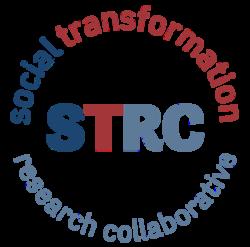
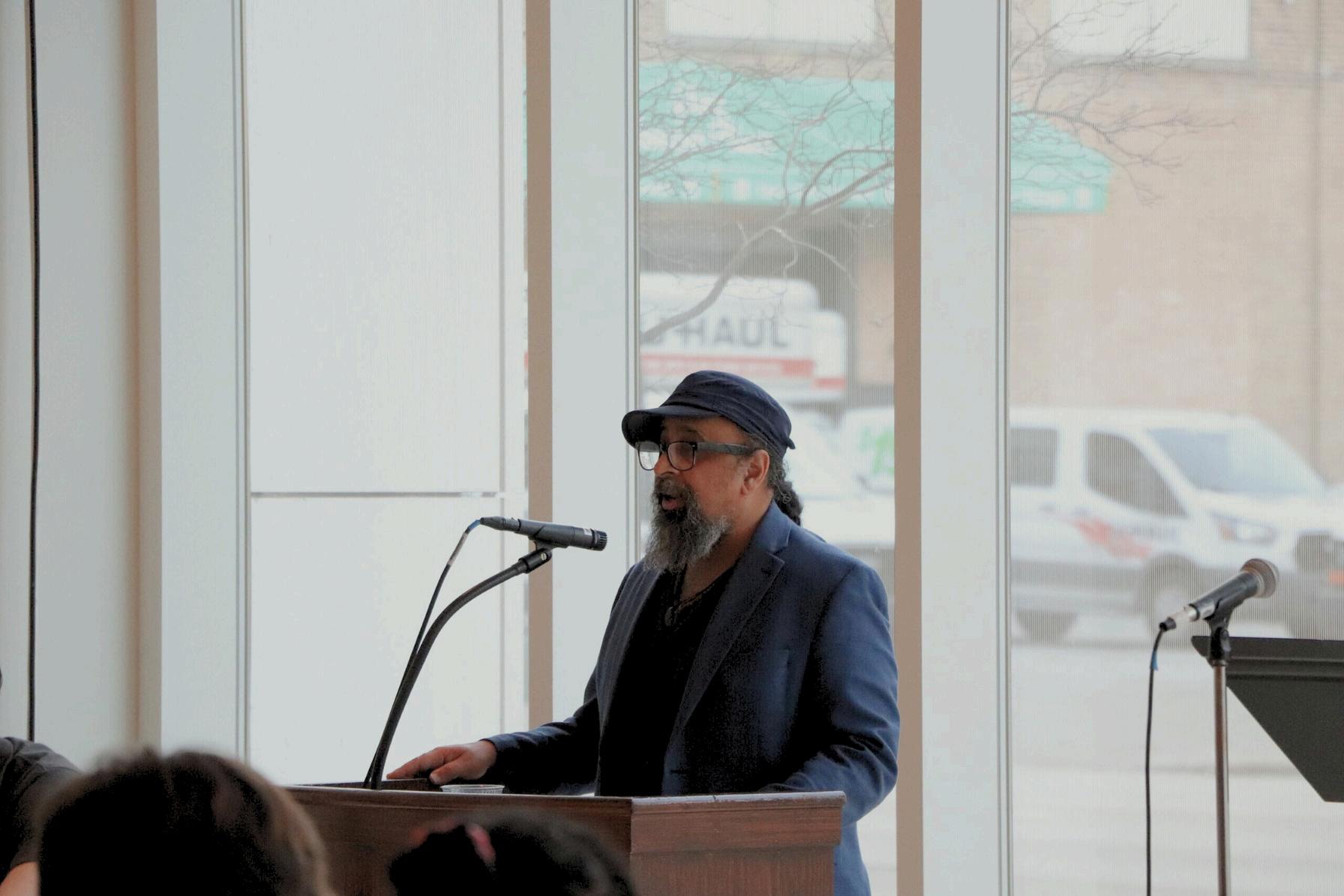
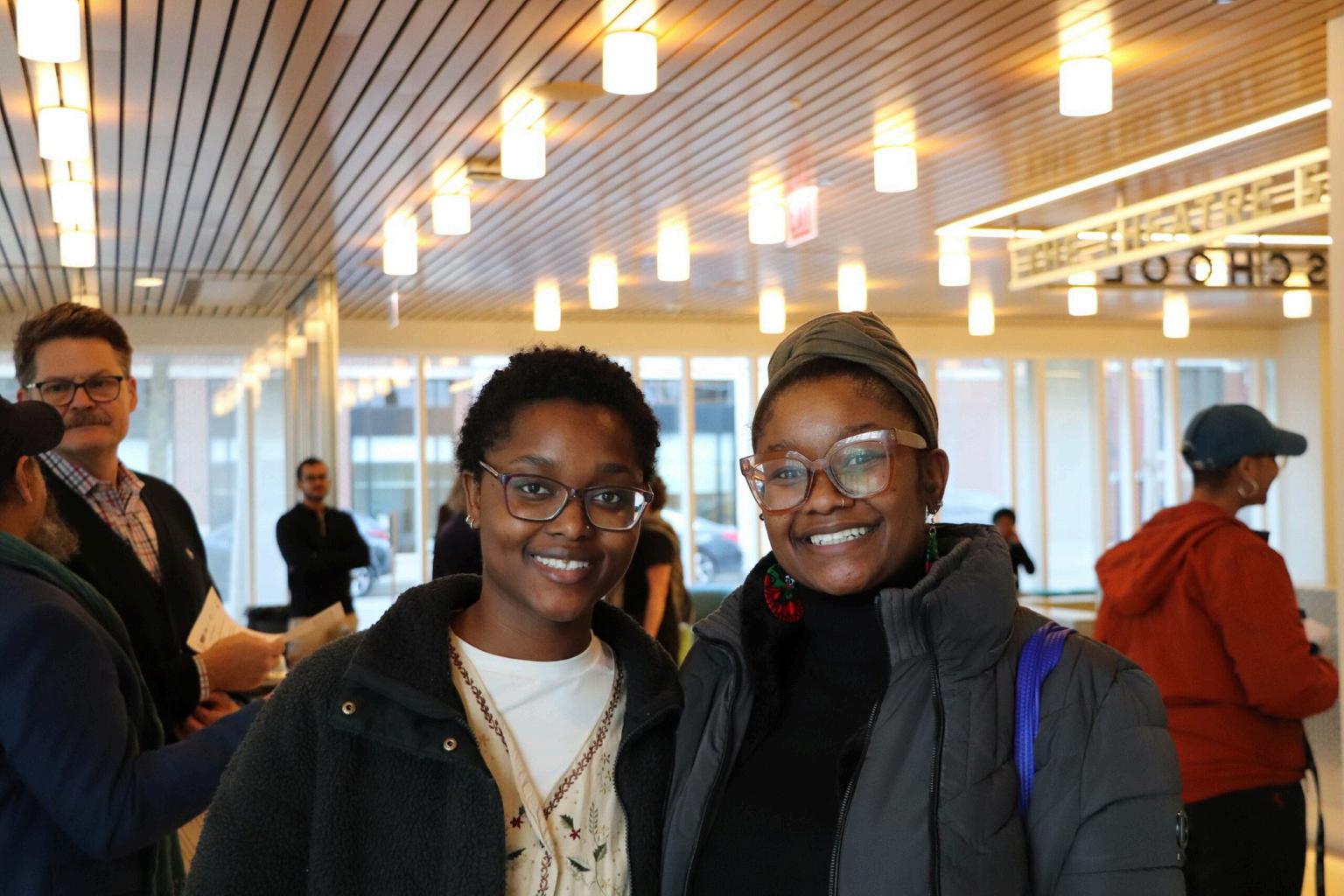
On Thursday, February 27, 2025, the Center for Latino Research helped sponsor a collaborative event titled “James Baldwin at 100”, a celebration of Baldwin’s legacy through readings, performances, and scholarship. The event featured an introduction by Dr. Amor Kohli, Chair of African and Black Diaspora Studies; a keynote by Dr. Darrell Moore, Asso. Professor of Cultural Studies at Claremont Graduate Univ. (“At Sixty: A Meditation on the Baldwin-Buckley Proposition”); dramatic excerpts from “Sonny’s Blues” performed by Theatre School students; and a presentation of the “American Dream” project by Ashli Rene Funches.
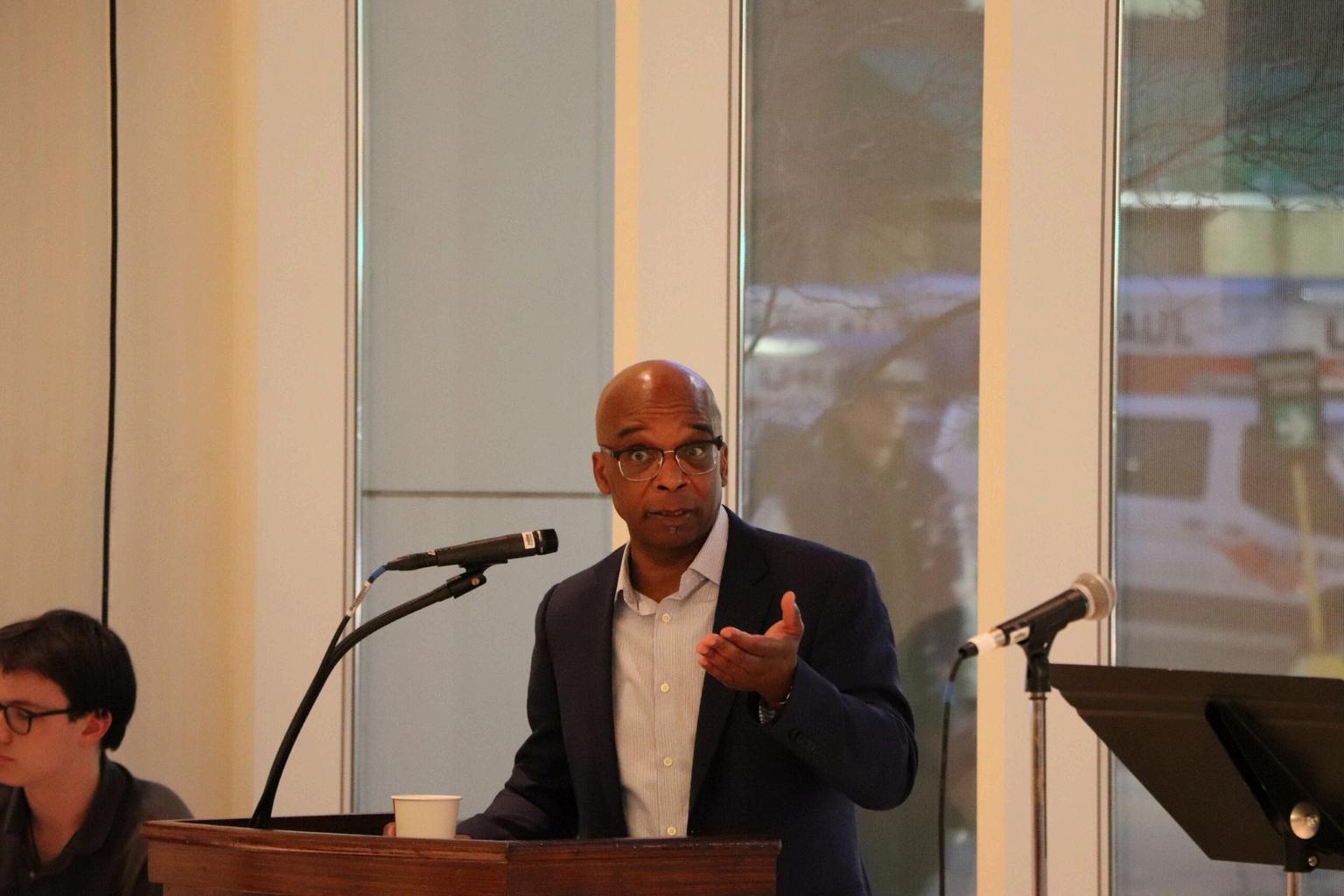
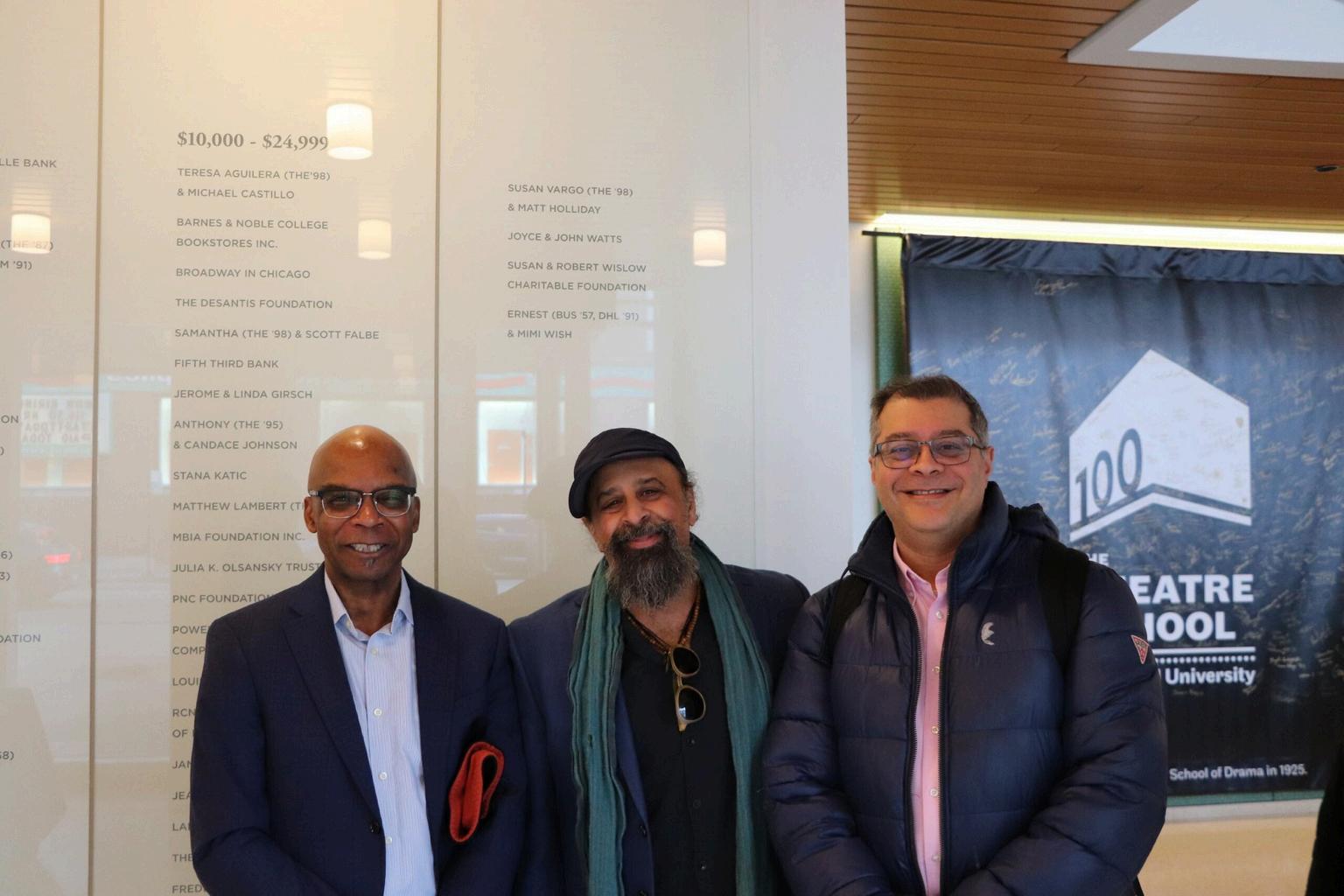
It was co-sponsored by The Theater School, The African and Black Diaspora Studies Department, The English Department, Timeline Theatre Company, DePaul’s Center for Black Diaspora, The Center for Latino Research, and the Social Transformation Research Collaborative. Thank you to our co-sponsors, speakers, performers, and participants! We look forward to continuing to celebrate Black literature, knowledge, and innovators.
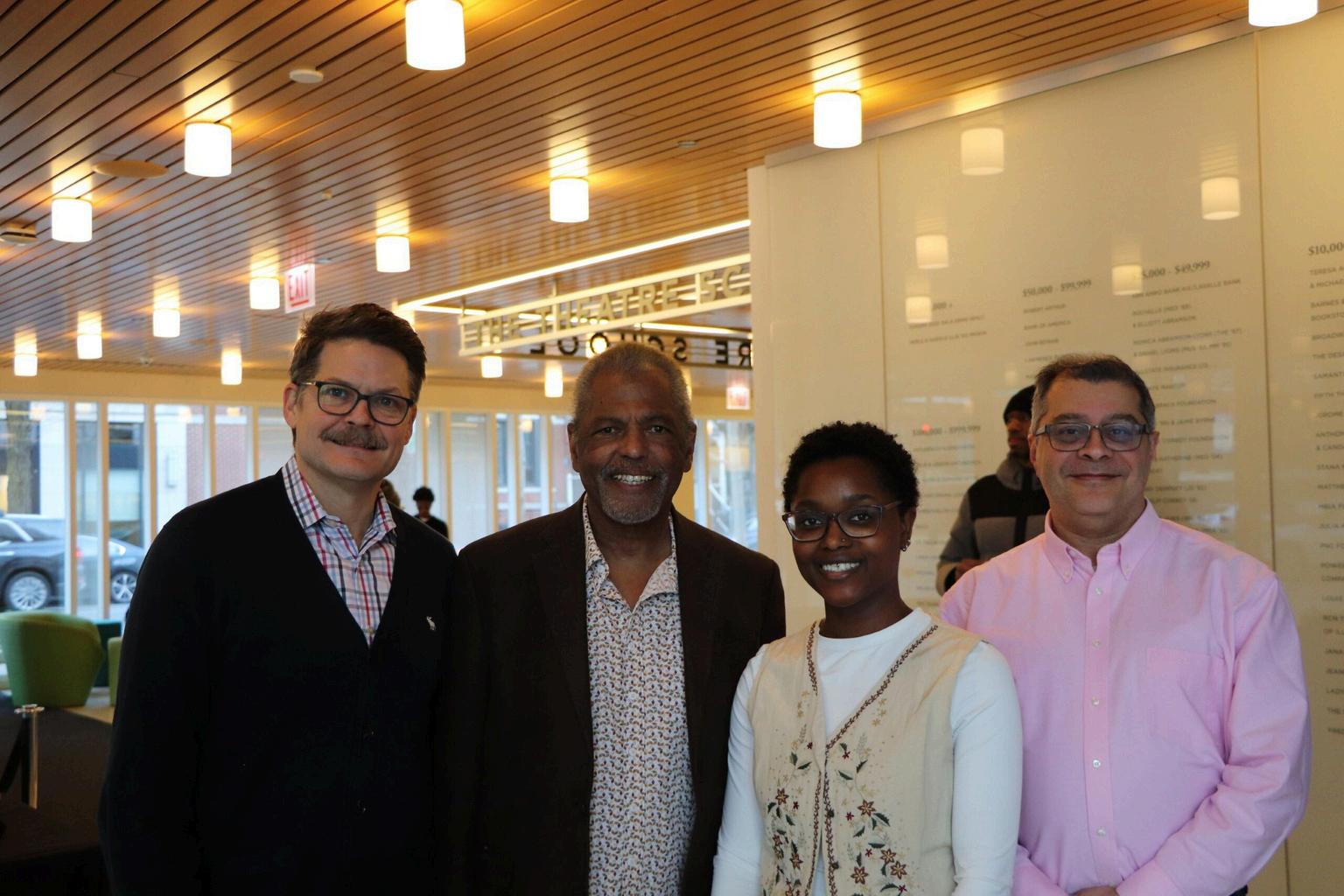
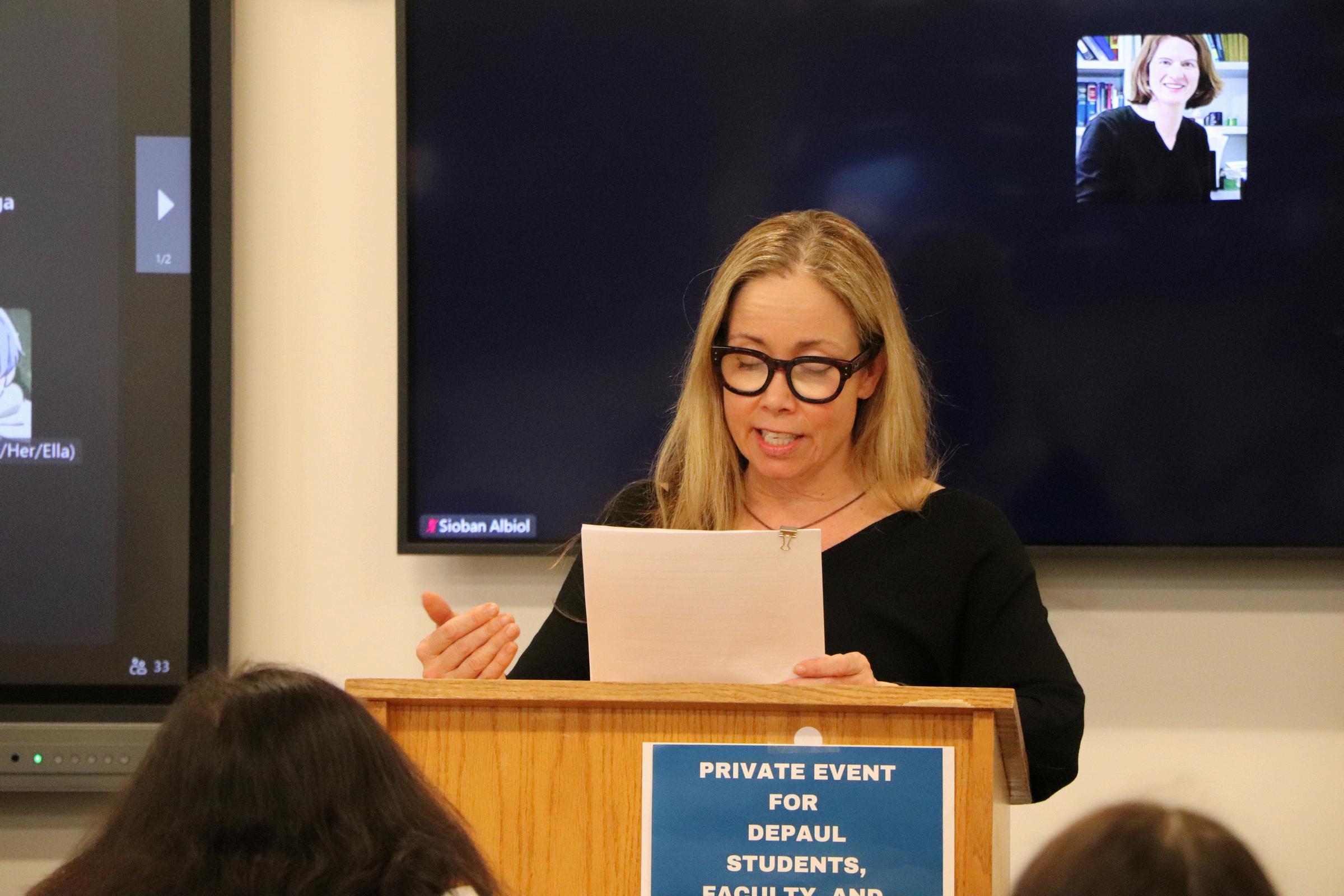
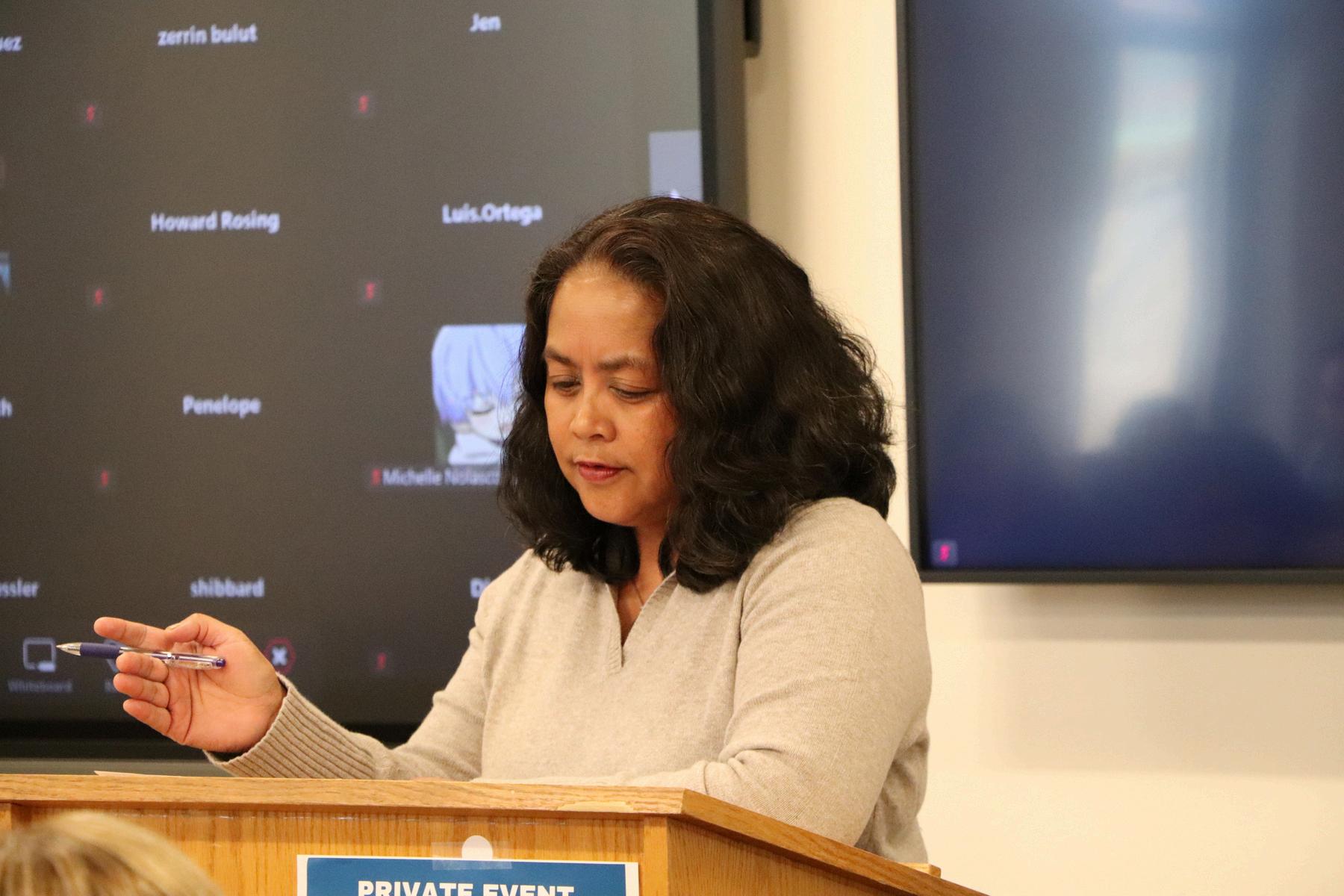
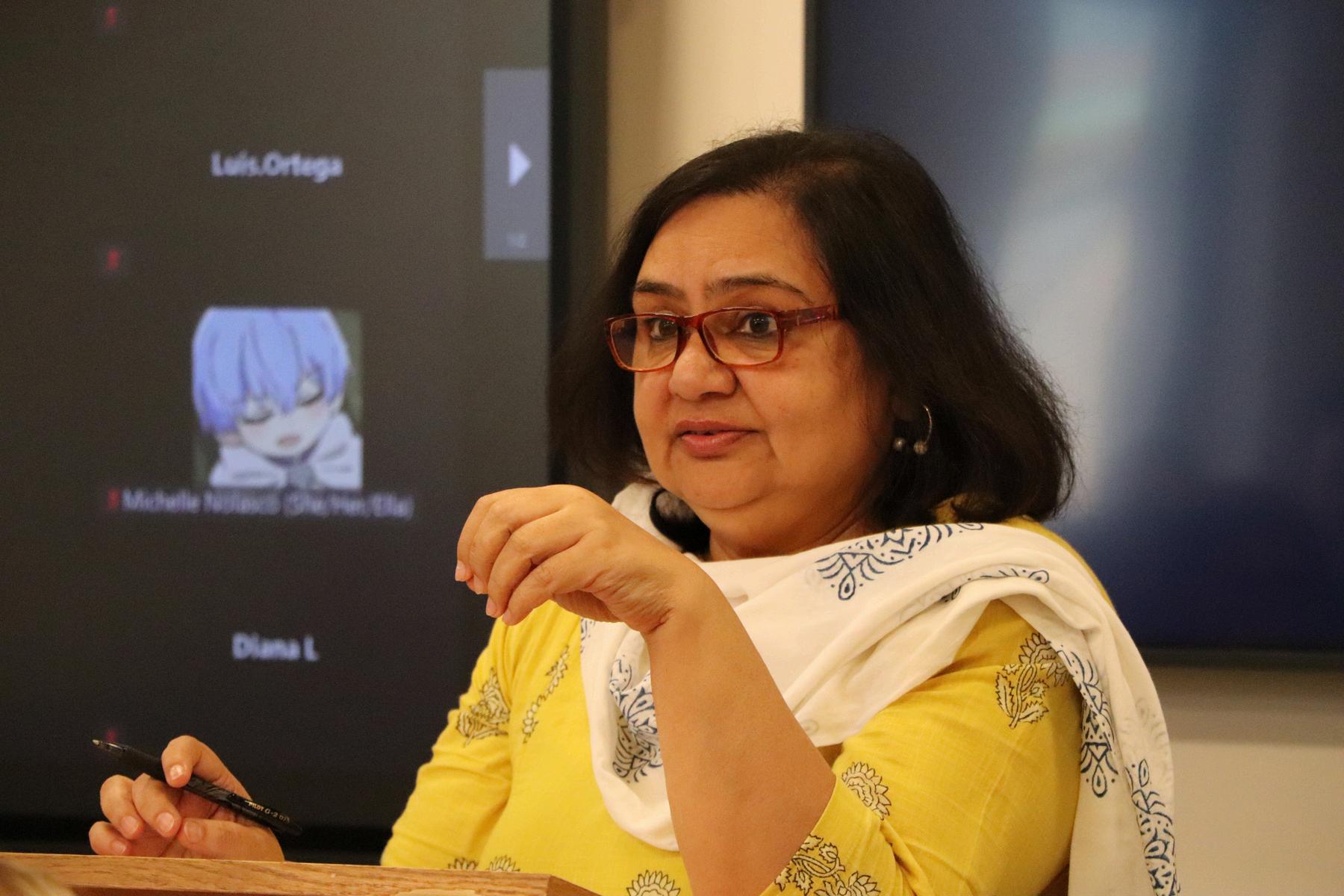
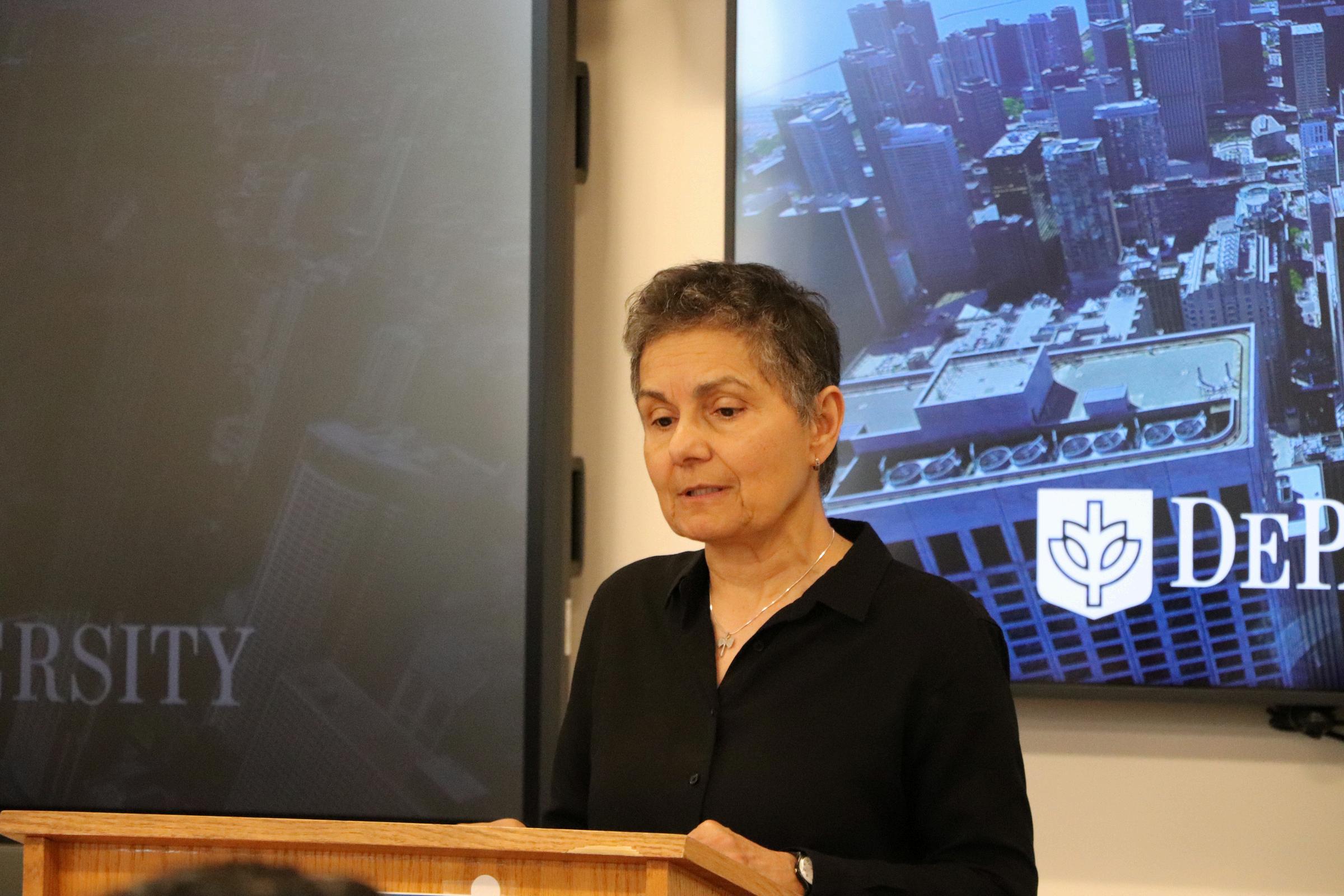
On Tuesday, April 29 , DePaul Faculty from the Refugee and Forced Migration Studies program; the Dept of Latin American and Latino Studies, Global Asian Studies; Peace, Justice, and Conflict Studies; Social Work; and International Studies came together to inform and reflect on the current rhetoric and realities surrounding migration, movement, and deportation.
After the keynote speakers shared their insights , students, staff, and faulty workshopped possible solutions and responses to the threat of mass deportation in our community.
Thank you to all of our speakers, sponsors, and attendees for creating a community-oriented and productive event.
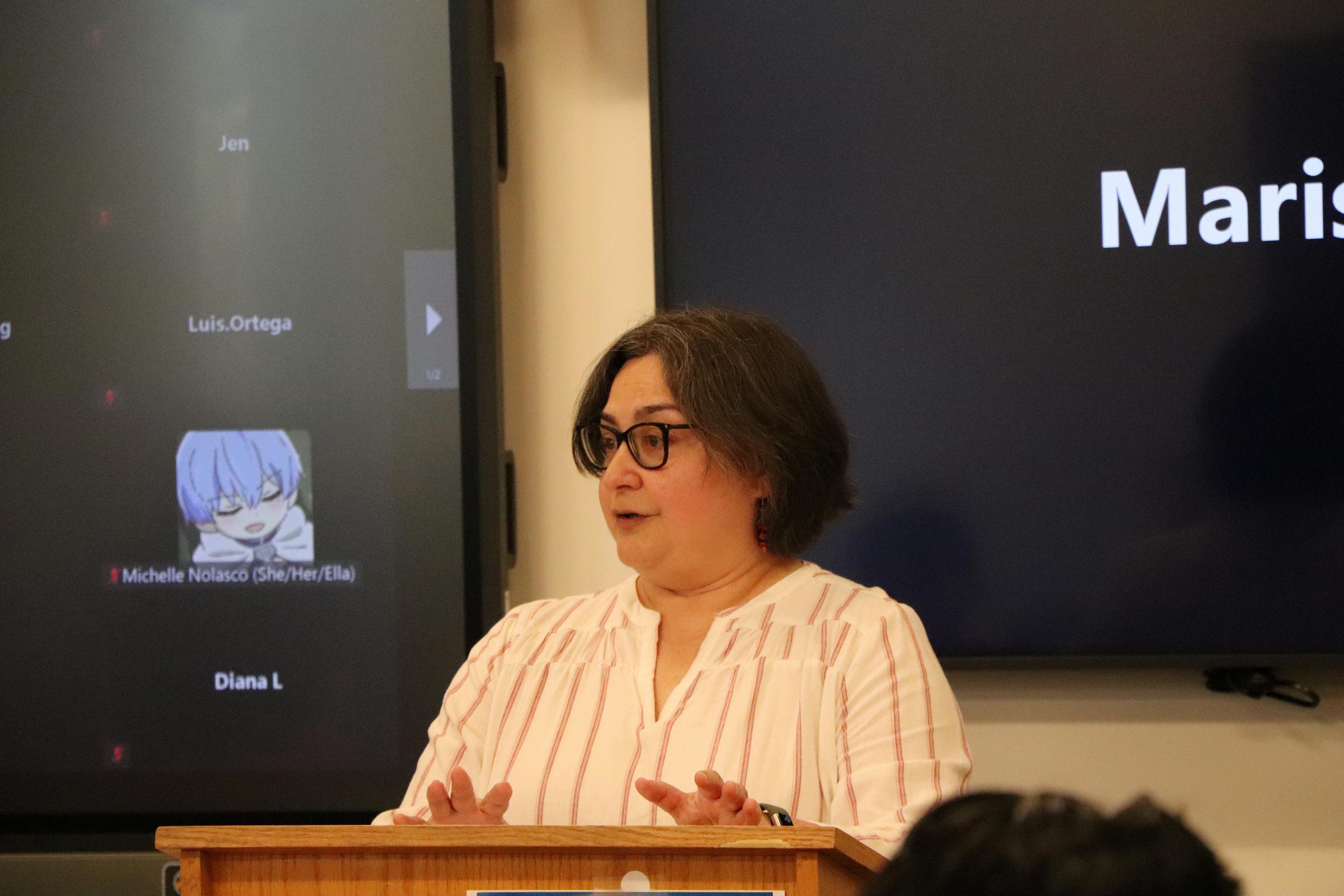
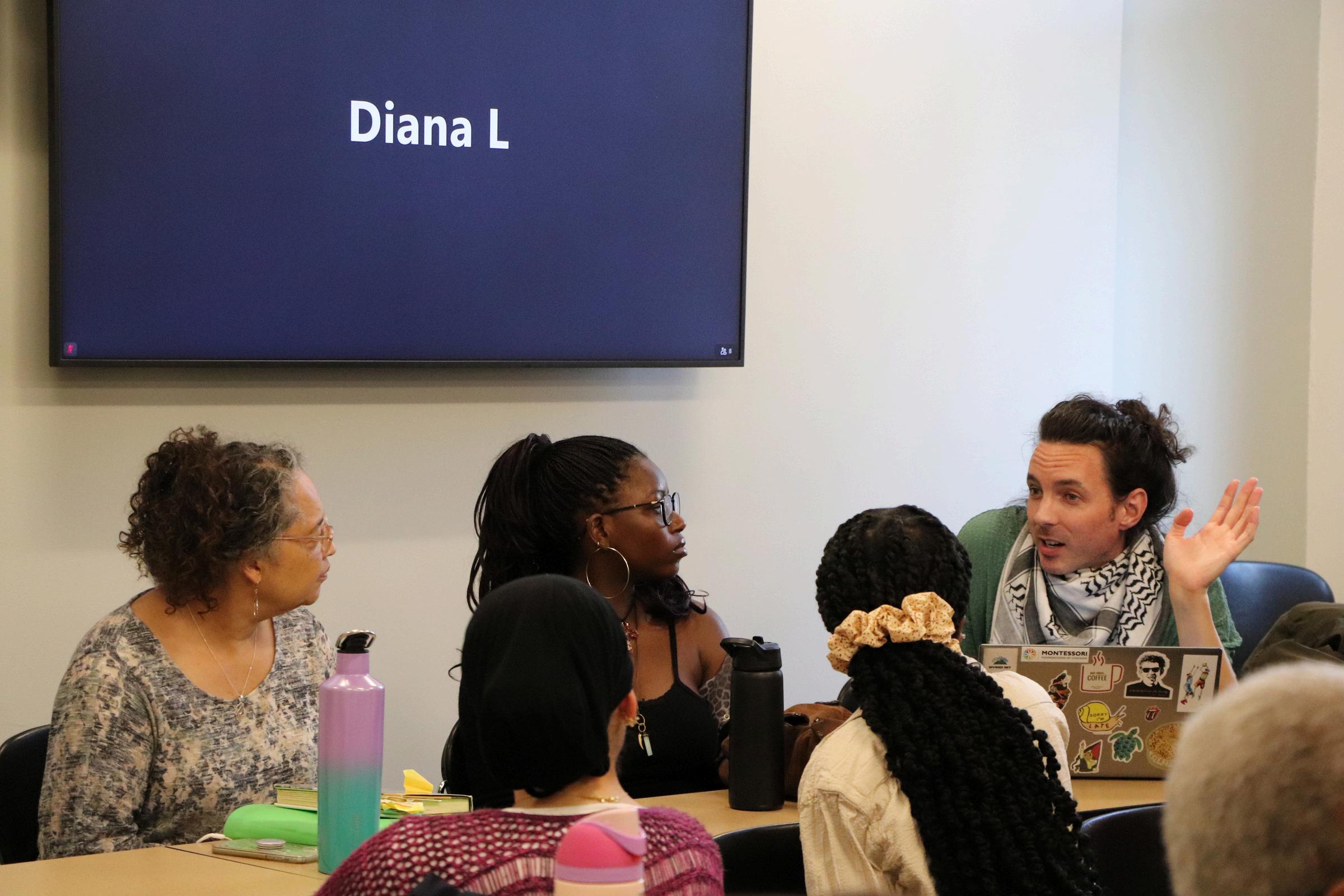
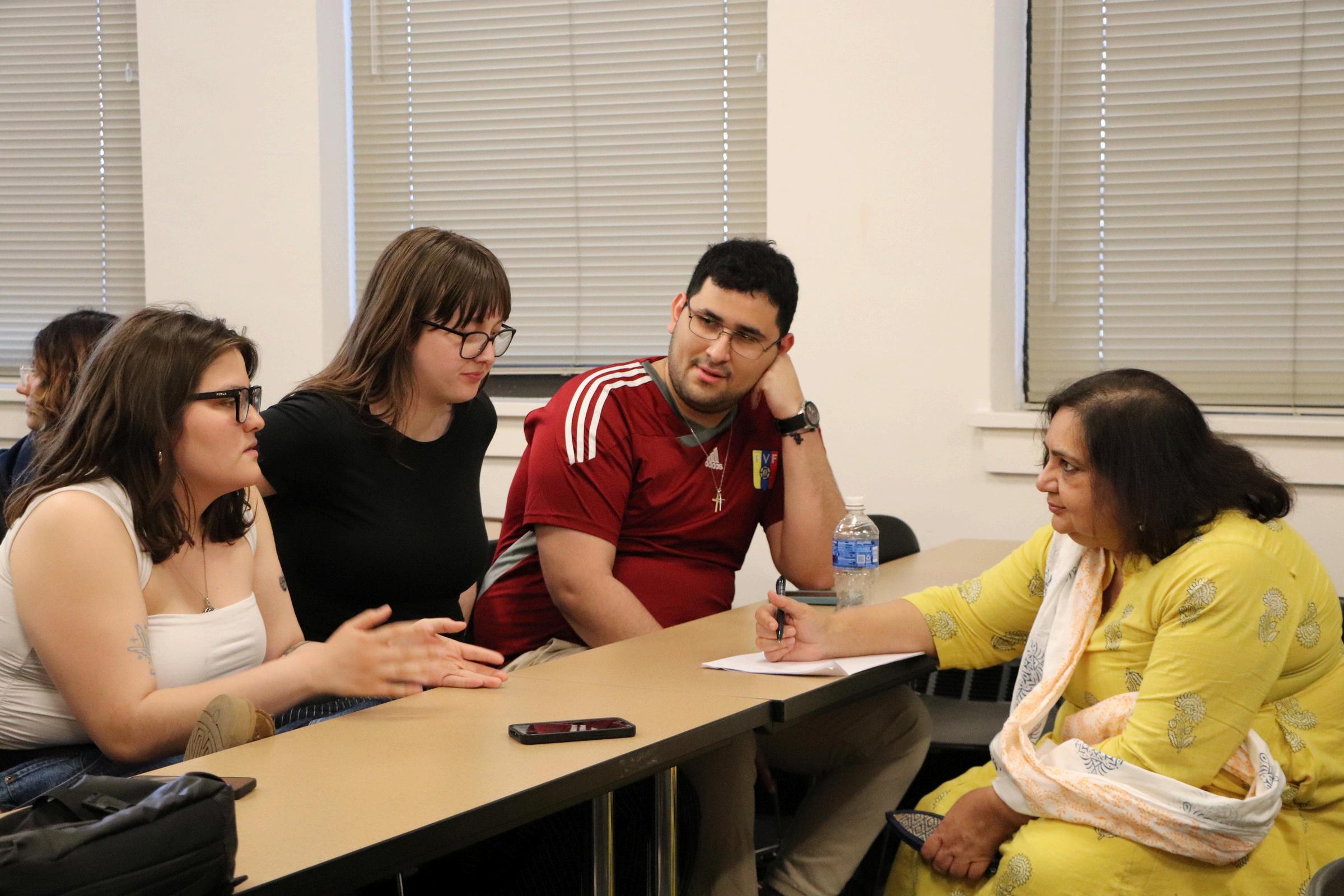
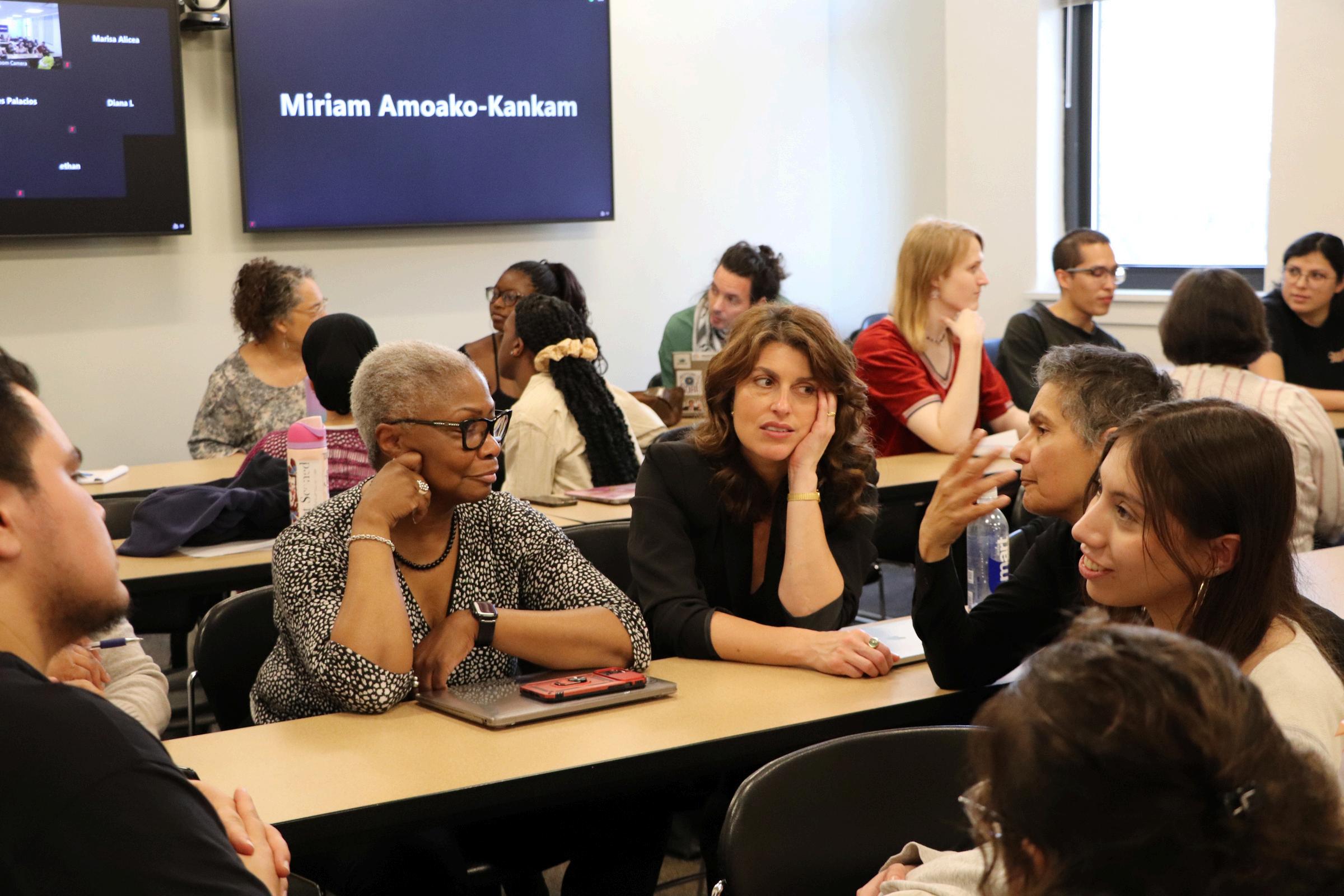
On February 6th, the CLR hosted our annual Tertulia, featuring short research presentations from our current and former CLR Faculty Fellows The event was followed by a thoughtful conversation between the CLR fellows and attendees who discussed the research and themes presented
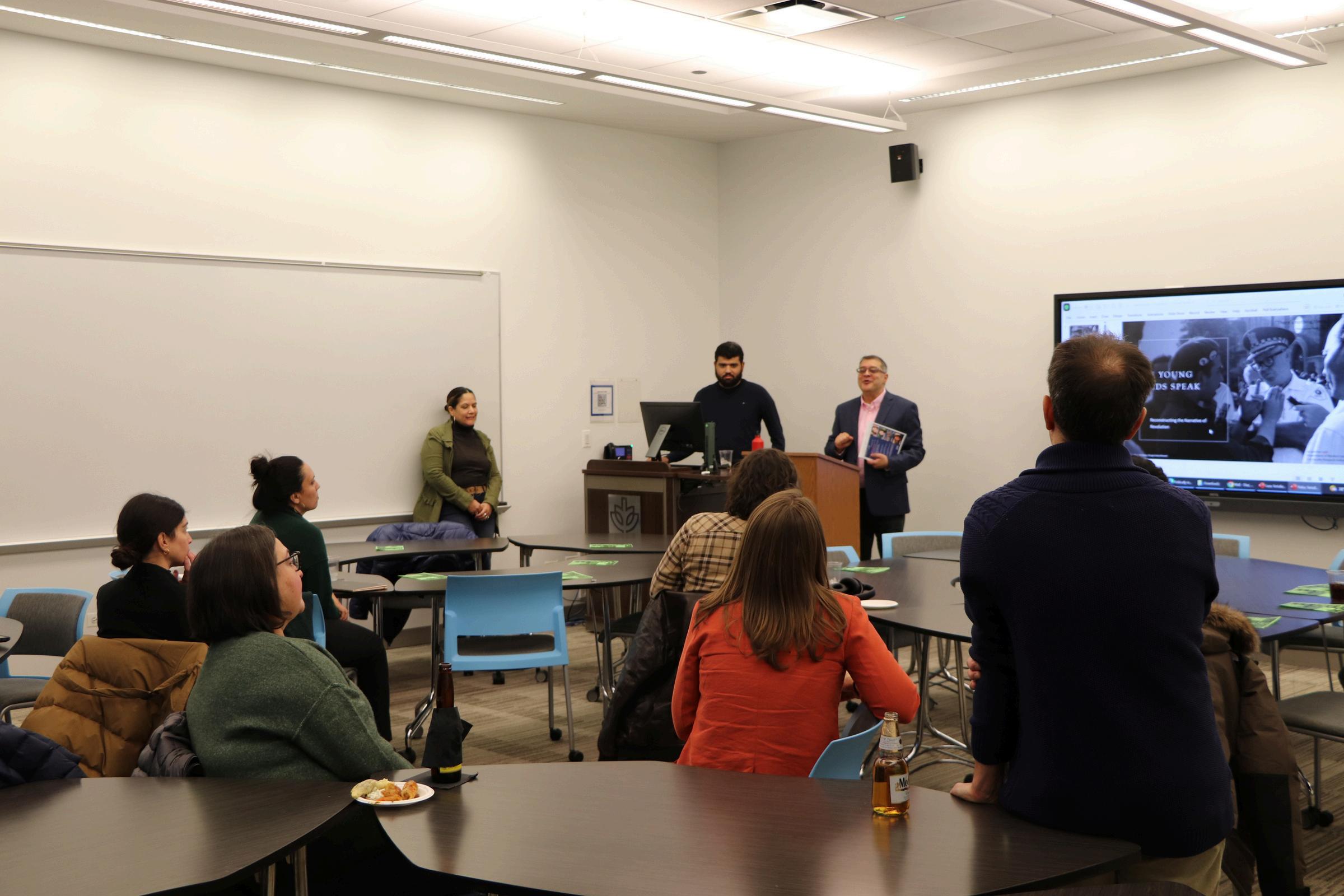
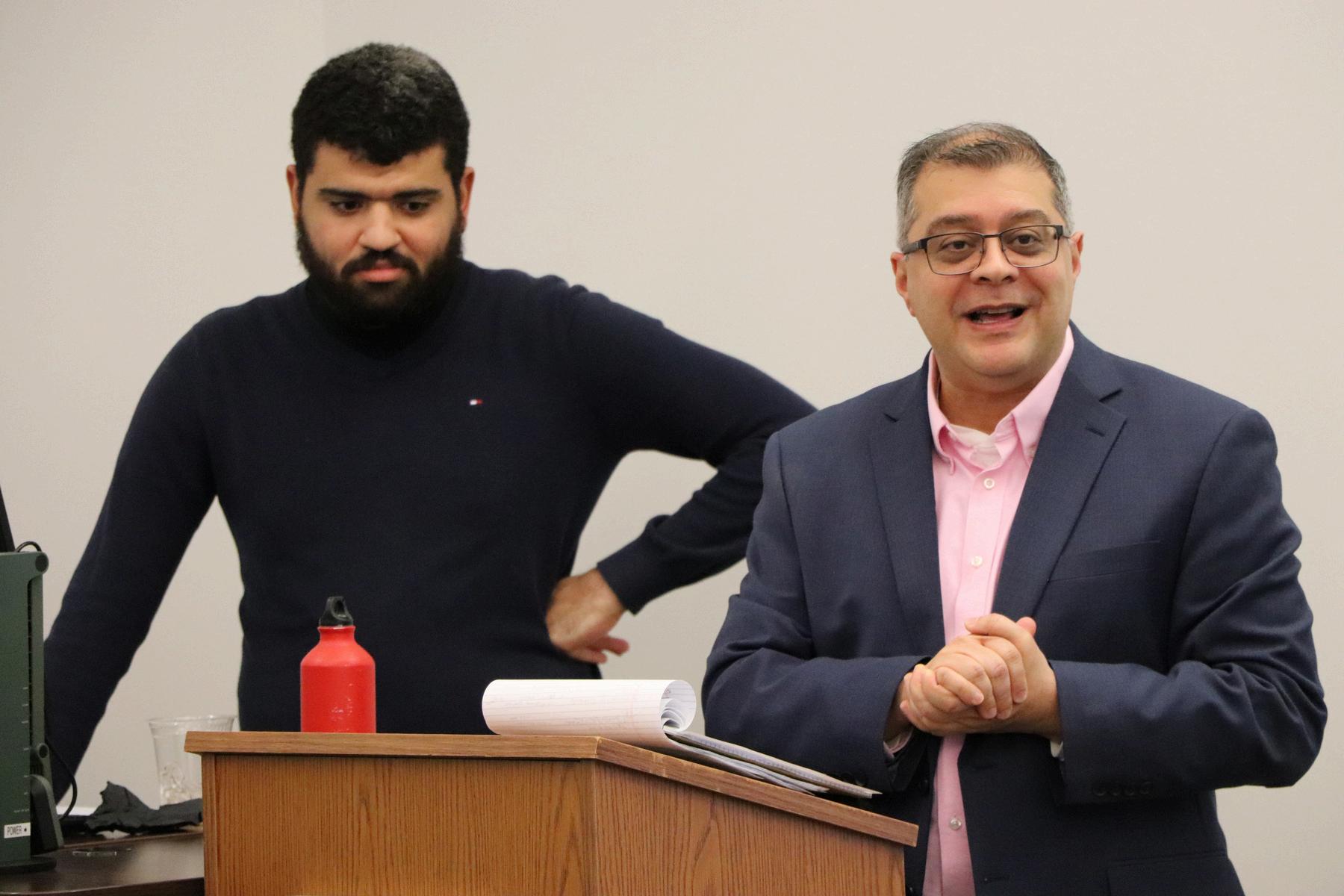
Dr Jacqueline Lazú (Modern Languages) introduced her book project “Young Lords Speak: (Re)Constructing the Narrative of Revolution” and talked about her experience exploring the hidden stories of this emblematic organization
CLR Director, Dr. Bill Johnson González, welcomed staff, faculty, and students who joined the event and thanked the CLR Faculty Fellows for all their amazing work
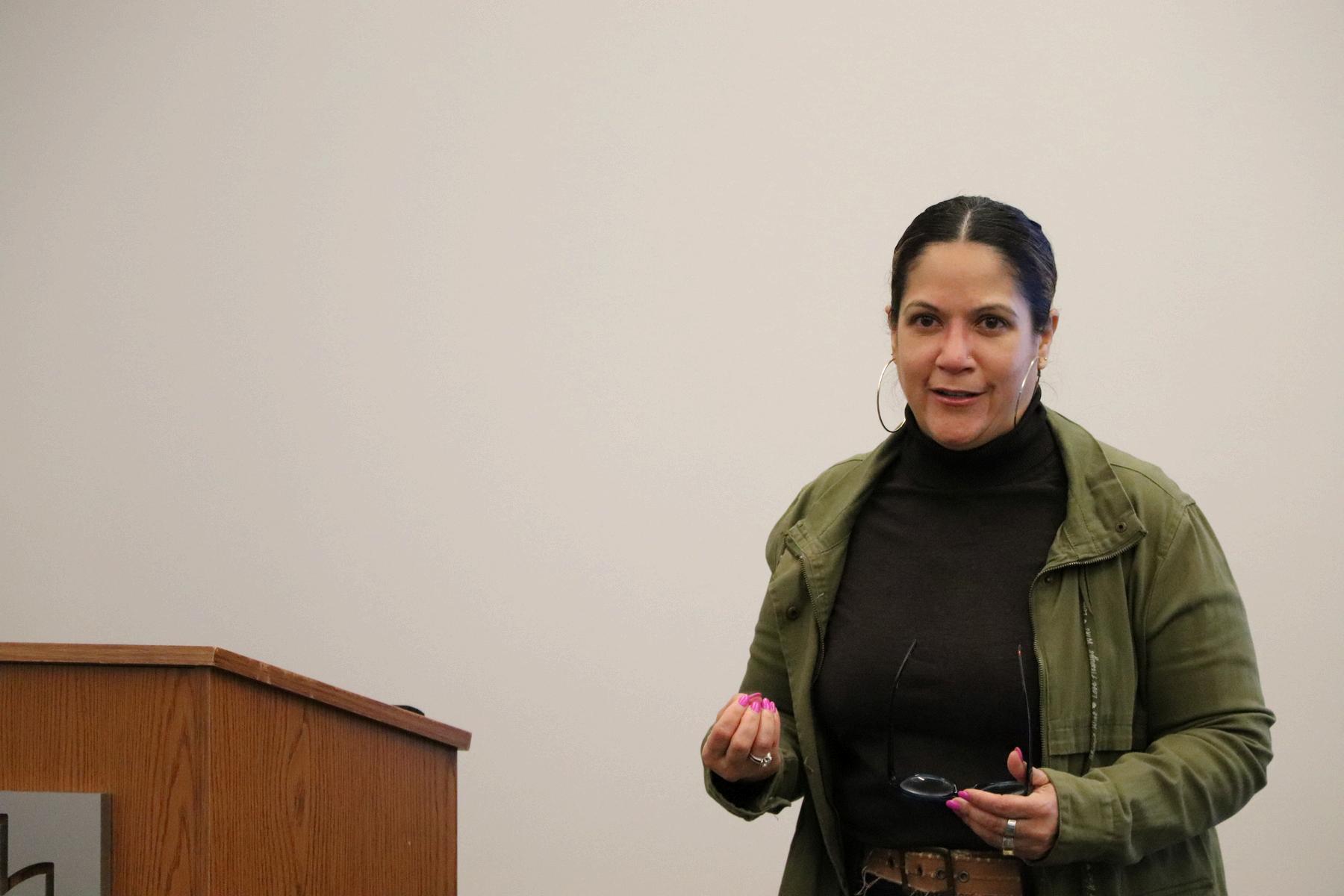
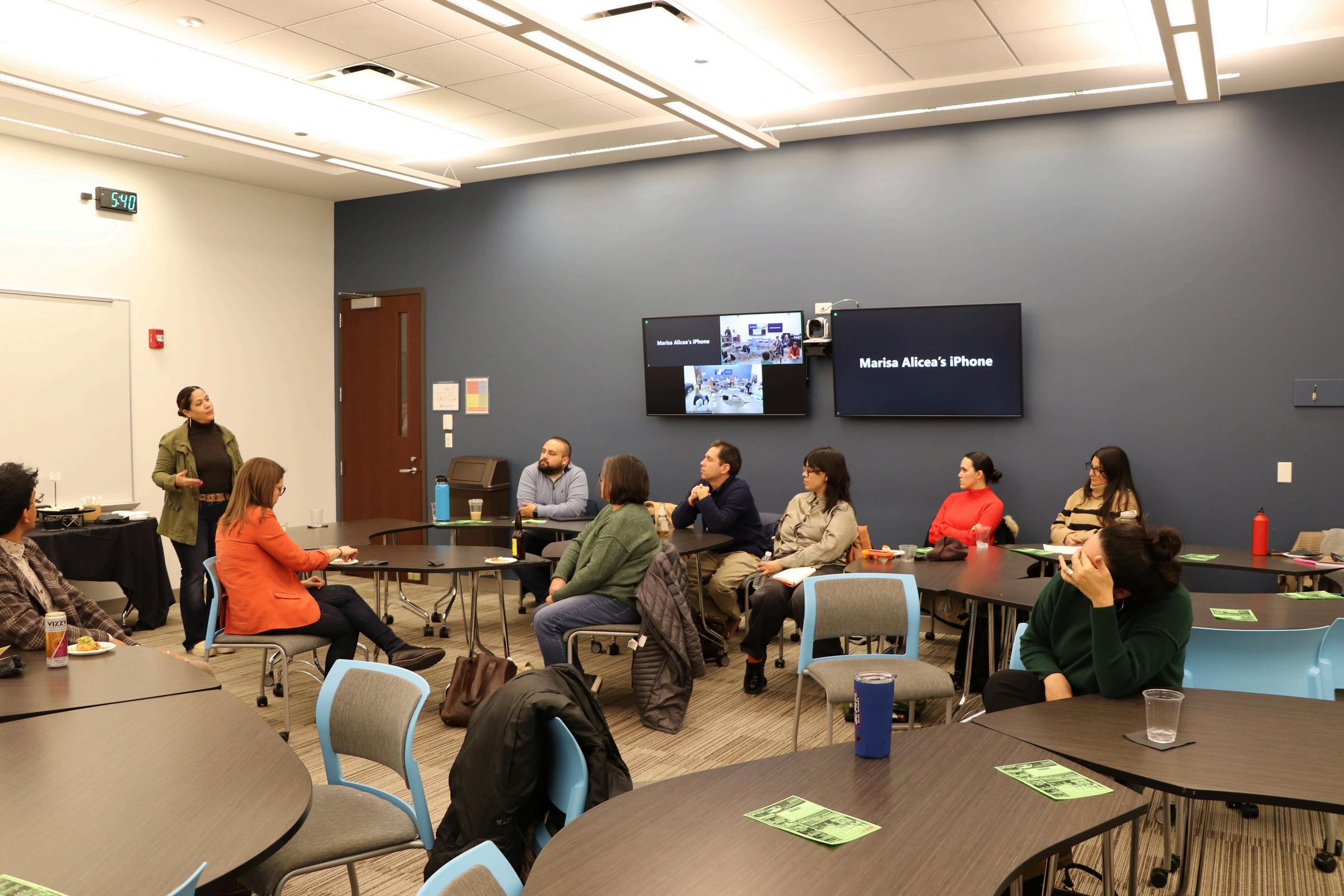
Dr. Jessica Polos (Public Health) explained the intersectional factors in premature birth among Hispanic women in her presentation, “The Role of Changes in Maternal Education in Explaining the Hispanic Birthweight Paradox ”
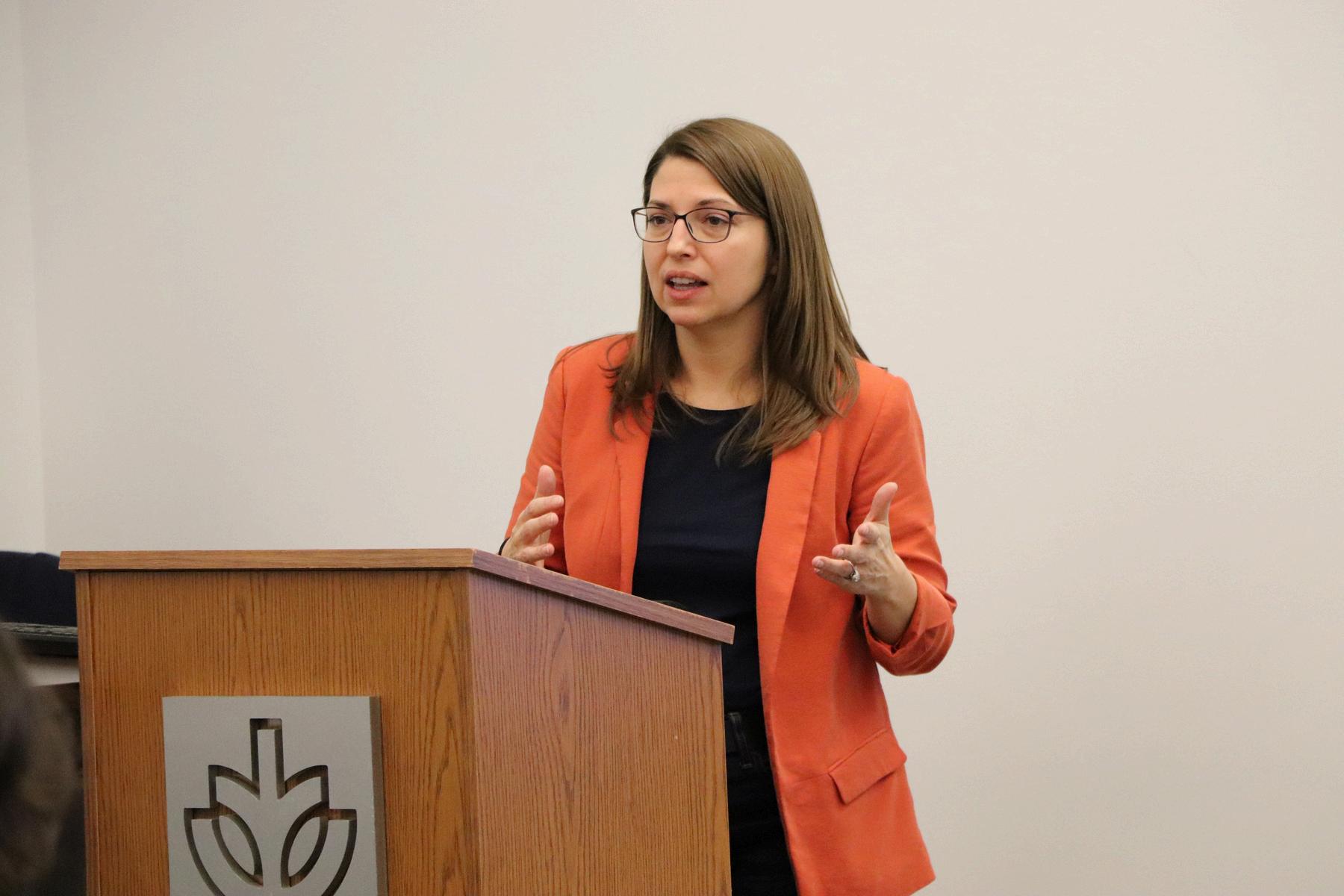
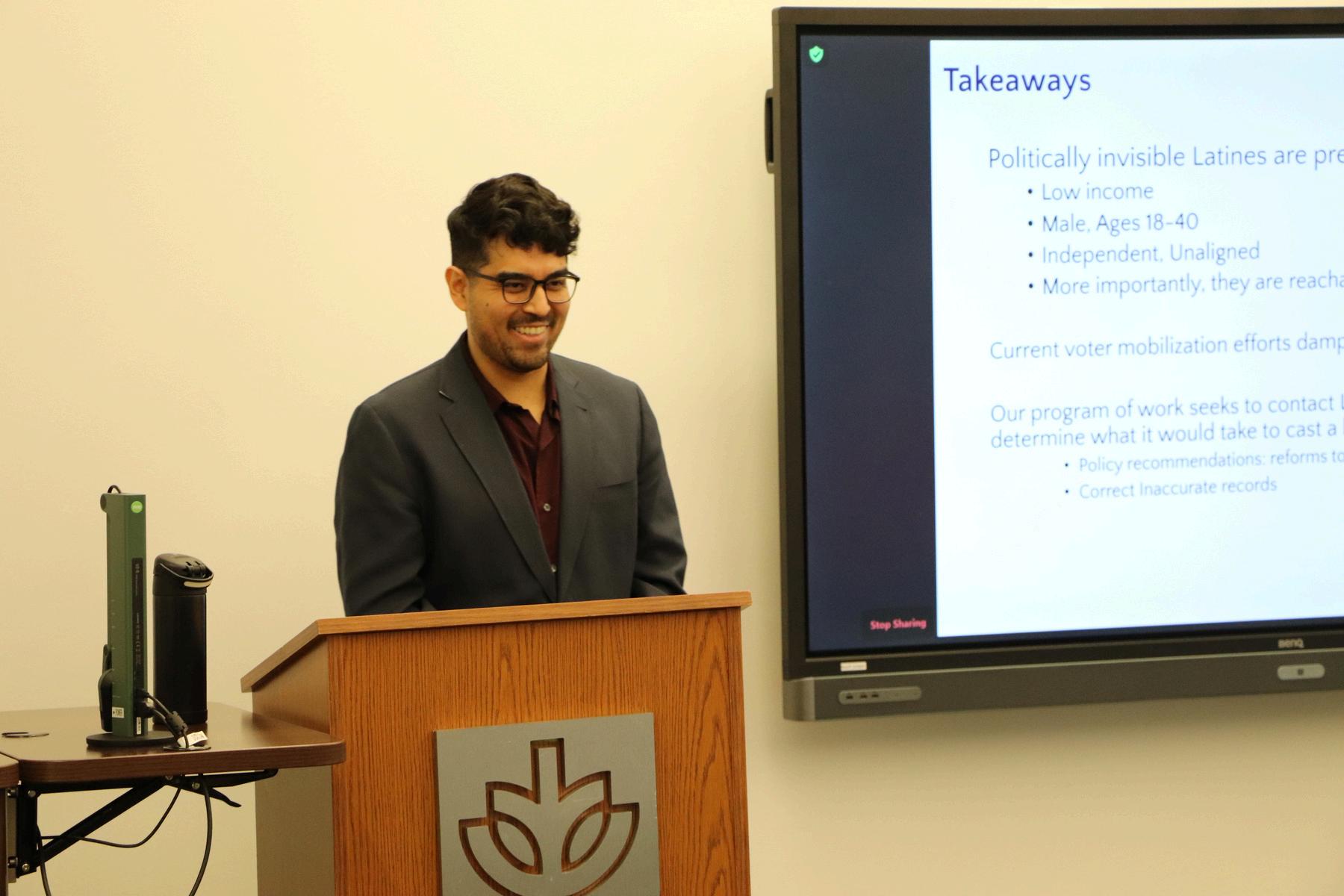
2022-2023 CLR Faculty Fellow, Dr. Monica Reyes (Writing, Rhetoric, and Discourse), presented her book, Cultivating Community: Rhetorical Practices of Migrant Volunteers in Chicago, which examines migrants' spaces and practices of resistance in the current sociopolitical situation.
Dr. Joe R. Tafoya (Political Science) discussed his work, “Mobilizing the Politically Invisible: Political Participation and the Unlisted Latino Population in Chicago,” which seeks to create strategies to mobilize the “politically invisible” Latino vote.
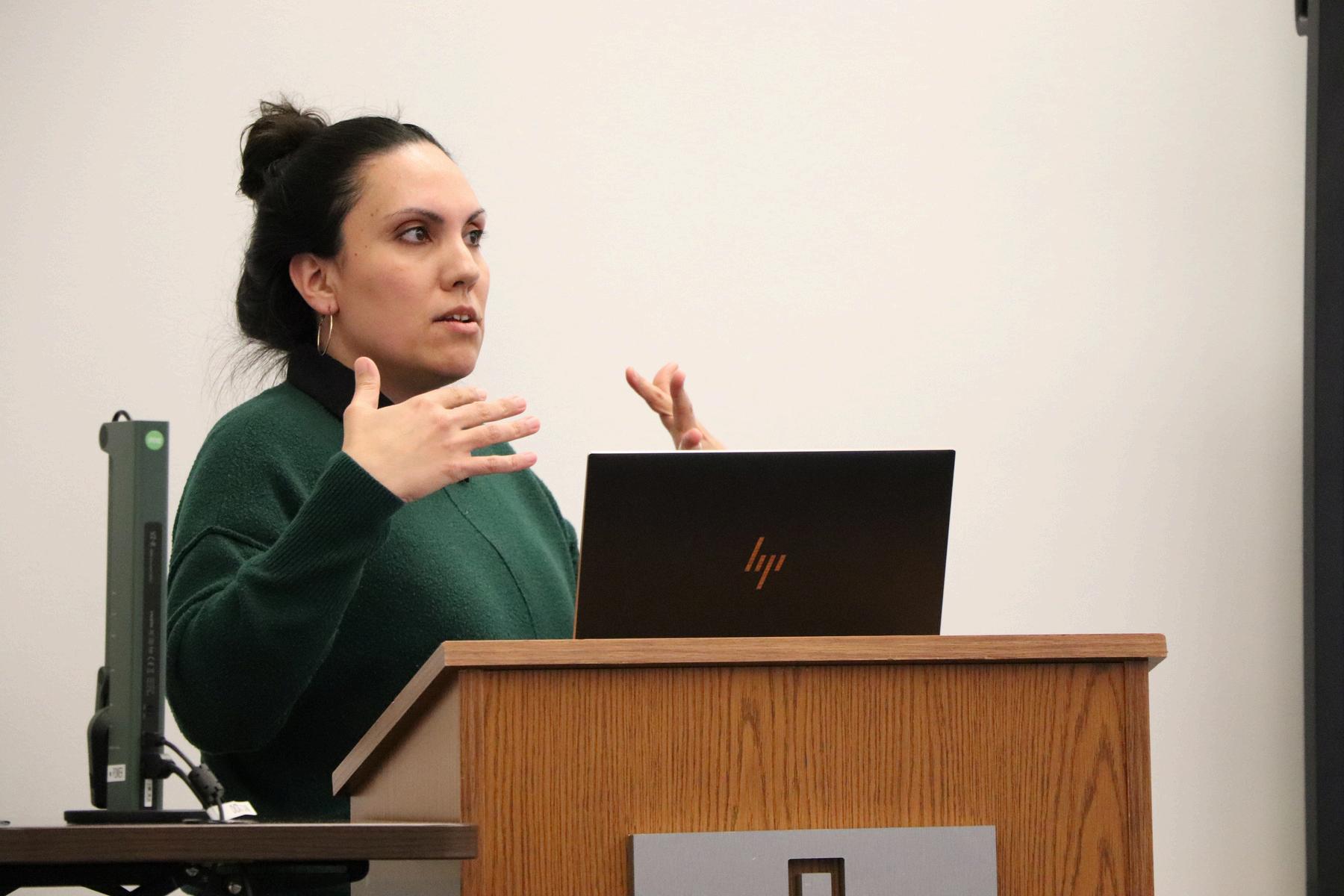
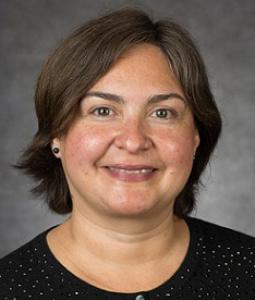
Associate Professor | Director of Peace, Justice & Conflict Studies Program
Chicago’s Central American Peace and Sanctuary Movements: A Historical Memory Project
Chicago has a long history as a sanctuary city This historical memory project connects past and present social justice activism by studying Chicago’s role in the movement to provide sanctuary to Central American refugees beginning in the 1980s. Steeped in the Central American peace and solidarity movements, Chicago organizers created an interfaith coalition to reject the U S government’s Cold War agenda My primary goal is to spotlight Chicago’s understudied sanctuary activism by collecting oral histories of community members and consulting the recent donations of the Chicago Religious Leadership Network archives to the Richardson Library Several CRLN members were and continue to be active social justice leaders in the community My goal is to contextualize the oral histories within a larger context of Peace Studies and immigrant justice activism I am prepared to interview Central American community members in Spanish to add their lived experiences and critical perspectives to historical spaces where their voices have often been silenced. In addition to publishing an article on my findings, I plan to introduce students to this important activism and advocacy work throughout my interdisciplinary teaching at DePaul
“From the Locker Room to the Press Box: Understanding How Latino Sports Figures Navigate Politics and Policy in the Age of anti-DEI”
With this study, Dr Vincent Peña will explore how Latino athletes, journalists, and sports professionals are navigating the growing backlash against diversity, equity, and inclusion (DEI) initiatives, particularly under the Trump administration By using sports as a political platform, recent anti-DEI efforts have had disproportionate effects on communities of color, including Latinos. Through qualitative interviews, this study will examine the personal and professional challenges Latinos face in this shifting climate and attempt to shed light on how these policies impact one ’ s identity, career opportunities, workplace culture, treatment, and the overall inclusivity of American sports
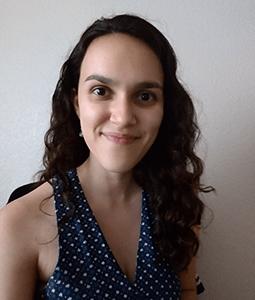
Assistant Professor | Spanish, Modern Languages
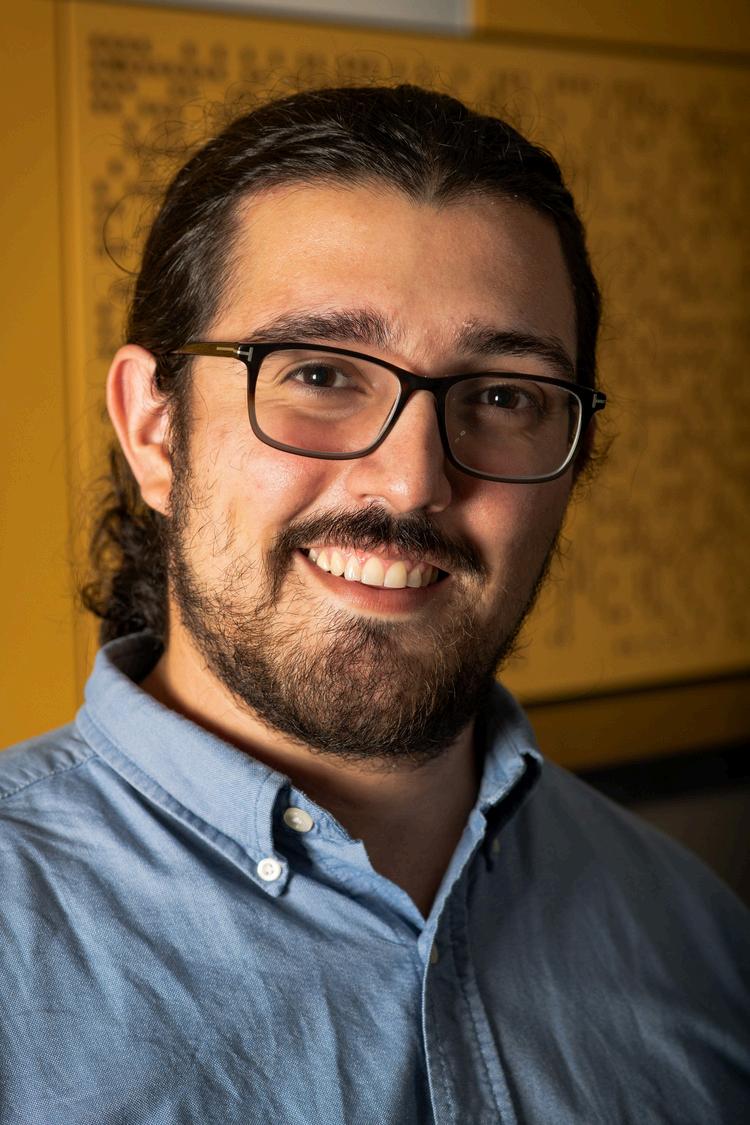
“Mourning Together: Artistic Interpretations of Mexico’s War on Drugs”
In The Restless Dead, Cristina Rivera Garza asks: What is the ethical and aesthetic significance of the literature and art produced in the context of war? This question is especially salient to Mexico, where the ongoing War on Drugs has produced a human rights crisis that has been worsened by impunity and the constant criminalization of the victims In cases like this, where the circumstances create feelings of social fear and separation between those directly affected and those not affected by human rights violations, it becomes imperative to re-establish social connections and to mobilize collective responses against the war nationally and internationally, as this forces the State to respond The question is: how to mobilize such responses? Mourning Together, my book project seeks to contribute to this debate by analyzing the answers provided by an emerging culture in Mexico: a mourning culture. By tracing and characterizing this movement through the study of literature and documentary films, I seek to demonstrate how the mourning culture has contributed to diluting criminalizing narratives, constructed other ways of understanding human rights violations from a site of care and affect, and established or reestablished social connections between victims, readers, and spectators
Professor | Latin American and Latino Studies
“Unearthing Racial and Urban Dynamics in Salvador (Brazil) and Chicago (US): Race, Gentrification and Whiteness”
I aim to examine the dynamics of the intersection between gentrification and race in Salvador, Brazil, and Chicago, USA two cities with long histories of racial segregation and urban transformations that impact Afro-Brazilians’ and African Americans’ access to affordable housing Drawing from recent publications on gentrification, neoliberalism, and anti-Black rhetoric in Salvador along with my ongoing research, I plan to conduct qualitative research in Salvador to later draw comparisons with Chicago This research will examine how anti-Black rhetoric, upgrades to the physical environment, and the growing presence of the white population in two Afro-Brazilian neighborhoods in Salvador have influenced increases in property and rent values, further limiting Afro-Brazilians' access to affordable housing
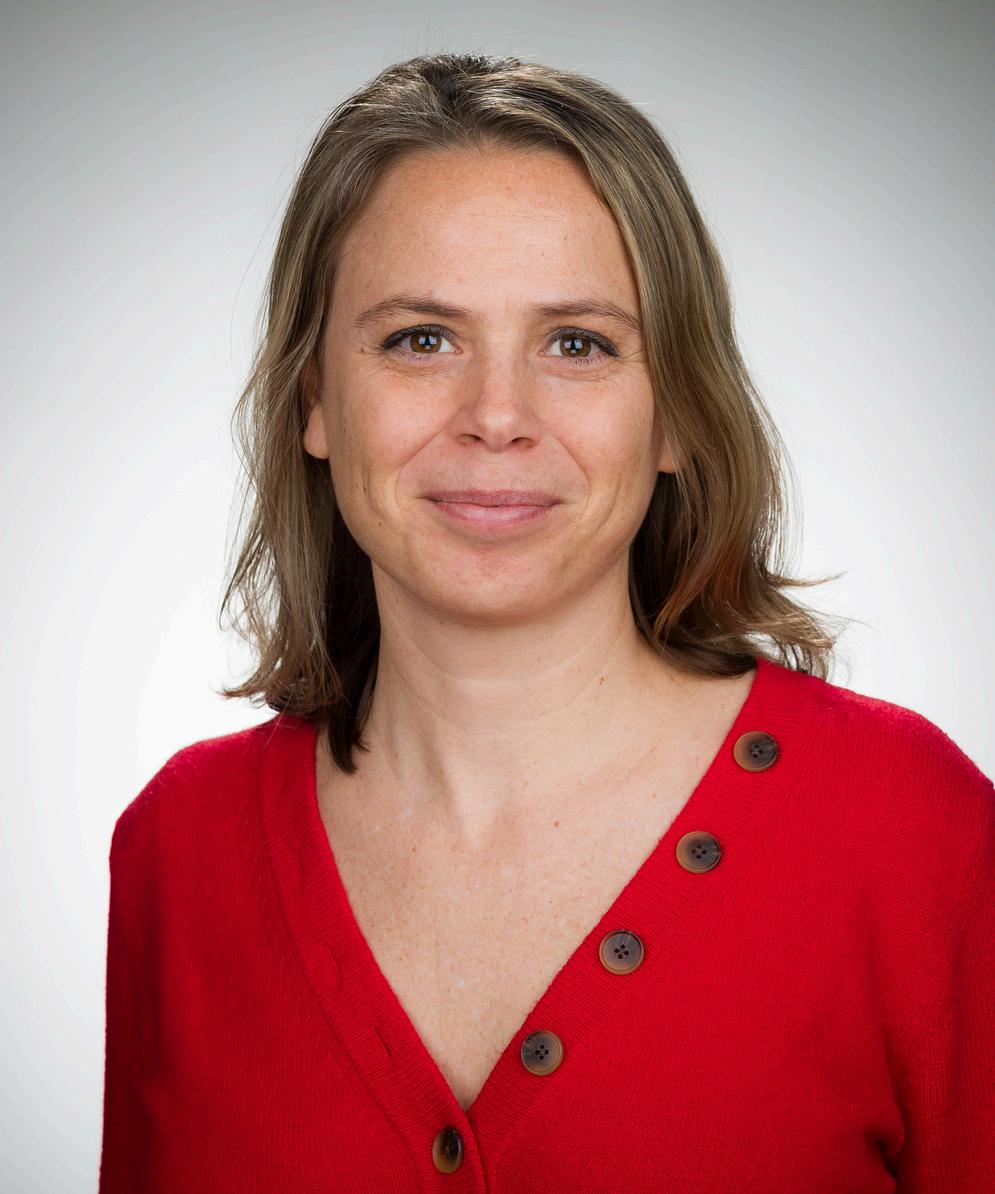
Interview conducted by Gigi Lara
Dr. Yoalli Rodríguez Aguilera is Assistant Professor of Latin American and Latino Studies at DePaul University. They earned a Ph.D. in Latin American and Latino Studies and Anthropology from the University of Texas at Austin. Dr. Rodríguez Aguilera is an interdisciplinary scholar whose work explores the intersections of gender, race, and environmental justice in Afro-Indigenous communities in Mexico. In this conversation, we discussed their work for the CLR Faculty Fellowship, "A History of Afro-Indigenous Women Against Environmental Racism on the Coast of Oaxaca, Mexico," which allowed them to do research concerning communities of Chacahua, uncovering the histo mental racism and state policies
I was born and raised in Mexico, specifically in Puebla. I did my undergrad in anthropology in Puebla and my master's in social anthropology in Mexico City. I'm very grateful for the first part of my education in Mexico because higher education in Latin America is of high quality. This was only confirmed when I came to the U.S. for my PhD at UT Austin in Latin American and LatinoStudiesandAnthropology.
I'm queer. I prefer they/them pronouns but also use she/her. My work is intertwined with my personal life. I did a lot of political work and community organizing in Mexico as part of student organization mobilizations. Even though I'm a professor in the U.S., I always keep my roots in Mexico. I am actively working in Mexican academia, going to conferences, publishing, and working with universities in Mexico. It is ethical for me to continue working in both Mexican andU.S.academia.
Tell us about your current project as a 20242025 CLR Faculty Fellow, “A History of AfroIndigenous Women Against Environ-mental RacismontheCoastofOaxaca,Mexico.”
First, I am very grateful for the fellowship because it gave me time to return to my book and research project about environmental racism in Mexico. Since 2016, I've been working with Afro-Indigenous communitybased organizations on the coast of Oaxaca, Mexico, specifically with Afro-Indigenous women-led organizations. My work is around the Chacahua lagoonsconnectedtothePacificOceaninOaxaca.
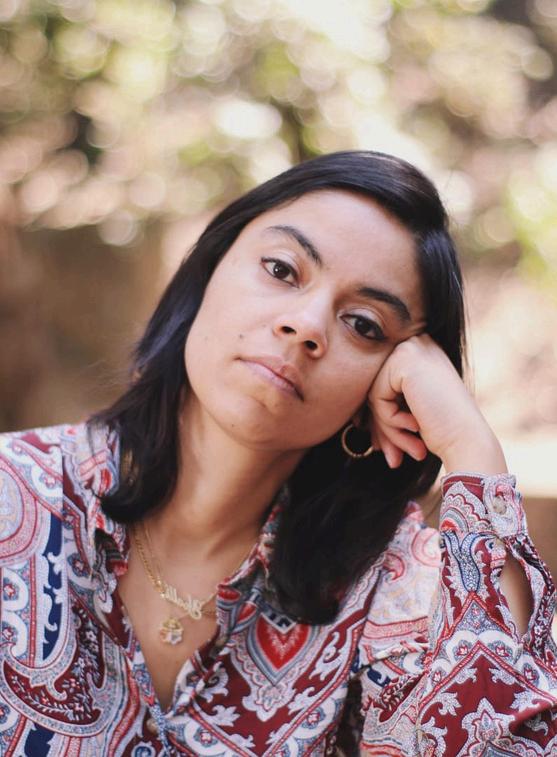
The project aims to document the conditions of the lagoon, which is slowly dying due to pollution toxicity, and the environmental policies of the Mexican government. Because it's an Afro-indigenous ancestral territory, I claim that it is a case of environmental racism. If it were in Mexico City and belonged to the middle-upper class, white, and mestizo communities, the lagoon would have already been healed. Since it is an Afro-indigenous working-class community, this ecocidehasbeenhappeningforovertwentyyears.
One of my book chapters provides historical context. During my quarter off because of the CLR fellowship, I went to the National Archive in Mexico City and saw maps and documentation of slavery. It was my first time going, and I was excited. I even had an ID card to enter as an official researcher. I was doing a lot of manual,analogwork.
They told me, “This is a room full of archives and cards.” I spent hours reading one-by-one cards that were typewritten. I learned a lot about all the territorial environmental struggles: territorial land dispossession cases in Mexico by white and Mestizo Mexicans toward Black and Indigenous populations. Iplanongoingbacktolearnmore.
Through this fellowship, I also have a student assistant, Simon Rafet. What they are helping me do is create a visual archive of my research. During my fieldwork, I lived for fourteen months in the community. I have thousands of images that I alone have not been able to catalog. Simon’s [archival] work is already helping me when I go to present at conferences.
What is your final book project going to look like? What are the chapters going to look like?
It will be an ethnographic book where I write about the experiences of these women. What are they doing for activism, for defending the land and the water? There is going to be a historical chapter where I go back to the archives and talk about the history of the Mexican state in that region with Black and Indigenous territorial land dispossession. There will also be a geographical chapter using geographical methodology. It will feature an alternative method, community mapping. Simon helped me scan some of the research materials. For example, we collected “body maps”; women in the community drew themselves during workshops discussing the importance of self-representation and their relationship with the environment. I asked them to name and map emotions regarding the lagoon dying — rage, sorrow, sadness, and hopelessness. I'm very excited to keep working on my book using these nontraditionalmethodologies.
What was the moment in your academic career or life that sparked your interest in studying environmental racism and AfroIndigenous resistance? Or is this something youhavealwayshadaninterestin?
Growing up in Mexico shaped my whole life. When you live and grow there, in Latin America, and especially in Mexico, there are so many social movementsforjusticehappening.
I was in an environment where every day, people were mobilizing. Social justice permeated the environmentwhereIgrewup,anditinspiredme.
When I was in undergrad, I started reading the work of anthropologists who were doing politically committed work. I learned how academia can support social movements and mobilizations for liberation. For me, that was what made me say, “I want to do this as part of my academic job.” If my academic job can be tied to movements for liberationandsocialjustice,Iwanttodothat. Since my undergrad, I've worked with subjects concerning racism. In Mexico, you have to do a dissertation for undergrad, so I wrote 200 pages about juridical practices of institutional racism against Indigenous women in prison. For my fieldwork, I entered prisons at a young age, around 21 years old. For nine months, I interviewed Indigenous women inside the prison about the processes and their experiences. A lot of them were lockedupunfairlybecauseofracism.
That research changed my life because once I worked with them and saw how bad the judicial system works in Mexico, I knew I needed to keep working on this subject. So, for my master's, I worked on the southern border of Guatemala in Chiapas with shelters for immigrants coming from Central America to Mexico. I lived in the shelter for four months, helping cook for the people. It was very impactful to see the conditions under which the migrants traveled. I was working, again, with xenophobia and racism against non-Mexicans. Specifically against Indigenous and Black immigrantscomingfromCentralAmerica.
When I came to the U.S., I knew I was going to continue working on racism in Mexico. Initially, I had no idea my research would be about the environment. I thought it would be research about Afro-Mexican women because I had always worked with women. When I went to the community where I was going to research, the women were worried about the lagoon, and it kept coming up. So, I changed the topic of my research to focus on the lagoon — how the environment is toxic and how theywereworriedaboutthepotentiallossoftheir
ancestral water and land. They wanted a researcher to document what was happening and comment on it. So, I developed the research to prioritizetheirvoicesandsupporttheirefforts.
Why are you centering your research in Mexico?
I’m interested in knowing how Mexican policies and the state operate while simultaneously oppressing and being very racist toward indigenous and Black populations. Also, my grandfather was a farmer in northern Mexico. He didn't even finish elementary school but was a land defender organizer fighting for the communal land. Even though he was not Black or Indigenous, that inspired me. What are the chances that my grandfather was a land defender, and I ended up working with issues of environmental struggles? Forme,itisacyclicalthing.
I was not supposed to occupy this space in academia, especially in U.S. academia, for many reasons: I was born and raised in Mexico; English is my second language, so I did a PhD in a second language; I am an immigrant, and I am queer. Whenever I think about my work, I always think about my ancestors and family—I am not here by myself. It was the support and example of my grandparentsdefendingsomething.
How would you define decolonial environmental justice? What does that look likeasaresearcher?
We cannot impose outside definitions of decolonial environmental justice. You have to listen to the people from the land, as they are the ones who have to guide the definition and steps [toward justice]. Wehavetolearntobehumbleinacademia.
Access to higher education is a privilege, in any form. Utilizing that privilege to center the voices of people who historically have been silenced is one. Also, citing authors who usually do not have the space to be read. In my classes, I center these authors because the politics of citing is essential for decolonial work. Another way to decolonize these efforts is to seek non-traditional [research and documentation] methodologies other than reading andwriting.
In my case, I don’t want my project to be presented only in book form. Ideally, it would also be done as a short documentary about the lagoons, a sound piece about ecocide, and a small “zine”-like book for a broader audience using the body maps where the women from the community are co-authors. How can we do research that goes beyond academic audiencesandtowardthecommunity?
What has been your experience working at DePaul? What is one thing you have learned fromyourstudents?
I love the students, and I love teaching. It is a lot of fun. At DePaul, I am very grateful for the Department of Latin American and Latino Studies because I feel welcome as a new junior faculty member. They have supported me in my decisions. For example, in the classes I want to offer and the types of syllabi I want to create. It is exciting to feel the freedom to explore my academic intellectual questions.
In terms of my students, I have learned so much from them. My classes are more seminars than lectures. On the first day of class, I clarified that the classroom is a co-learning space, where I am not the only one teaching, but they are also teaching, so wearelearningtogether. Because of that, I have created good relationships with students. I feel very proud that my students tell me they have found classmates and made friends in my classes because I give them space to get to know one another better. It makes me happy to know that my students feel safe enough to create friendshipsinmyclassroom.
In your free time, you DJ. What kind of music do you make, and what artists inspire yourartthemost?
I have not been deejaying lately, but I keep collecting music. Latin American music is a huge part of my specialty collection because I feel people connect through music. Latin American music has been a space of resistance, to give messages to the community and create community by collectivizing music and spaces of joy. Many people say that joy is resistance. Creating spaces of music where people enjoy and dance and their spirits are lifted, in a worldwhereourspiritsarenotlifted,feelsradical.
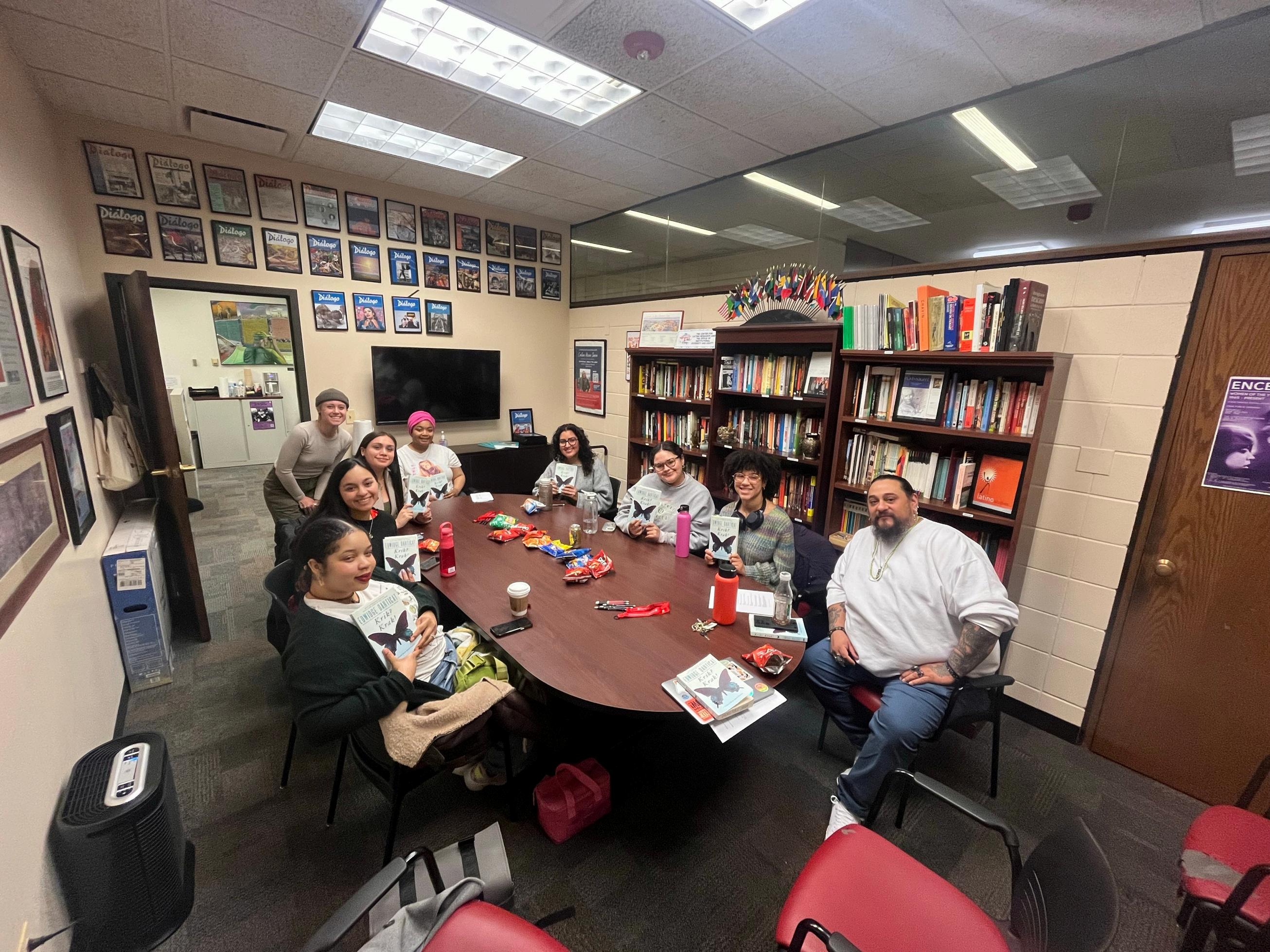
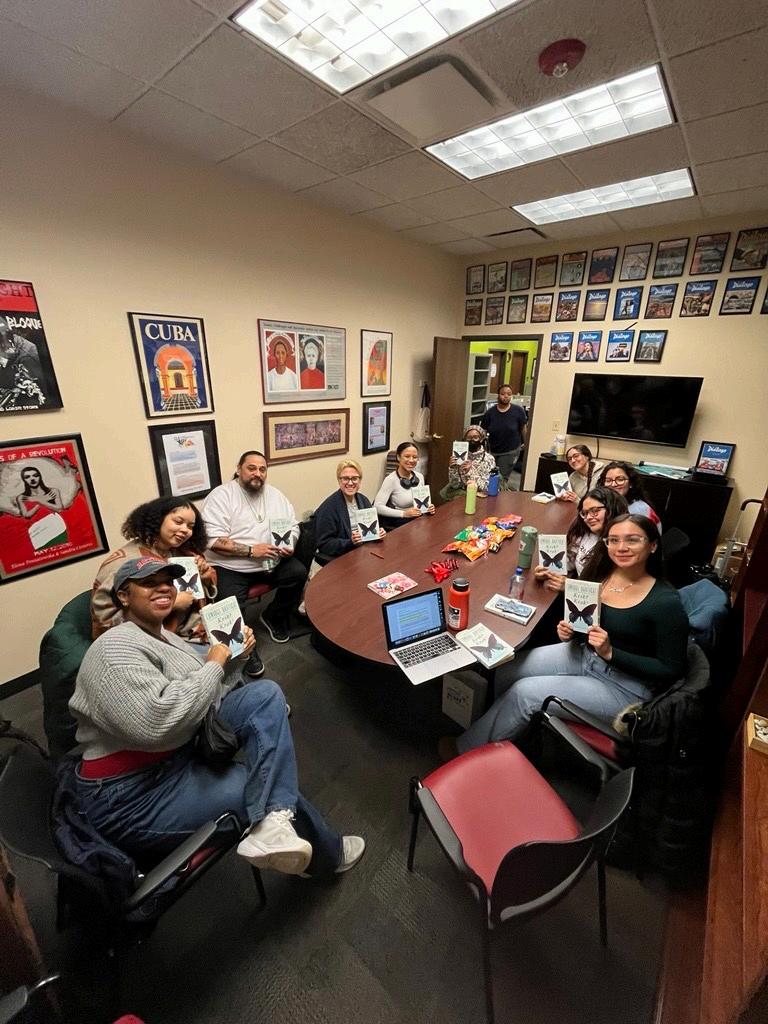
by Edwidge Danticat
This winter, our book club discussed Edwidge Danticat’s book, Krik? Krak!, is a collection of short stories that explore the daily lives of Haitian women, particularly those enduring the harsh realities of the Duvalier dictatorship and the lasting heritage of trauma across time and space.
Throughout the three sessions, we discussed the literary elements used by the author to depict not only the constant violence and oppression but also women ' s agency and aspirations, which were particularly moving for the participants. The book club members also highlighted women ' s resilience and the importance given to preserving cultural and spiritual practices through storytelling. All women ' s lives were interconnected by ancestral rituals and shared struggles.
THANK TO OUR ATTENDESS FOR THEIR REFLECTIONS AND OPENNESS. SEE YOU SOON!

A second year student double majoring in English and Latin American and Latino Studies with a minor in African and Black Diaspora Studies
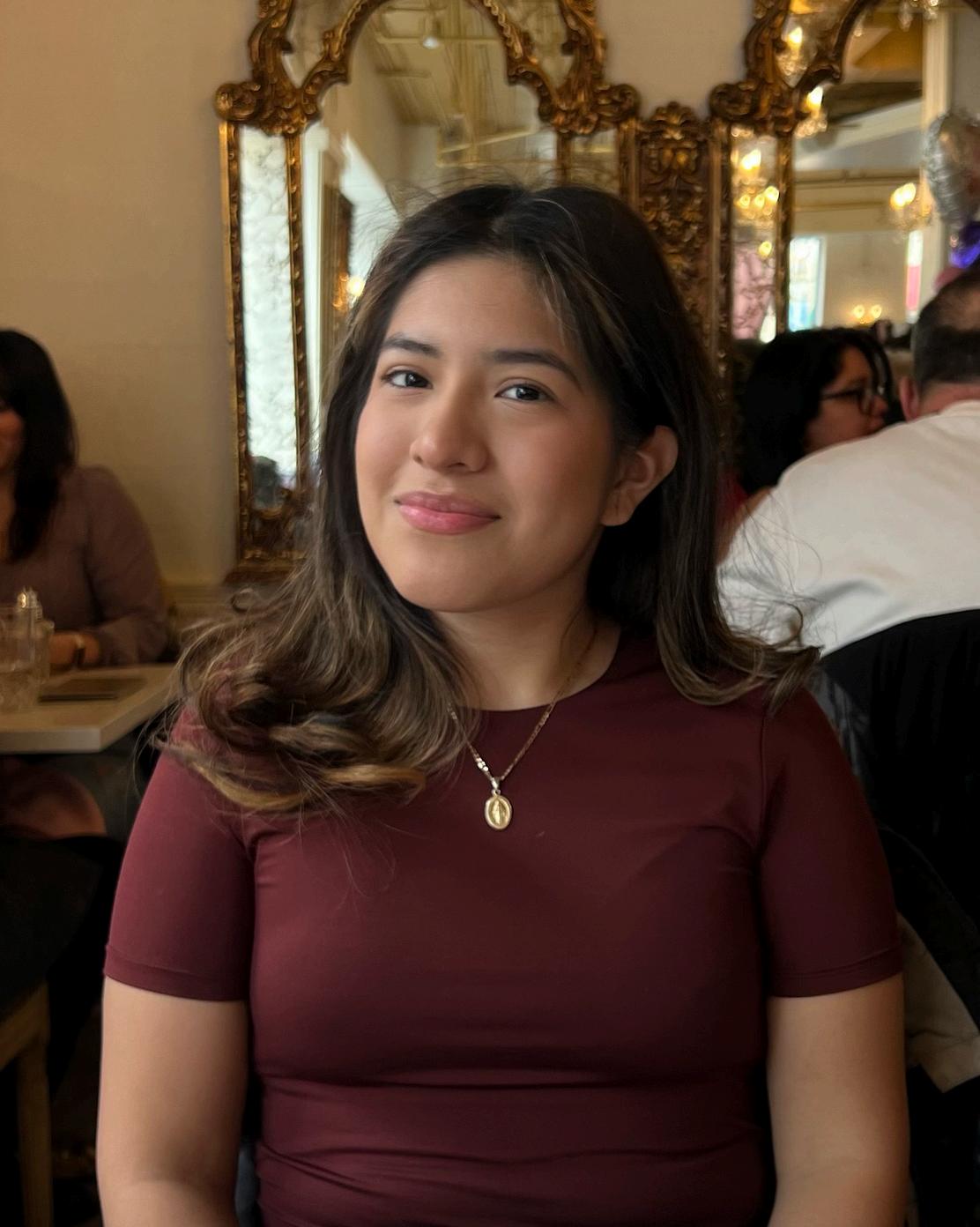
(Not pictured)
A fourth year student majoring Latin American and Latino Studies
A third year student majoring in Psychology with a minor in Latin American and Latino Studies
Congratulations to our scholarship recipients! Your outstanding work makes this award welldeserved. We are grateful to all who participated your enthusiasm and effort are what make this program special!
The CLR/LALS External Advisory Board scholarship was made possible by the generosity of our Advisory Board members. The scholarship fund was established by them last year. The award reflects the board’s ongoing commitment to empowering and supporting DePaul students; many of the board members were themselves DePaul students and LALS majors. This year is the first year in which these scholarships have been awarded.
Contact for more information: clr@depaul.edu or lals@depaul.edu

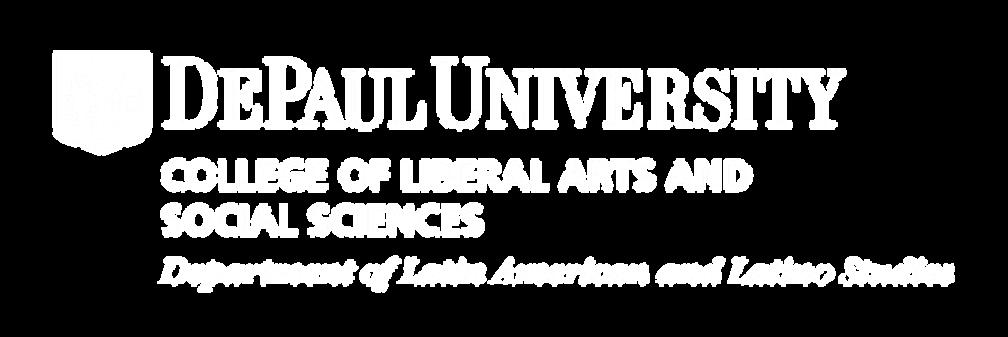
FILM SCREENING FOR
Presented by the Center for Latino Research and Latin American and Latino Studies
MONDAY, MAY 19TH
STARTING @ 5:45 PM
MCGOWAN SOUTH 103
Followed by a Q&A with the film's director
Glorimar Marrero-Sánchez
A CANCER DIAGNOSIS INSPIRES NOELIA TO RETURN TO HER NATIVE PUERTO RICO AND REUNITE WITH FRIENDS AND FAMILY WHO ARE DEALING WITH INDUSTRIAL POLLUTION LEFT BY THE US MILITARY
REGISTER TO ATTEND HERE:
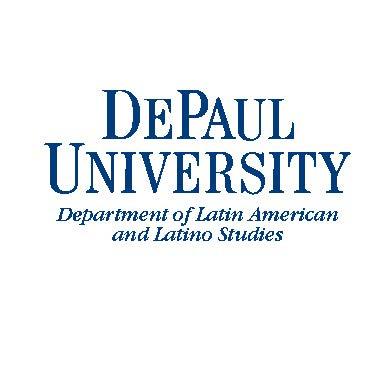

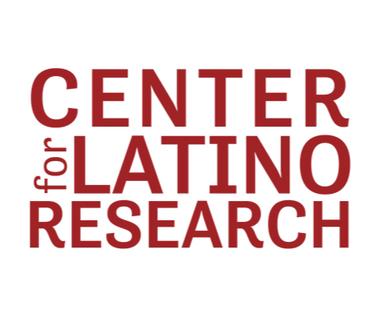
Thursday, May 1st
4:30 - 5:45pm
Wednesday, May 14th
4:30 - 5:45pm
Thursday, May 29th
4:30 - 5:45pm
All meetings will take place at the Center for Latino Research (SAC 5th Floor, Suite A-H)
The first 15 students who register will receive a FREE COPY of the book!
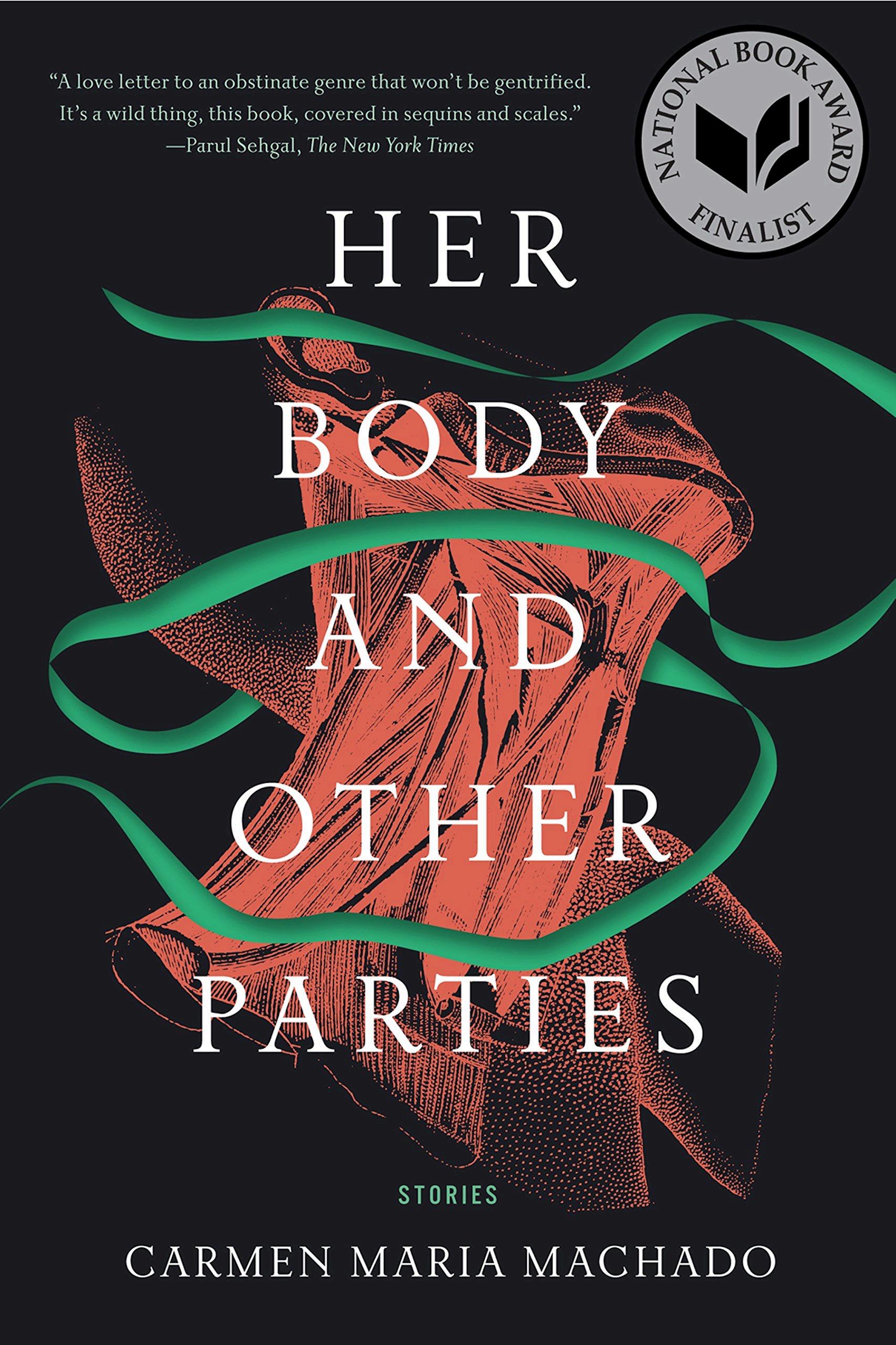
Maria G. Arias
Principal, Maria Arias Solutions
BA, Political Science, DePaul University, 1983
Martin Arteaga
President, Green Building Partners, Inc.
BA, Political Science, DePaul University, 2000
Trish Brown Cordes
Master of Public Service Management, DePaul University, 1983
Leonard Domínguez
Secretary, Little Village Rotary Club of Chicago
BA, Economics, DePaul University, 1967
Yvette Flores
Managing Partner/Director, Cardinal Green Investments LLC
BA, Sociology, DePaul University, 1986
Marisol Morales
Executive Director, Carnegie Elective Classifications, American Council on Education
BA, Latin American Latino Studies; MA/MS International Public Service Management, DePaul University, 1999
Maria Pesqueira
President, Healthy Communities Foundation
BA, Latin American Studies, DePaul University, 1990
Edgar Ramírez
President/CEO, Chicago Commons Association
BA, Political Science/Latin American Studies, DePaul University, 2000
Ulises Iván Sánchez
Human Resources Officer/U.S. Department of State
BA, Leadership and Human Resources Management, DePaul University, 2015
MS, Human Resources, DePaul University, 2016
Lou Sandoval
President/CEO, Halo Advisory Group
BS, Biochemistry, DePaul University, 1988
In 2022, the CLR and LALS Department worked with Dr. Marisa Alicea to establish an External Advisory Board made up of DePaul alumnae/i and community members. This volunteer group serves as advocates, advisors, and resources for CLR & LALS faculty and students. The group meets quarterly to remain informed about CLR & LALS activities and to establish a plan to assist in our efforts. The board’s work is grounded on a common understanding of the importance of the opportunity to study and research Latin American and Latinx communities.
Yvette Flores serves as one of the managing members of Deerfield Capital, where she oversees the company ' s legal and business development efforts. Her experience spans all phases of commercial real estate. Before joining Deerfield, Yvette was a founding member of the law firm Flores & Mihevc, LLC ("FM Law"), where she focused on commercial real estate transactions Yvette earned a bachelor’s degree in Sociology from DePaul University and received her Juris Doctor from the University of Notre Dame She is also the director of a family foundation that supports residents of Puerto Rico affected by Hurricane Maria Currently, Yvette is a member of the CLR/LALS External Advisory Board
I am a first-generation college graduate from DePaul University, having earned my degree in Liberal Arts and Sciences in 1986 with a concentration in sociology of law. Later, I pursued a law degree at the University of Notre Dame, graduating in 1989. My sister, Jeannie Edwards, also graduated from DePaul in 1988 and subsequently attended law school at Notre Dame. I love that we were at school together in two different places I cherish the memories of attending college with her I was born and raised in Chicago My parents moved to Chicago from Puerto Rico in the 1950s, and it has been our home ever since My mom was very young when she came, around six or seven years old, and my father was 14. But I am very proud of my Puerto Rican heritage, and I keep the culture in my heart. While I view work as important, my greatest joy comes from my family and friends. My parents, my son (who plans to attend DePaul in 2026), my nephews – my oldest nephew played on DePaul's soccer team, and we would attend their games –, and my niece, who also attended DePaul. I also now work with my sister, who is my lawyer. DePaul has been so important in our lives that my niece went there because she felt it was home My son now wants to go to DePaul We already have someone in the second generation who has attended DePaul, and we may have another one And it's a sense of pride for me
How has your experience as a Latina alumnae at DePaul influenced your work in law and now in real estate?
DePaul helped shape me into the person I am today, along with my family. I'm the daughter of a deacon in the Catholic Church, so faith has always been fundamental to me, so I was thankful to attend a Catholic college and law school.
When I attended DePaul, we could count the Latino students there, and I knew many of them, including one of my fellow board members, Lou Sandoval During college and law school, I often found myself in environments where few individuals resembled me, which taught me to adapt to different situations. Navigating DePaul taught me that I belonged. In school, you spend time with people of other ideas and cultures. DePaul, along with my family, helped me develop essential skills, such as teamwork, perseverance, hard work, discipline, and dedication.
I’m a blue-collar kid. One crucial thing that I learned is how to manage my time. In your career and personal life, I have found that the ability to manage time distinguishes those who have achieved success.
Participating in and understanding sports helped me succeed in a male-dominated industry because I was able to connect and work effectively with both men and women
As a founder of Flores & Mihevc ("FM Law") and a managing member at Deerfield Capital, how has your professional journey evolved?
From a young age, I was driven to help others. I believed that a career in law would be the most effective way to achieve this goal. I began my professional journey at a litigation firm, where my first year was exciting and new. However, I realized that litigation was not my preferred path by my second year. I didn’t like it because it was combative, a winlose operation. I wanted to be in situations where there is compromise, where our company and the other side can work together to find a solution. The firm allowed me to transition to corporate contracts, which I found more fulfilling
My career then led me to practice real estate law, and basically what I did was the legal work for locations that would ultimately be McDonald’s and Walgreens
In 2001, I decided to shift my focus to the business side of real estate, leveraging my legal experience with a desire to enhance my business acumen. In 2008, seeking a change due to a desire to build a company from the ground up, I left the corporate world to establish a boutique real estate law firm. I practiced law and engaged in various real estate-related roles within the firm until 2019 when I co-founded Cardinal Green Investments, a real estate investment firm specializing in buying and selling commercial real estate properties. We manage risk and own properties throughout the United States
Given all your years of professional experience, what do you think about Latinx, and particularly Latina representation in the real estate and business fields? What challenges did you face as a Latina leader and how did you overcome them?
As a Latina and a woman, I have been in real estate since 1992, for 33 years, and when I started, there weren't a lot of women in real estate. I was the second person in my department; the other person was also a Latina, out of hundreds of people. In my second job, I was the only one in the Law. In real estate, after about 8 years, there was one other person in the department who happened to be a woman, and we are still good friends. Right now, there is still not a single woman broker that I deal with regularly
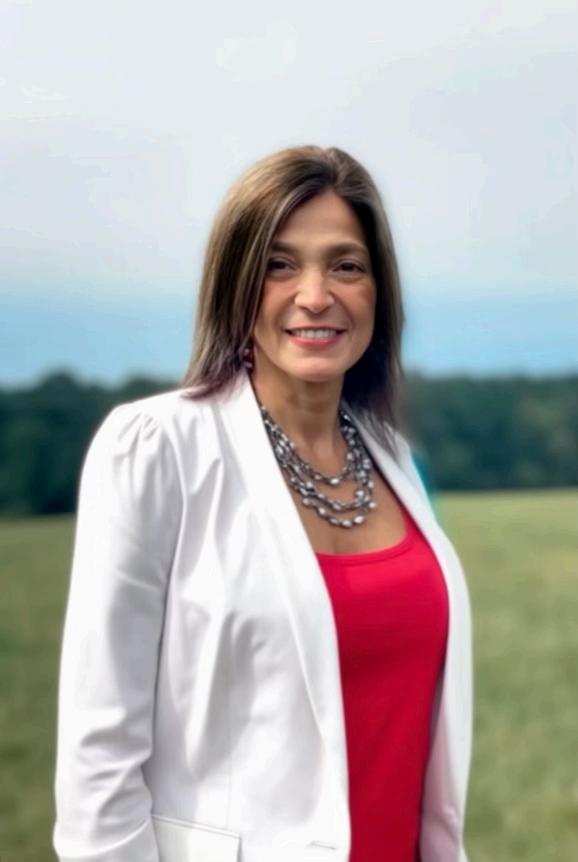
An example of the challenge is that guys make deals on the golf course. I'm athletic, so I took up golf, and I now golf with them. I also love sports, so I know enough where I can talk to the guys, and it helps. The challenge is being in a male-dominated world, and you have to find ways to have a commonality because you want to do business with people you like and who like you.
I want to be looked at as a person and as a Christian, but my cultural background has shaped who I am I am committed to giving back and feel it is my duty to help others within the community Owning a business has afforded me the flexibility to support the Latinx community. I have been involved in a family charity, mentored aspiring professionals, hired summer interns, and served on various boards to support the Latinx community through these ongoing efforts.
Right now, I'm working with two Latino brokers, and I have worked with a few more. It's changing. I look for opportunities not only for Latinos but also for minorities. But the fact that I have to count the numbers says something. The good thing is that the numbers are increasing, and that’s encouraging.
Over the last few decades, a sector of the growing Latinx population has come of age and has been gaining more purchasing power in cities like Chicago. Do you consider that there is a gap or disconnection between the real estate market’s characteristics, mostly dominated by white people, and Latinos trying to own properties or build careers in the field?
I believe there is a gap between Latinx ownership of residential and commercial properties and other ethnic groups due to factors such as discrimination in the housing market, predatory lending practices, and financial barriers. By financial barriers, I mean if you don’t have enough money to pay the 20% or the required amount to buy a home, you aren’t going to be able to get it. The way to address those gaps is through education, buying power, and the political process.
Education opens many doors for you; it gives you higher income potential. There is a gap in Latinx income due to the types of jobs we are led towards. There is a significant difference between a collegeeducated household and one that's not As a result, there is a lack of knowledge on how to enter these fields And then you add the historic discrimination in the housing market that works to keep out people of color, and then predatory lending practices. All those factors come into the gap. How you address it is through education and networking.
What advice would you give to current students who may be interested in pursuing a career in law, business, or real estate?
If anybody is interested in a career in real estate, I encourage them to reach out because if I can help one person, it makes us all better. It's also a peopleoriented business. Networking is crucial engage with people, build friendships, and cultivate relationships. Ask professionals about their career journeys, challenges, failures, and successes. Connect with DePaul alumni, who are often willing to assist. Speak with recent graduates and experienced individuals. Don't hesitate to explore different opportunities, and remember, it's perfectly acceptable to change your career path after graduation.
Two years into my career, I wanted a new direction. I reached out to my best friend from DePaul’s sister, who is also a DePaul graduate, who worked as a Real Estate Attorney at McDonald's Despite having minimal commercial real estate experience, I dedicated hours to making inquiries, and researching the field and the company, which, along with my McDonald's contact, helped me secure the job. Being open to change and seeking help when needed. No one has all the answers; we are all continuously learning and growing. You'll be surprised at what you can achieve by simply asking.
You are also deeply involved in various civic and community organizations, including supporting Puerto Rican residents postHurricane Maria. Can you elaborate on this work?
I am Puerto Rican. I believe in the importance of giving back. Education transformed my sister's and my life, and subsequently, our children's lives. Being just one generation removed from living on a dirt floor, I felt an obligation to assist Puerto Rico following the devastation caused by Hurricane Maria.
My cousin and I mobilized our networks, including family, friends, classmates, neighbors, and coworkers, and successfully raised $50,000 in a short period With these funds, we were able to address the immediate need for water, which led to the reopening of two schools and aided several others.
As a member of the LALS/CLR Advisory board, how can DePaul continue to support Latinx students and alumni in achieving professional success, particularly in fields where our representation is still limited?
DePaul can support Latinx and all students and alumni through mentorship and guidance. By having professionals in those fields share their experiences and insights, students can gain knowledge, but knowledge is only the first step DePaul can work with alumni to give students experience and exposure to various industries through workshops, internships, and job opportunities Through networking events, students and alumni can obtain access to individuals who could assist them and open different career paths.
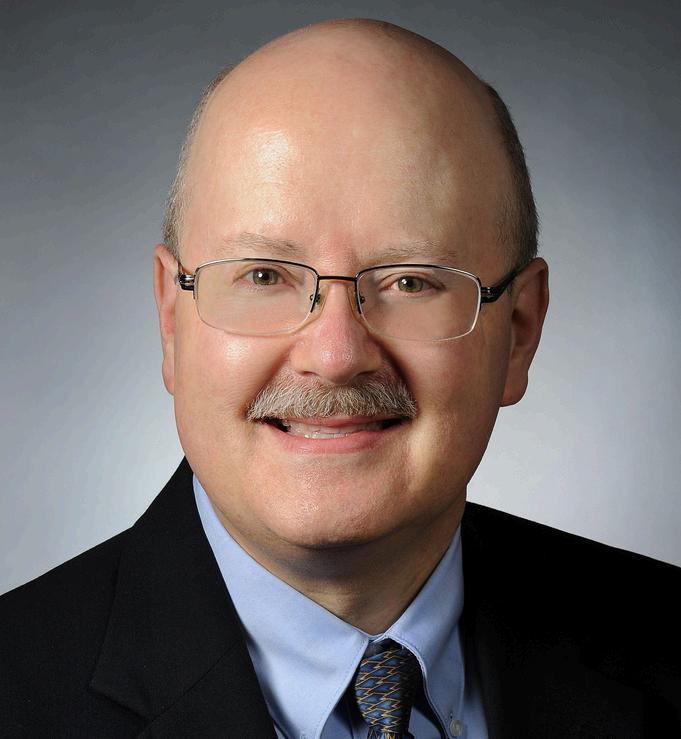
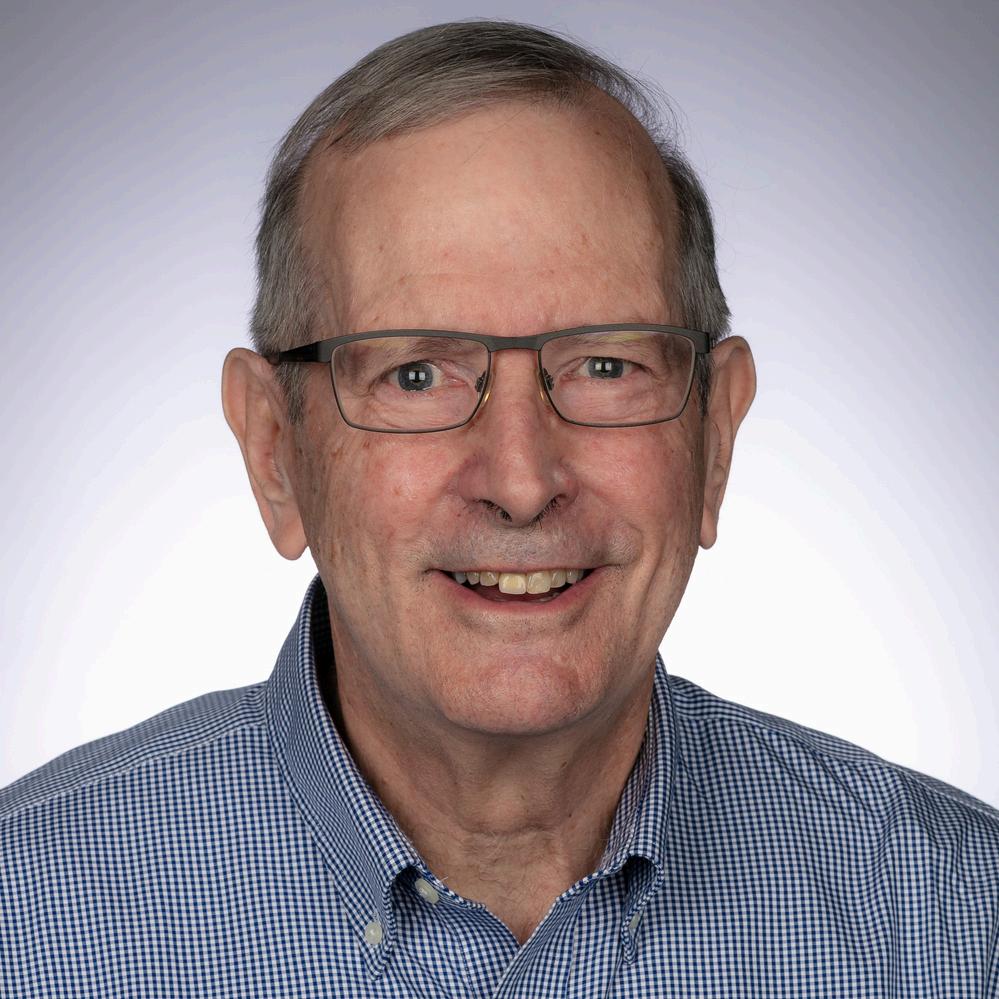
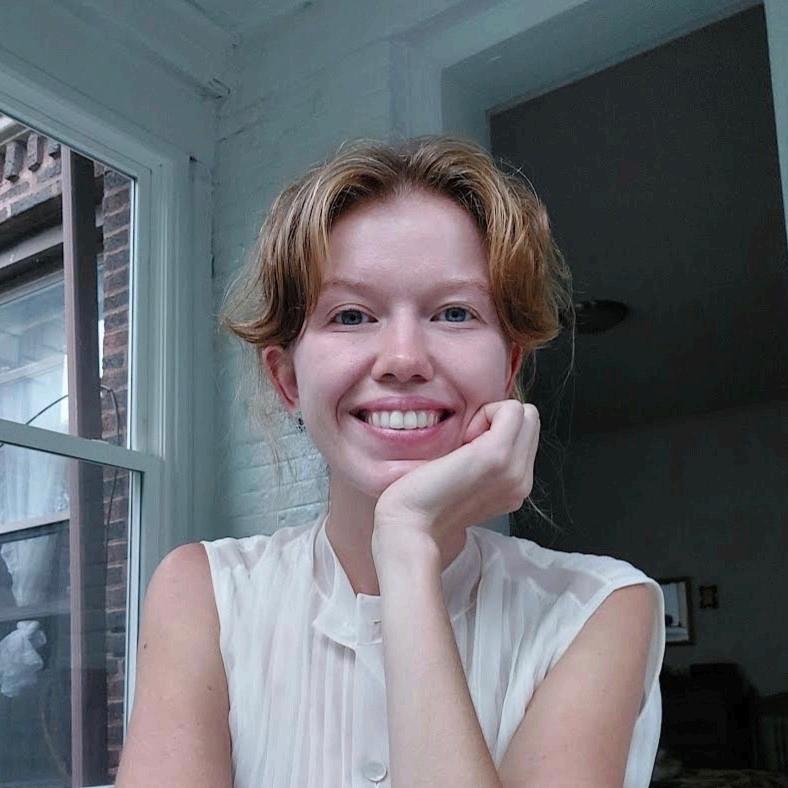
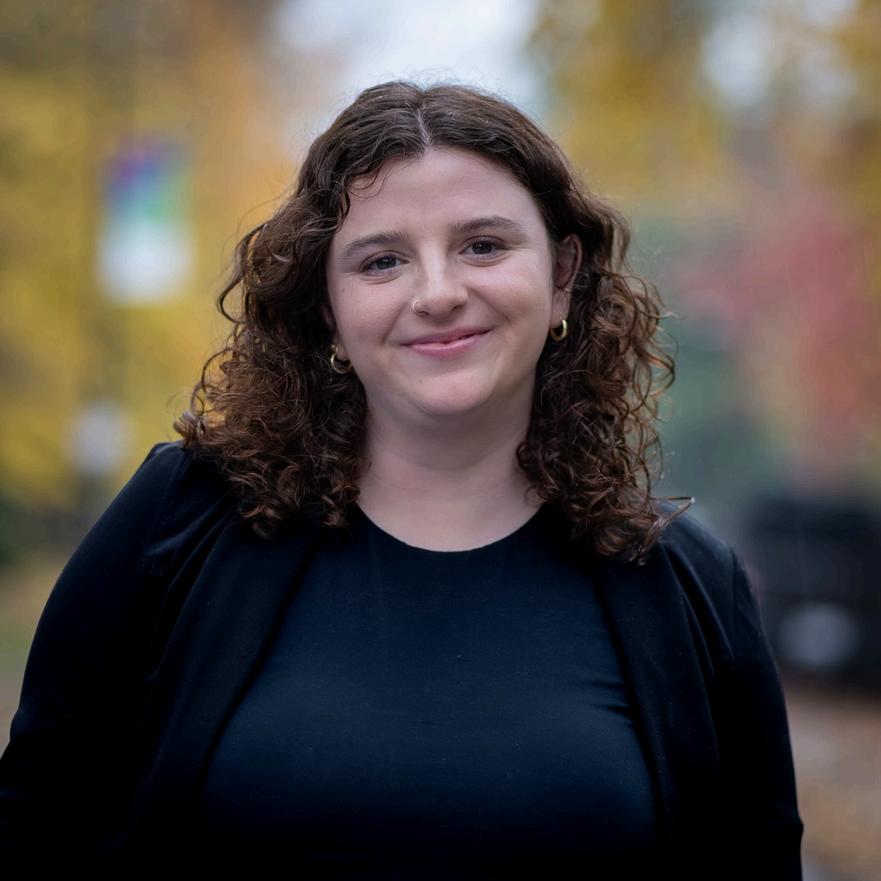
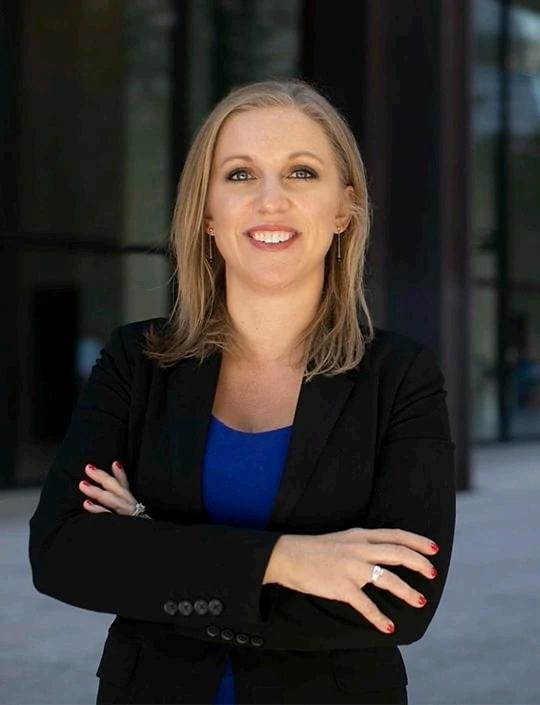
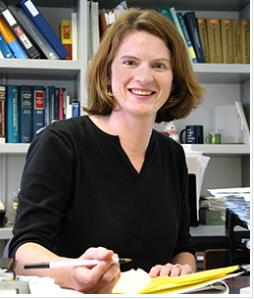
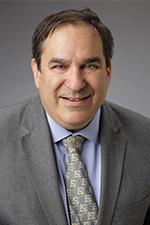
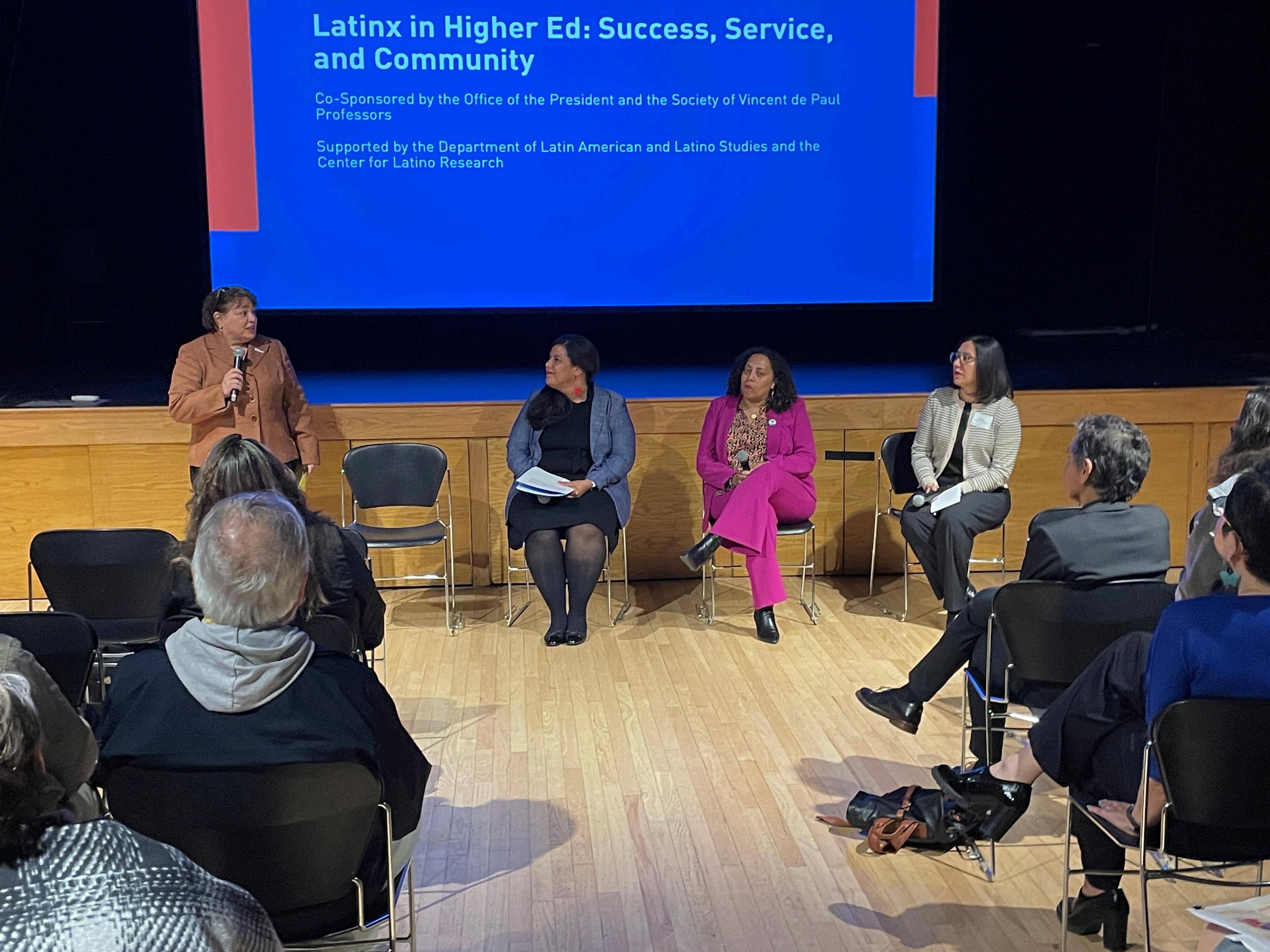
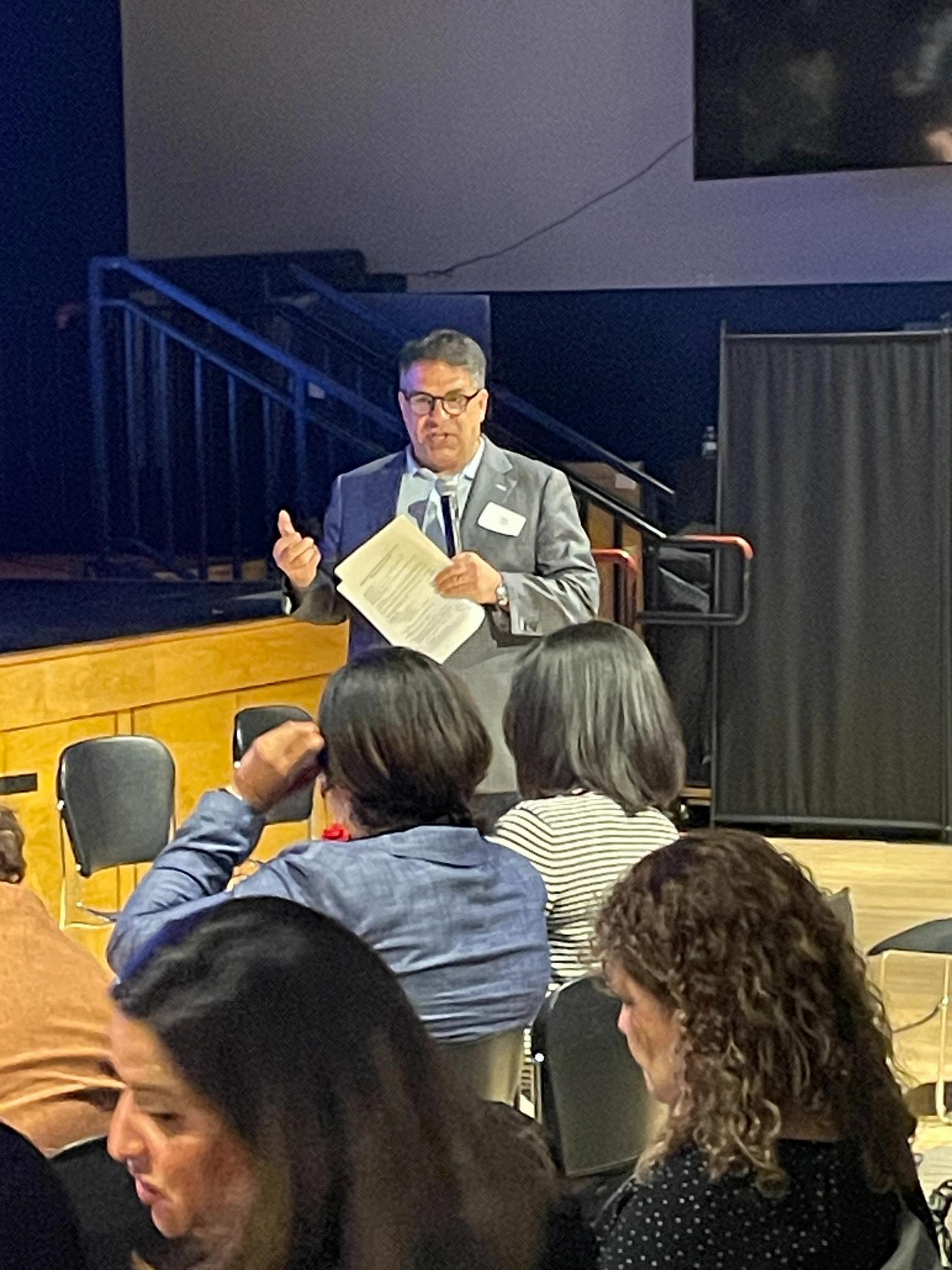
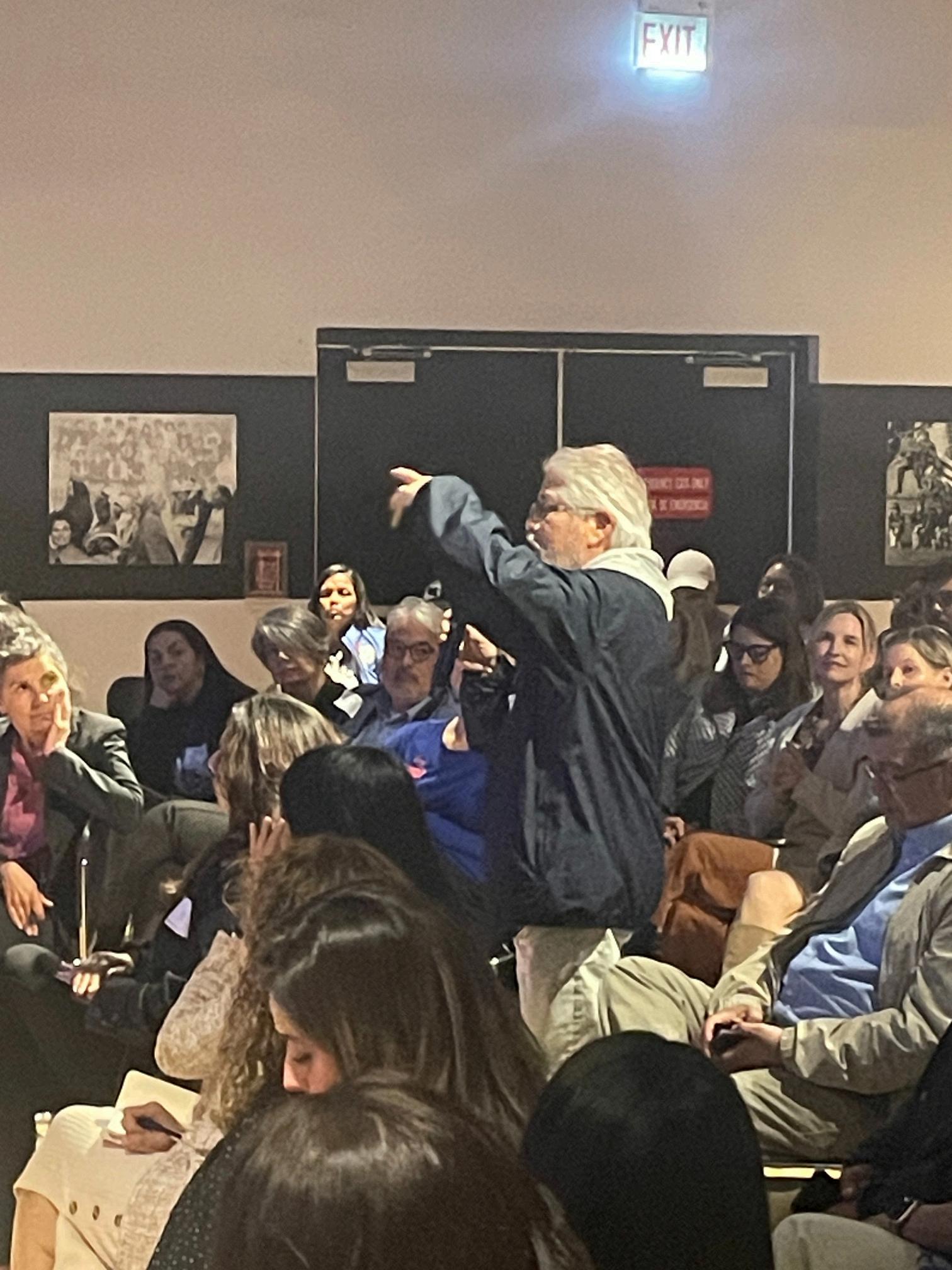
Together with the President’s Office and the Society of Vincent DePaul Professors, LALS and CLR cosponsored the program “Latinxs in Higher Ed: Cultivating Success, Service and Community” on Tuesday, May 27, 2025, at the National Museum of Mexican Art, Chicago. At a time when federal support for higher education is under threat, this President’s salon served as a call to action.
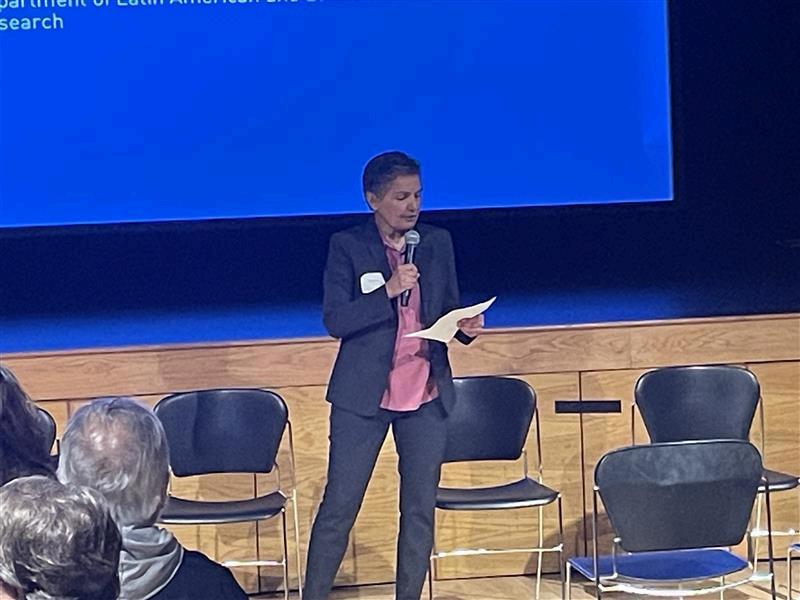
Following a reception where over 80 participants shared great food and conversation, President Rob Manuel welcomed the audience and spoke of the importance of the gathering. Deborah Santiago, CEO and co-founder of Excelencia in Education, a leading voice in Latinx higher education, provided an overview of the changing national landscape and current policies and challenges shaping Latinx student access to higher education today. DePaul alumni Marisol Morales and Nancy Villafranca Guzmán shared their experiences as student leaders, reflected on DePaul’s impact in their careers, and explored innovative ways the university can strengthen its role in community. Dania Matos, VP for Diversity, Inclusion and Belonging announced “Latinos Thriving at DePaul” initiatives in the works for the upcoming year. Following the panel discussion their audience shared their reflections and ideas for upholding our commitment to Latinx student success and forging deeper partnerships with the communities we serve. This conversation will continue!
Interview conducted by Goutam Kumar
Dr Ionit Behar is the Curator at the DePaul Art Museum and worked to bring the current exhibition of the work of photographer Christina Fernández to DePaul Here she shares with us her vision for curatorial work and what brought her to DePaul
I'm the curator at the DePaul Art Museum, and I will have been here for five years this August. I have been working as an institutional curator for over a decade, but I love and continue to work on independent projects I have gotten different degrees in art history, with my undergraduate studies focusing on film studies and art history from Tel Aviv University, my MA in Art History from the School of the Art Institute at Chicago, and my PhD from the University of Illinois at Chicago also in art history.
I have been interested in curatorial work since high school --- I loved museums and was very lucky to go to museums in different parts of the world. Starting from when I was six years old, I would travel with my grandparents, who were academics, and they would treat me like an adult. They asked me questions and respected my opinions. I especially loved how I felt inside a museum, being surrounded by works from different artists, time periods, and places I was fascinated by how they lived together, and of course, I also admired the architecture of the museums
Walk me through the process of being a curator, from the initial concept to the final installation of an exhibition.
There are many different approaches to curating, and for me, it’s very much an artistic practice in its own right People often ask if I consider myself an artist, and I usually hesitate because no, I don’t create physical objects but I do create exhibitions And that, to me, is a kind of making Curating is a thoughtful blend of conceptual, historical, and philosophical research, but it’s also deeply intuitive and emotional. There’s a balance between the external the scholarship, the cultural context, the institutional framework and the internal, personal, and subjective decisions that ultimately shape an exhibition. My perspective, my emotions, and even my body are part of that process.
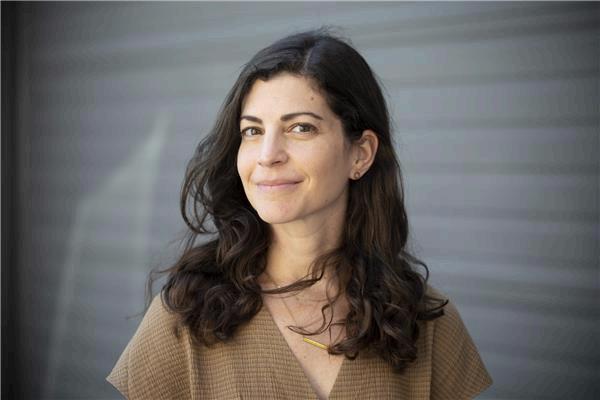
The steps involved in curating vary depending on the project. For example, when organizing a solo exhibition, the process often begins well before an artist is even selected. I spend a lot of time doing fieldwork—visiting studios, engaging with artists, seeing what’s being made, what conversations are happening, and what exhibitions are resonating. I think of it like training your eye and your sensibility. Just like a writer needs to read widely, a curator needs to see a lot, to remain open and engaged. I take that seriously and do studio visits regularly— almost every week. Choosing an artist is never easy. There are so many incredible artists whose work deserves to be seen. At the DePaul Art Museum (DPAM), that decision-making process is grounded in our mission and context. We think about how each artist contributes to a broader conversation, and how a diversity of voices can come together to reflect the values we hold. It’s not just about individual brilliance—though that’s important—it’s also about creating a dialogue that feels meaningful, inclusive, and rooted in place. Curating is inherently project-based, which is why there’s always a timeline.
An exhibition has a clear beginning and end, and everything must be ready by the opening date. Ideally, there’s ample time to fully develop the project, allowing for a more cohesive and wellresolved exhibition. Still, I like to think of an exhibition as a kind of test—a research experiment. It’srarelyeverfullyresolved.
How has your academic and professional journeyshapedyourcuratorialapproach?
I’ve been involved in curating exhibitions throughout my academic career, so rather than one shaping the other, they’ve influenced each other mutually. Spending many years as a student in an academic environment has deeply informed my approach to curating. The critical thinking skills I developed during that time remain invaluable, and I continually drawontheminmywork.
Curating at a university museum differs from working in other types of institutions. Here, we often present artworks and artists that raise challenging, sometimes philosophical questions. Thanks to my academic background, I feel well-prepared to engage with these complex ideas and to communicate them clearly. As curators, we serve as mediators—we’re responsible for translating these concepts to a diverse audience. At DPAM, our visitors include not only students and faculty but also a broader public interested in art and museums. This mix means we have to make our exhibitions accessible and engaging for people with varying levels of familiarity with academicdiscourse.
I'm very interested to know what brought you to the DePaul Art Museum, and what excites youthemostaboutworkinginthisspace.
I've always had an appreciation for this museum. When I moved to Chicago for my Master's at the School of the Art Institute, I visited the DePaul Art Museum and was immediately drawn to it. The exhibitions felt fresh, different, and intellectually engaging—they were showcasing emerging artists in ways that felt bold and relevant. I genuinely enjoyed spending time here. And something that’s always stood out to me is that artists themselves appreciate this museum, which might seem like an obvious point, but it matters. When artists love a museum, it speaksvolumesaboutthekindofspaceitis.
I joined the museum five years ago through the Latinx Initiative, which had been in development since around 2018 and became more formalized in 2020. My background and research focus on Latin America and art history aligned closely with that effort. My first project here was co-curating the LatinxAmericanexhibition.
Your curatorial work often highlights themes of memory, identity, and also social history. What inspires you to focus on these topics?
I believe these themes are fundamental to the human experience. They affect all of us in one way or another. For me, it’s important to find ways to foster connection—even across different histories of migration, lived experiences, and identities. I think it's possible to highlight those differences while also uncovering points of common ground. That thread runs through many of the exhibitions I’ve worked on, it’s a line of inquiry focused on connection. It’s a way of exploring not only the world but also understanding myself—where I come from— throughtheperspectivesofdifferentartists.
What drew you to Christina Fernandez’s work, and how did you approach curating this exhibition at DPAM to best highlight her themes of migration, labor, and identity?
The exhibition is a traveling show that began at UC Riverside, curated by Joanna Szupinska. When Joanna shared what she was organizing, with the hope that it would travel, I was immediately drawn to it. When Joanna shared what she was organizing, with the hope that it would travel, I was immediately drawn to it. There were several reasons why. First and foremost, it was the first museum retrospective of Christina Fernandez, which resonated with DPAM’s mission. We’ve often provided artists with their first major platform—as we did with Selva Aparicio and many others whose careers took off after exhibiting here. That kind of opportunity is core to what we do. Christina’s work also brings the Mexican American experience to the forefront, and it felt important to show her perspective—rooted in the West Coast—here in Chicago,toexploreboththedifferencesandthe
shared threads. While her work is deeply tied to the Mexican American experience, it also speaks to broader themes of migration. I love how she approaches that her photography isn’t documentary or journalistic, but it’s still deeply political. There’s a poetic quality in the way she explores these themes that stay with you.
What are the challenges that have arisen from curating exhibitions like LatinXAmerica that reflect this multifaceted cultural identity? How do Latinx artists in Chicago and the Midwest influence these discussions over identity and cultural heritage?
It was what we call a survey exhibition, so it was broad, and it was important at that time to have an exhibition that included almost 40 artists, many of whom were represented in our museum ’ s collection. We did that on purpose to show that we've been expanding LatinX representation in our collection But the show had its difficulties because it meant that we were categorizing these artists as LatinX artists, and not all of them would necessarily talk that way about themselves They might say yes, I'm a Latinx artist, but I'm also other things: I'm a woman, or I'm a black Latino. It's a different experience being AfroLatino than being a white Latino. So we tried to bring in all these distinctions, either in the texts that we placed with the artworks or in the public programs we did. We did many public programs that were so informative at a time when we were all at home during the early days of the pandemic. A lot of the things we did were virtual, we were able to connect with people from many different parts of the world.
Latinx artists in Chicago and in the Midwest more broadly are shaping national conversations about identity, place, and cultural heritage, even if they haven’t always been centered in those discussions Their work often reflects a deep engagement with themes of migration, memory, labor, race, and belonging, but through a distinctly regional lens. That regionality matters. It challenges the dominant narratives that tend to come out of coastal art scenes and expands our understanding of what Latinx identity can look like across different geographies. Chicago, in particular, has a rich and layered Latinx history, and the artists here are rooted in that complexity. Many are doing remarkable work, gaining recognition nationally and internationally
but not nearly enough. The Midwest remains underrepresented in critical discourse, and that’s where curators and institutions have a real responsibility.
I see my role as helping to bridge those gaps. Yes, we brought in Christina Fernandez’s exhibition from LA, but we’re also using that opportunity to connect it directly to local voices. For example, we’re organizing a panel this May featuring four Latinx photographers based in Chicago. They’ll be in conversation with Fernandez’s work, but also speaking to their practices and experiences. It’s about creating dialogue—across regions, generations, and perspectives—and making sure that artists here aren’t just part of the conversation, but helping lead it.
What advice would you offer to students and community members looking to enter the art world, especially those interested in curating orworkingwithLatinxartandcommunities? in curating—especially within the Latinx context—I would say: start wherever you are, and don’t wait for the “perfect” opportunity. Some of my most formative experiences as a curator happened while I was still a student, working alongside other student artists who were my peers. There’s so much value in collaborating with the people around you, rather than only looking up to those further along in their careers. Pay attention to your community—your classmates, your friends, your local networks— because those relationships can grow into some of your most meaningful and impactful projects. One of my favorite memories is of the very first exhibition I curated here in Chicago, which I co-organized with a friend who was also an art student at the time. That experience shaped so much of how I think about curatingtoday.
Another key piece of advice is to seek out mentors. That’s something that has been and continues to be, incredibly important in my journey. Don’t be afraid to reach out to a professor, a curator, or anyone whose work you admire. Ask them to grab a coffee. So much can come from a simple conversation— guidance, support, and maybe even collaboration. Curating is not just about organizing exhibitions; it’s about building relationships, and that starts with the peoplearoundyou.
On February 20th, we gathered to watch Separated (2024), a documentary by Errol Morris that explores the devastating U S family separation policy during Donald Trump’s first administration. The film features interviews, news footage, and emails, while also recreating a migrant family’s experience at the border to exhibit the emotional damage inflicted on people.
Film screening & discussion
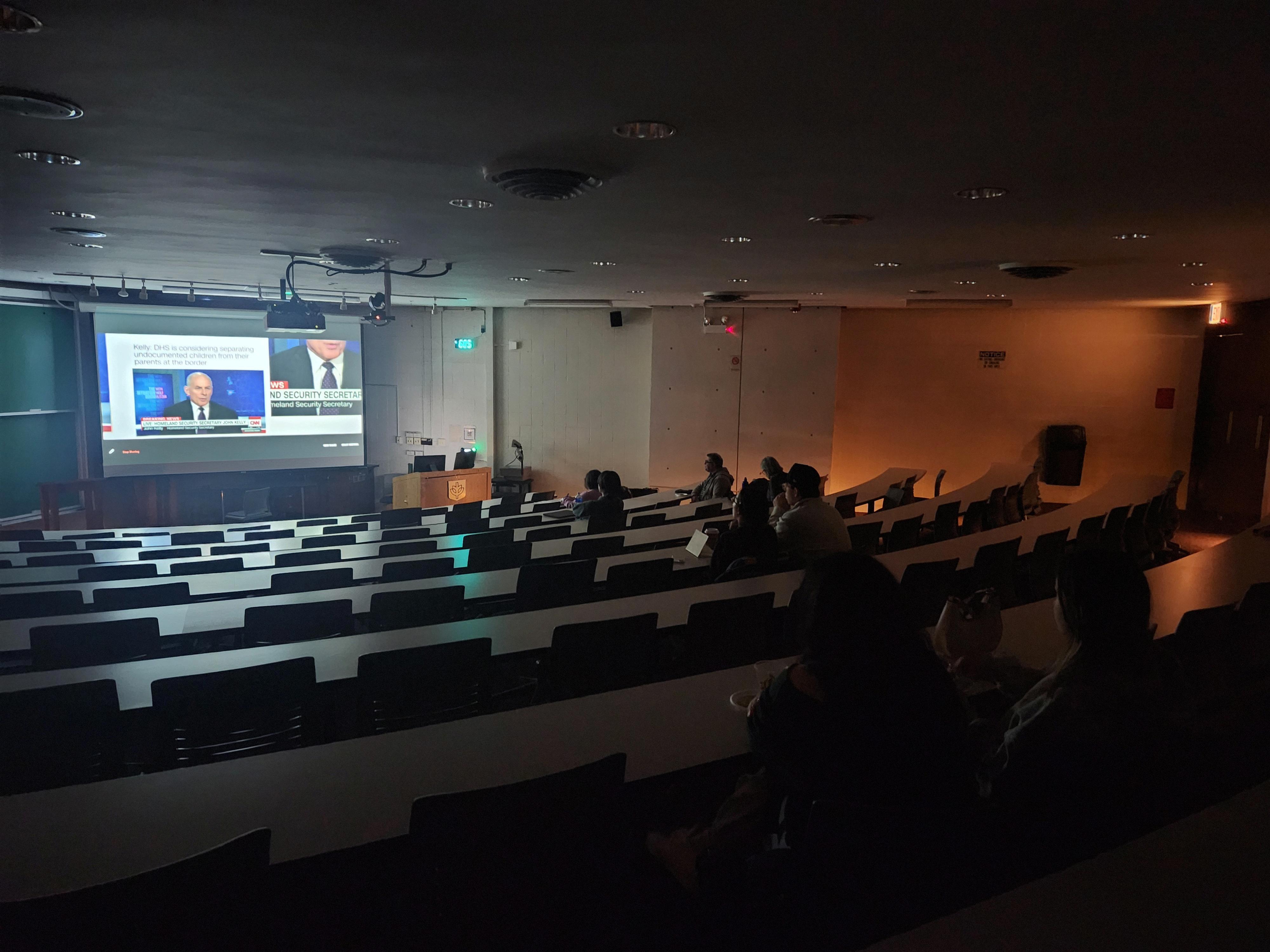

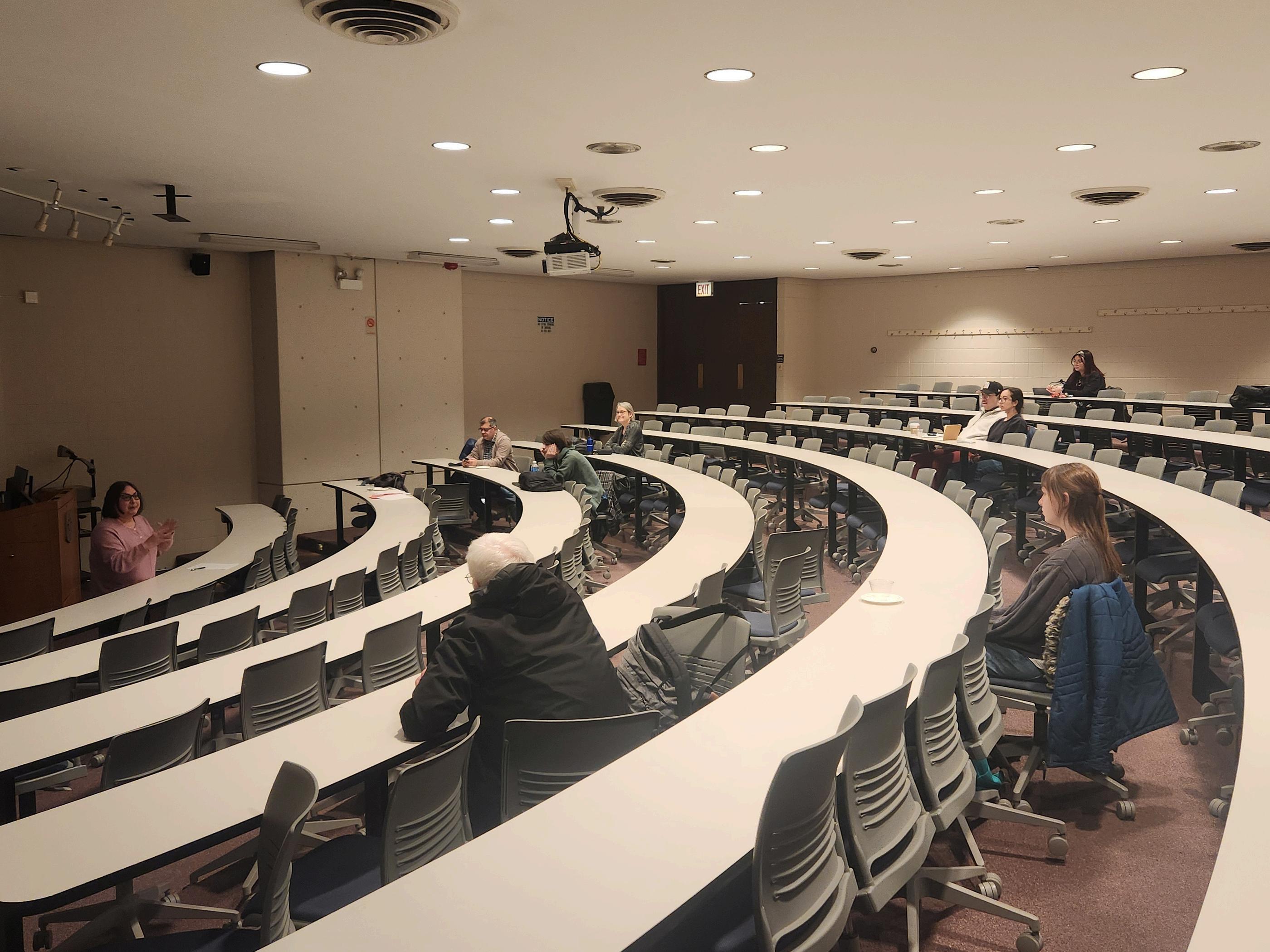
Thank you for a memorable night!
After the film screening, Dr. Susana Martínez (Peace, Justice & Conflict Studies) guided a reflective discussion around the trauma related to family separation for both parents and children, the challenges of migration, and the lack of state accountability.
In addition, Dr. Martínez shared about the importance of considering the sociopolitical contexts behind migration, including the impact of US interventions in Central America.
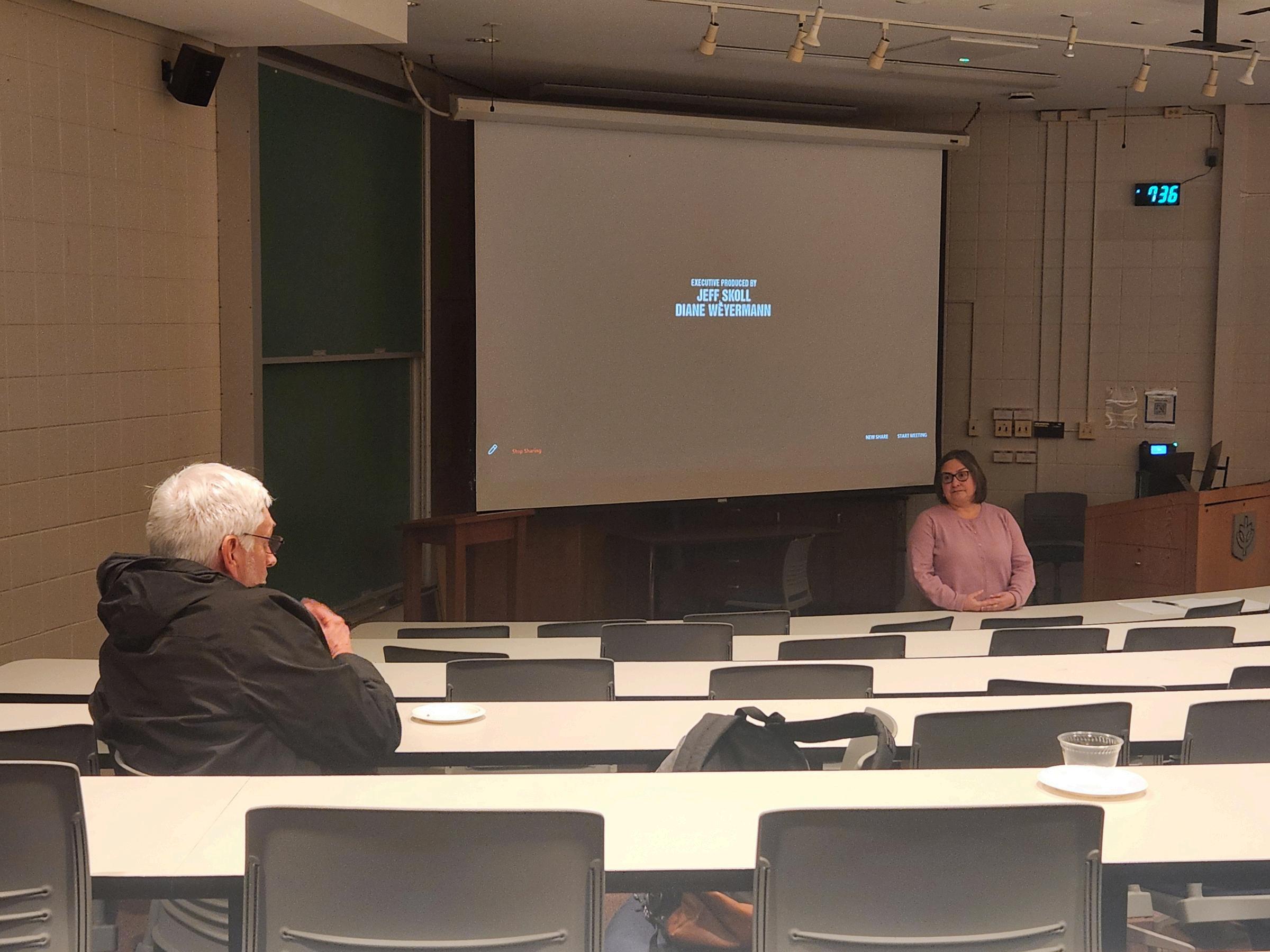

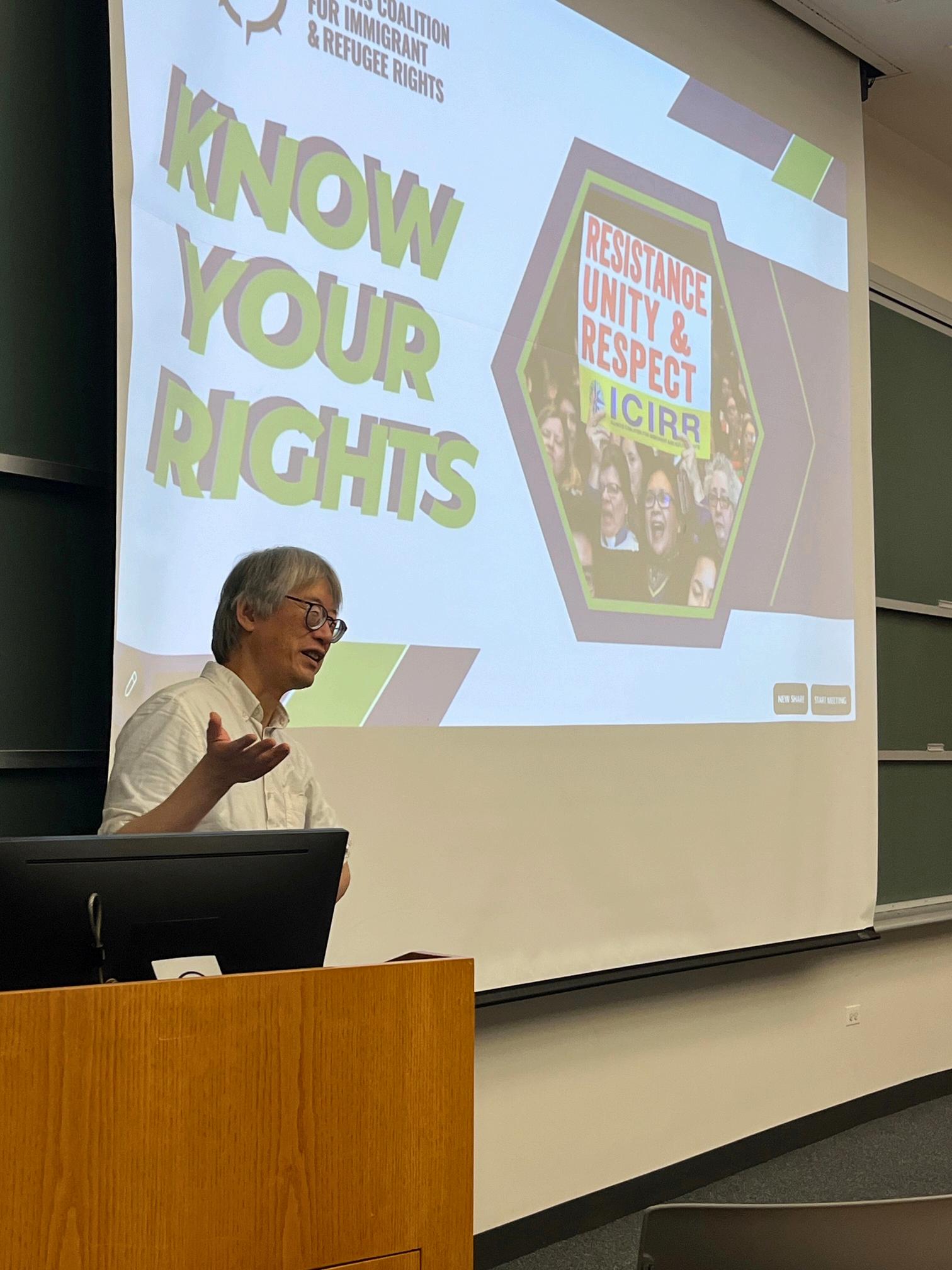
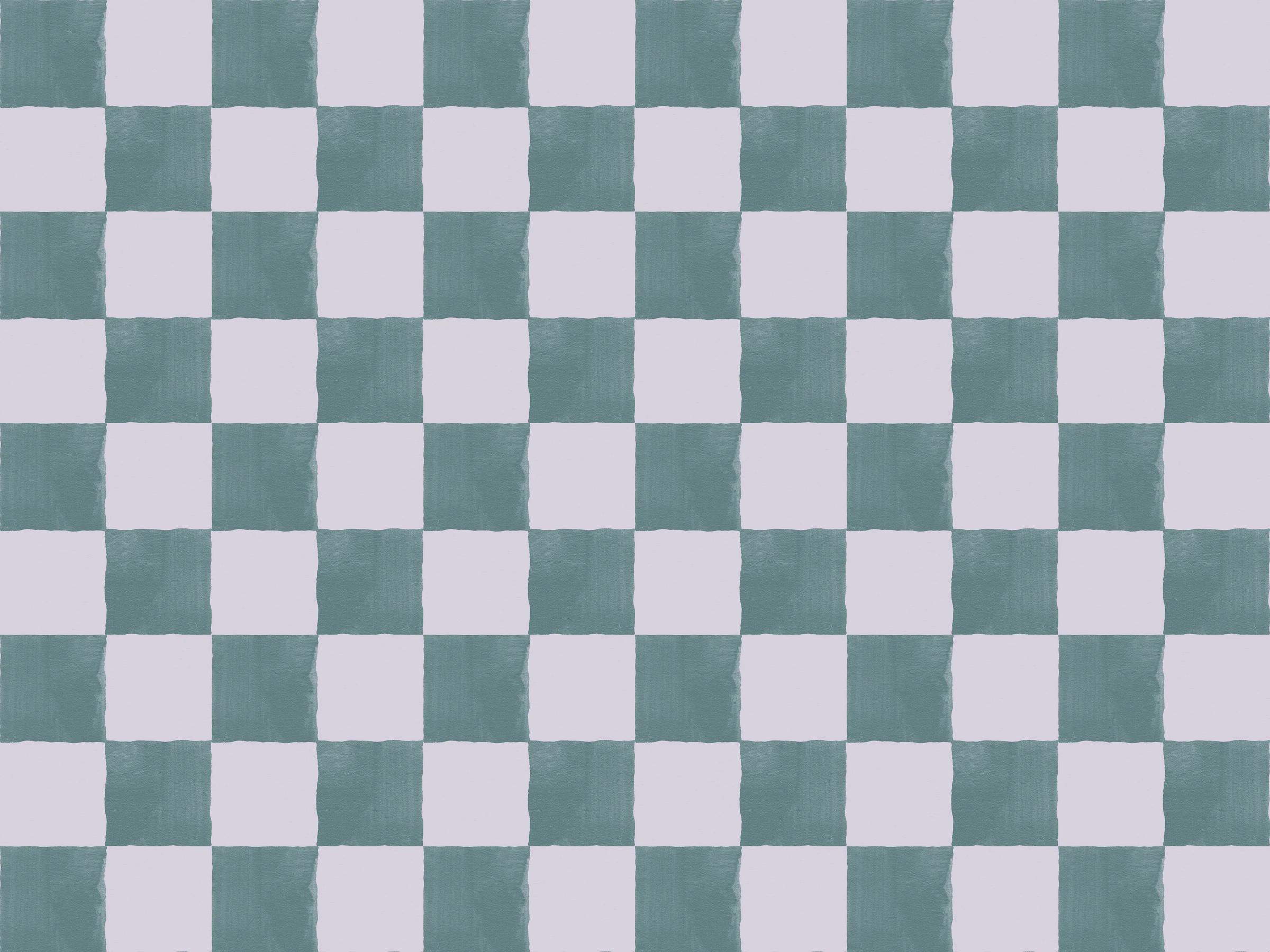
On February 13th, we welcomed Fred Tsao, Senior Policy Counsel at the Illinois Coalition for Immigrant and Refugee Rights (ICIRR), to DePaul University for a Know Your Rights training and an insightful discussion on immigrant rights in the current sociopolitical context.
Faculty, staff, and students came together to learn about the current laws and guidelines in Illinois and the city of Chicago, and ways to protect ourselves, our peers, and neighbors. This was a very important training, given the recent threats to the undocumented community in the city.
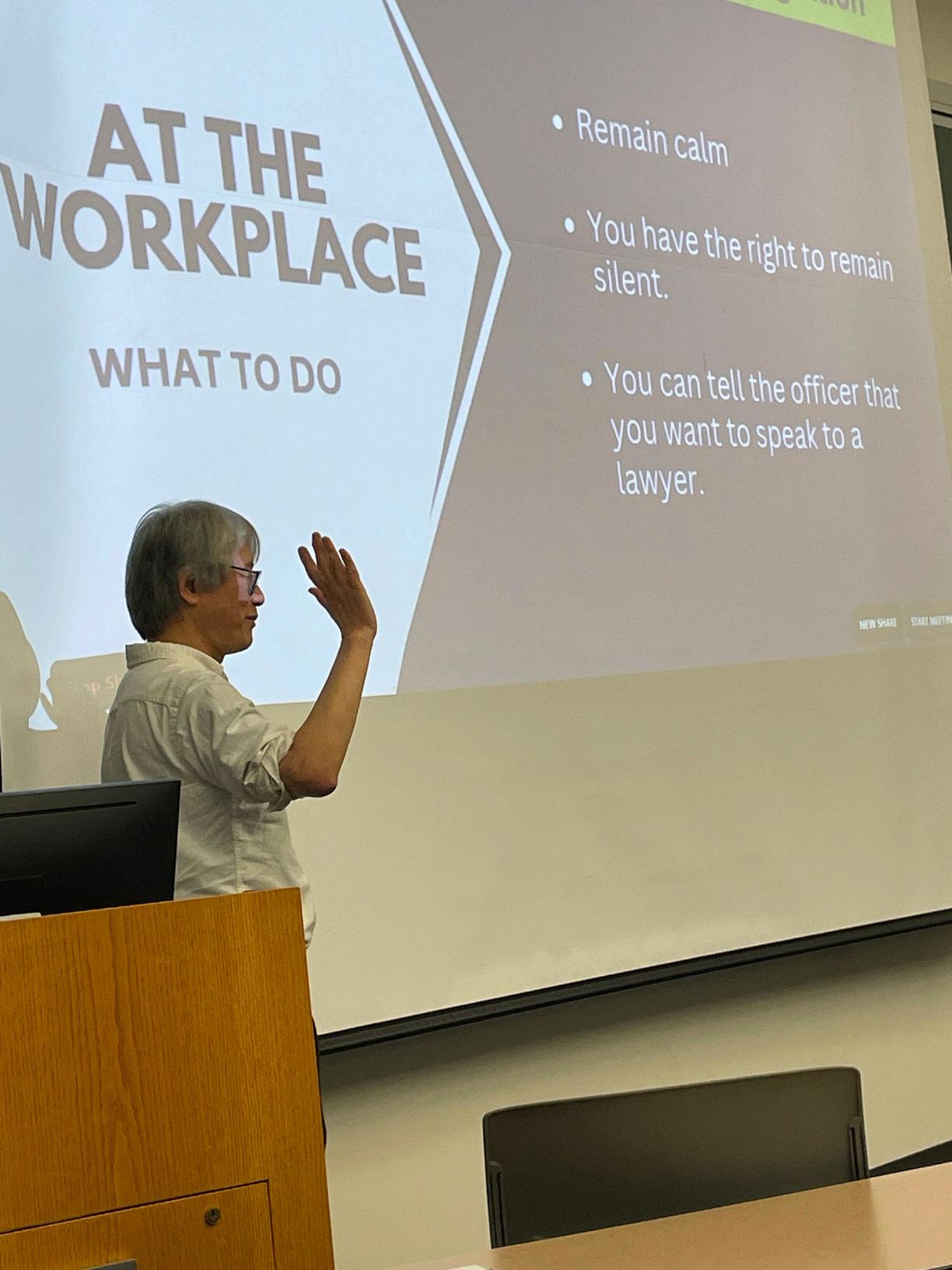
THANK YOU FOR BEING PART OF THIS THANK YOU FOR BEING PART OF THIS IMPORTANT CONVERSATION! IMPORTANT CONVERSATION!
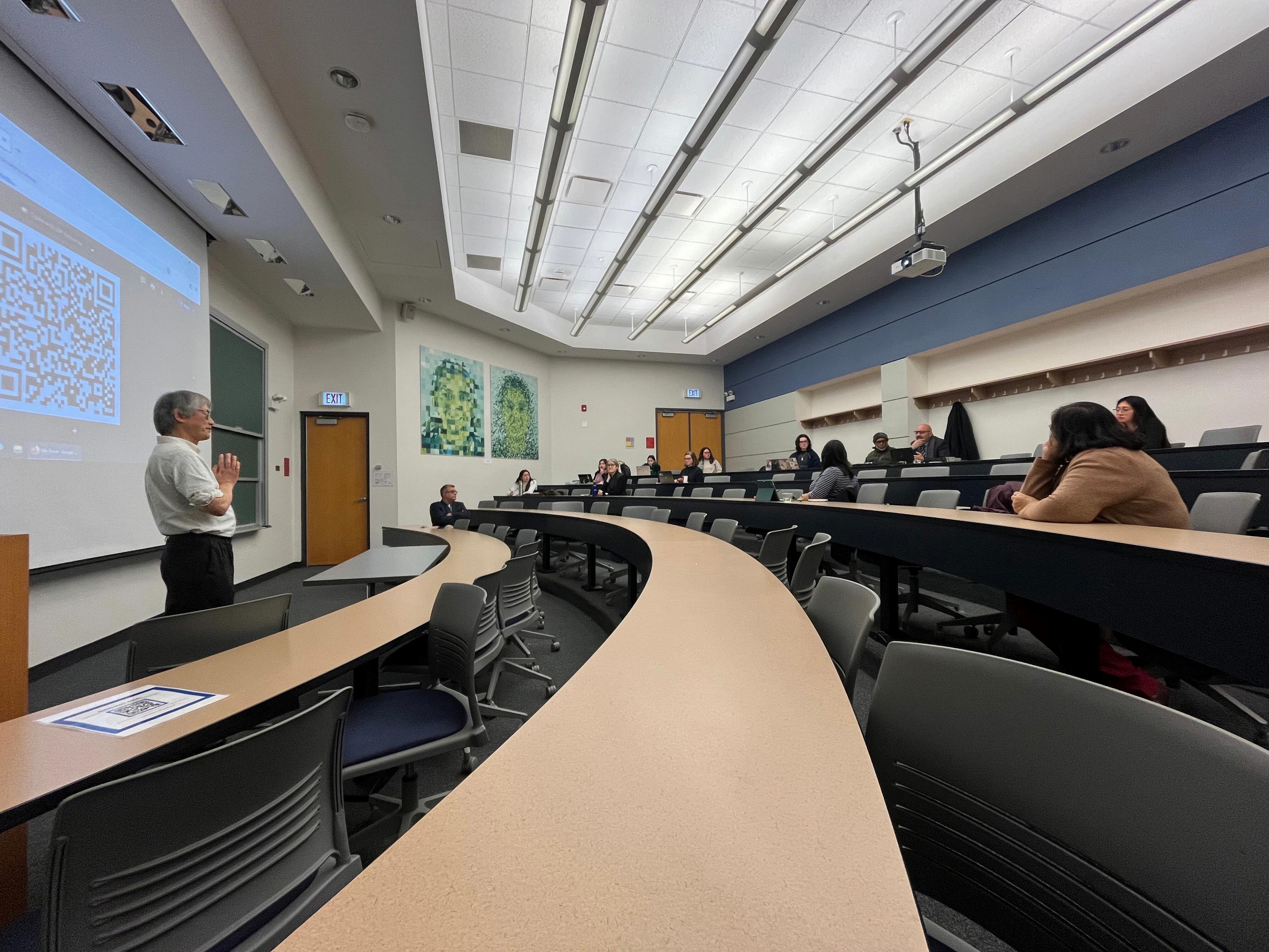
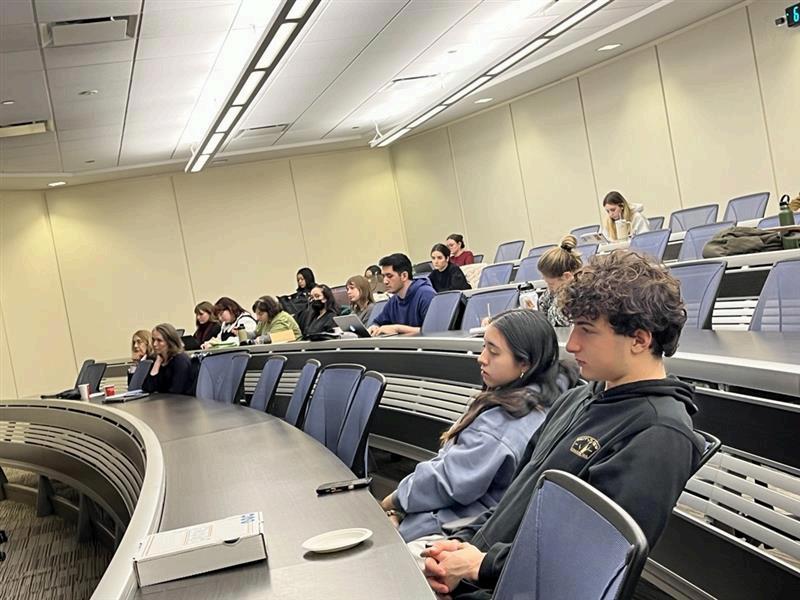
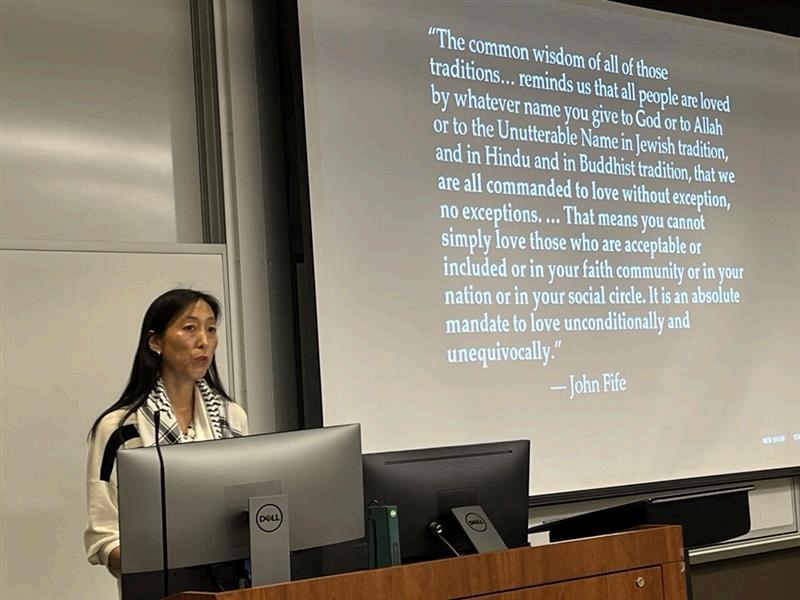
On February 26th, Dr. Naomi Paik, Associate Professor of Criminology, Law and Justice and Global Asian Studies at the University of Illinois, Chicago visited DePaul to give a lecture entitled, “Sanctuary for None: Border Violence Against Migrants and Nature in the Sonoran Desert.” In her presentation, Dr. Paik explored the ironic and
contradictory ways in which government forces have deployed environmental protection laws against undocumented migrants and the activists who seek to protect them from harm. Dr. Paik shared the story of how a group of activists was brought up on charges of “polluting the environment” because they had left water bottles out for thirsty migrants crossing desert areas. Dr. Paik also highlighted how the installation of physical barriers and other technology along the border – such as the border wall or stadium lights – actually contributes to disrupting ecosystems and the natural migration patterns of animals. In the Q&A period following her talk, Dr. Paik answered a range of questions about human rights, environmental regulations, and immigration activism.
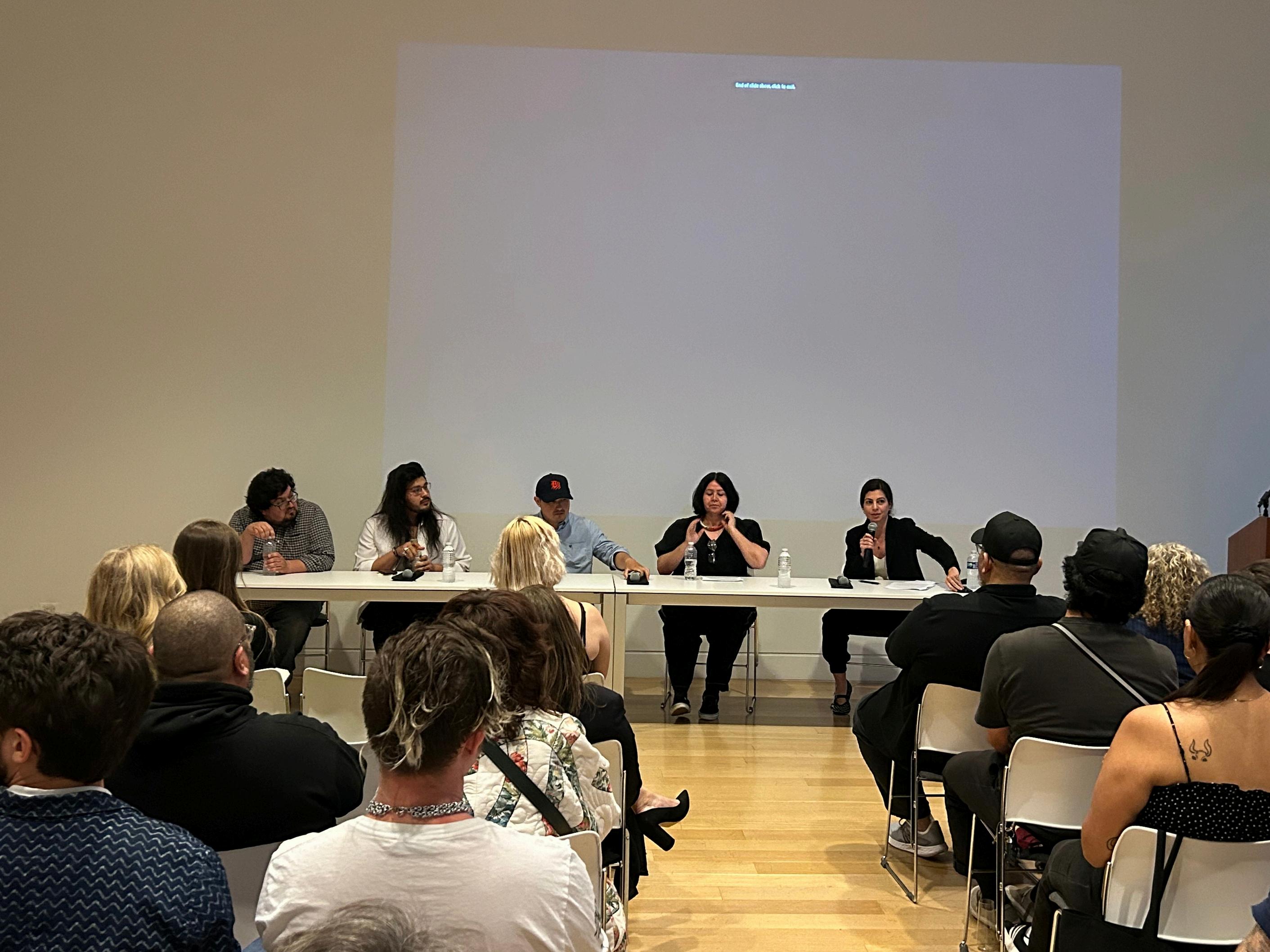
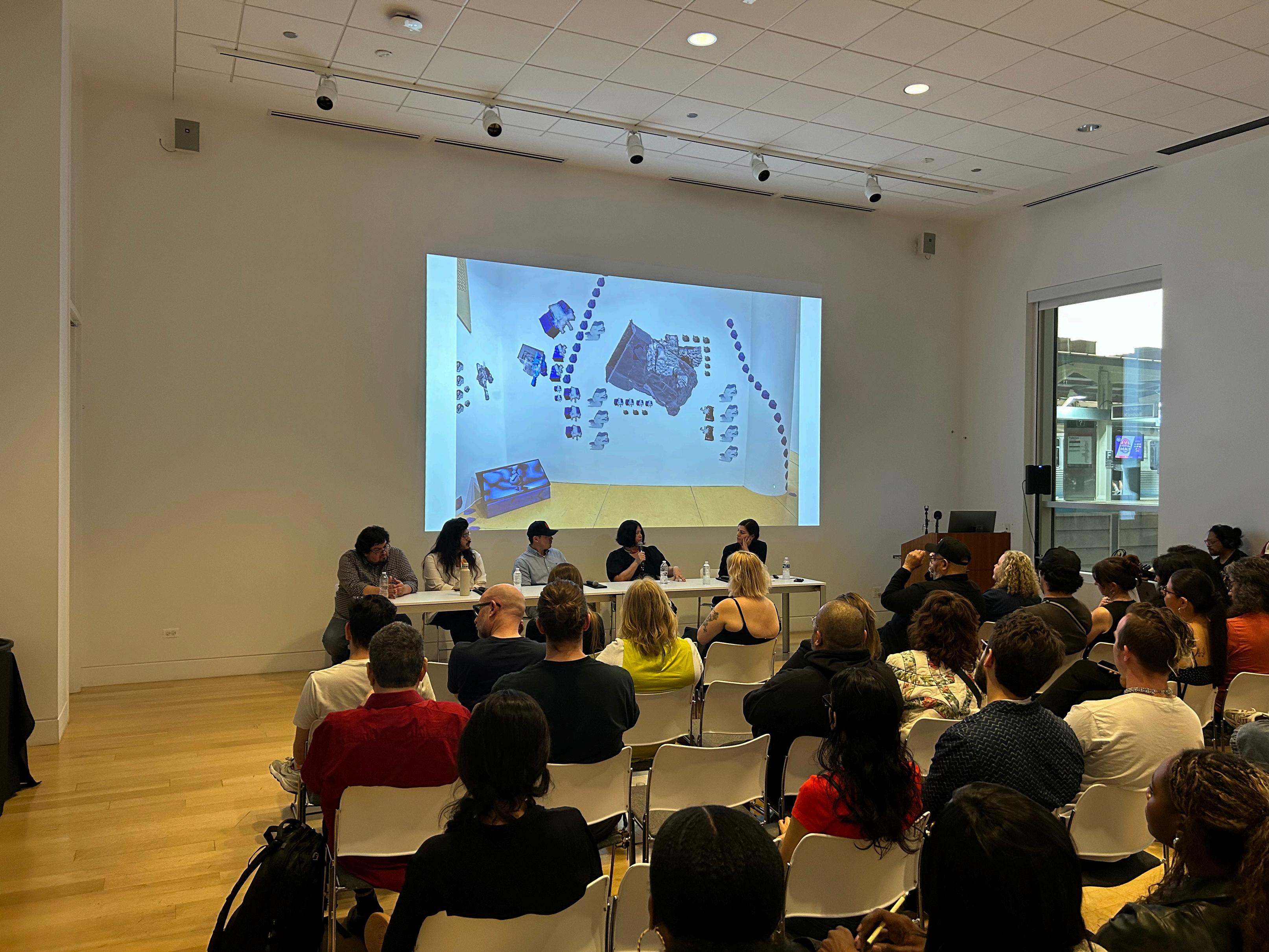
On Thursday, May 15, 2025
The Center for Latino Research, in collaboration with the DePaul Art Museum, welcomed Latinx Chicago-based photographers Jonathan Michael Castillo, Teresita Carson, Juan Molina Hernandez, and Jonathan Vega. They were able to have the space to talk about their work, as it revolves around themes of immigration, displacement, belonging, grief, memory, and lineage. Their Panel conversation, moderated by DPAM Curator Ionit Behar, Opened a discussion on the different intricacies of their work and how it ties into the cultural fabric of our community. Thank you to DPAM, the fellow artists, and everyone involved In making this collaboration possible.

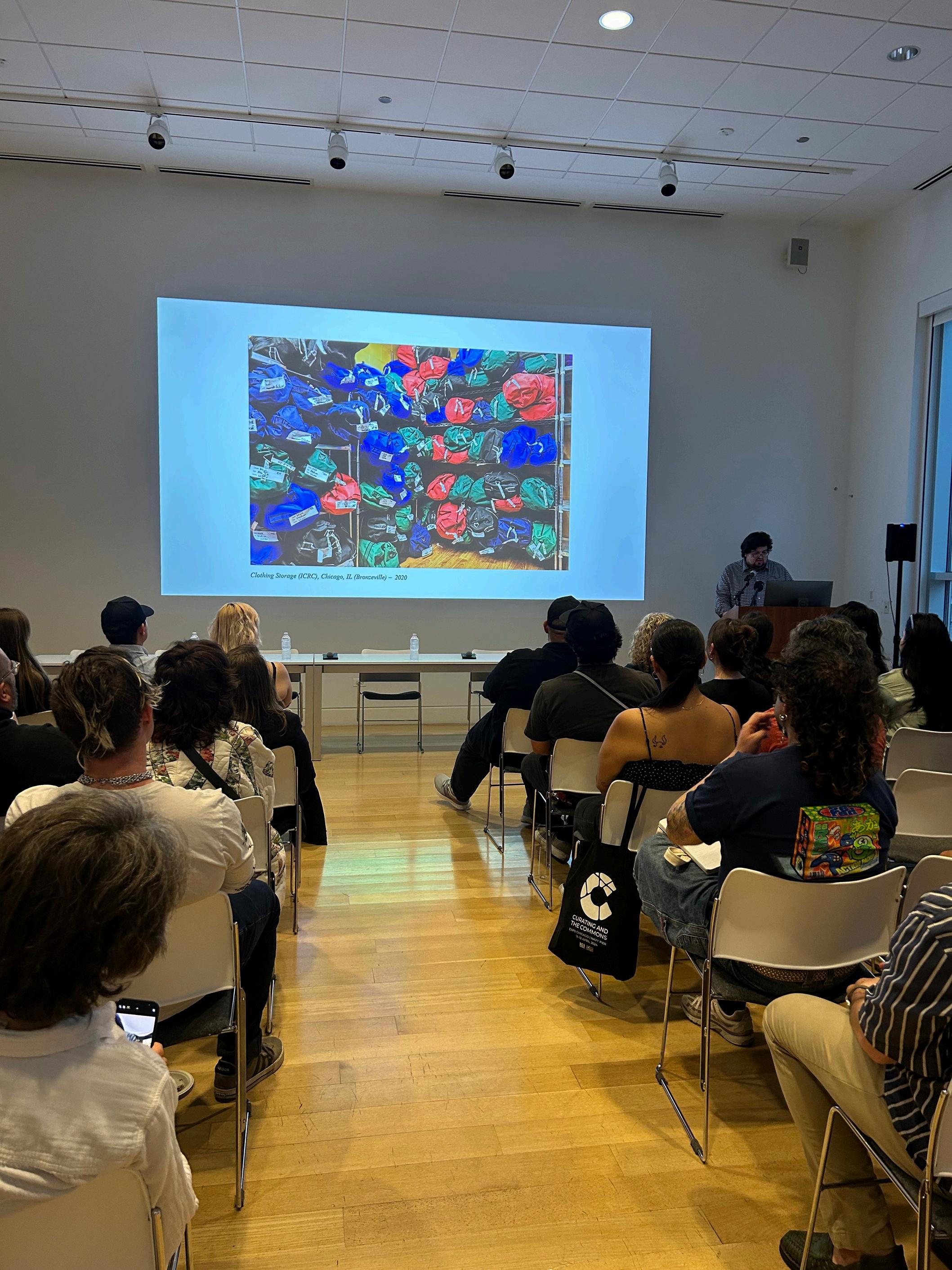

ThisinterdisciplinarydepartmentexploresthebroaddynamicsshapingLatin American&Latinxexperiencesanddrawscoursesandinsightsfrommultiple fields.TheDepartmentofLatinAmerican&LatinoStudiesalsoservestodeepen Latinxstudents’awarenessoftheirculturalheritage
LST121:LatinAmericato1765:LifeBeforeandAfterColumbus
LST201:StruggleandResistanceinLatinAmerica
LST206:Mexico:FromtheOlmecstoIndependence
LST245/HAA245:ArtoftheAndes
LST300/WGS345/445:Women,War,andResistance
LST306/LSP306/SPN393/HON302/AMS397-101:Humanities X:FromFMWavestoActivism:StorytellingofLatinoVoices throughCommunityRadio
LST307:GrowingUpLatino/aintheUS
LST310/CES401:IntrotoCriticalEthnicStudies
LST310/CES402:MobilityandtheState
LST310/PAX384:ActivismandAdvocacy
PSC212:LatinoPolitics


T/TH:1:00-2:30PM
M/W:1:00-2:30PM T/TH9:40-11:10AM
M/W2:40-4:10PM
M/W:2:40-4:10PM
T/TH2:40-4:10PM
M:6-9:15PM
T:6-9:15PM
M/W:9:40-11:10AM T/TH:11:20AM-12:50PM












FThe CLR and LALS team thank you for all of your hard work and creativity. We wish you the best of luck and cannot wait to follow all of your accomplishments!
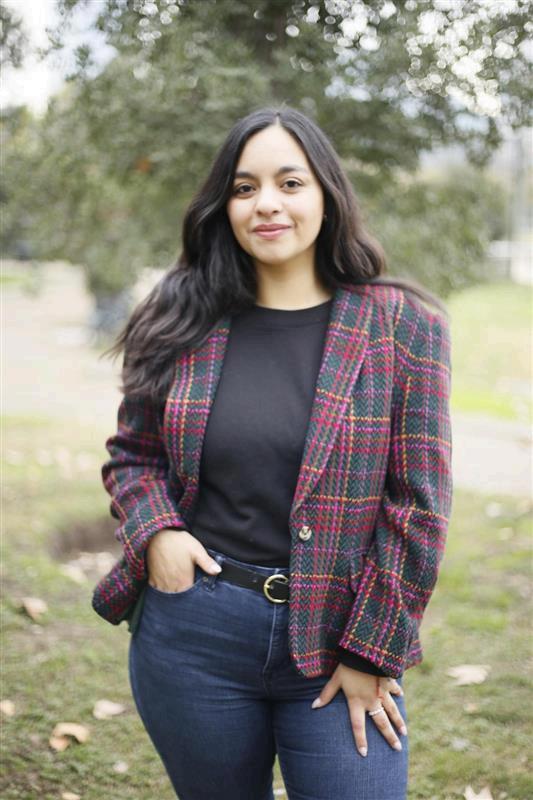

“Though I am moving on to new challenges, I know I will never forget my time with the CLR and LALS departments. Earning my master’s degree while working here was an incredible experience, and I was fortunate to connect with people who guided and enriched my journey. It has been an absolute pleasure to learn from the amazing, thoughtful, and committed individuals who work every day to support Latinx communities. This space truly became a home away from Chile during my time at DePaul. ¡Muchísimas gracias! I am eager to apply what I have learned to help build a more equitable and compassionate world.”
- Yamitza Yuivar Villarreal
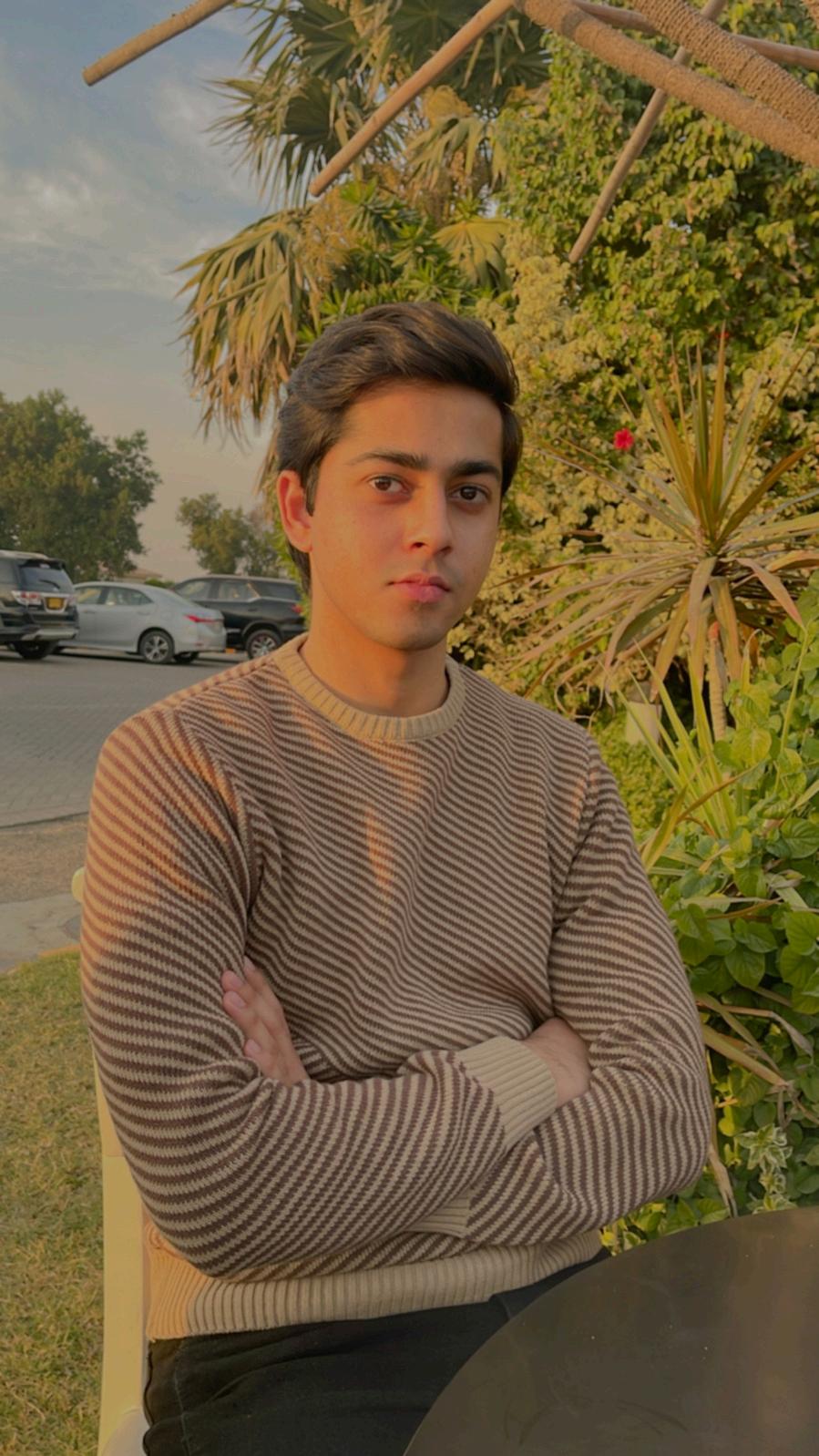
Goutam Kumar Michelle Cisneros He/Him/El She/Her/Ella
t
“Iloveexploringnewcafés,designin visuals,andcatchinguponmy favoritepodcasts. I’mexcitedtojoin theLALS&CLRTeambecauseoftheir dedicationtoamplifying underrepresentedvoicesandfostering inclusivestorytelling.Contributingto projectsthatsupportLatinxstudents andcommunitiesincreativeand thoughtfulwaystrulyinspiresme”
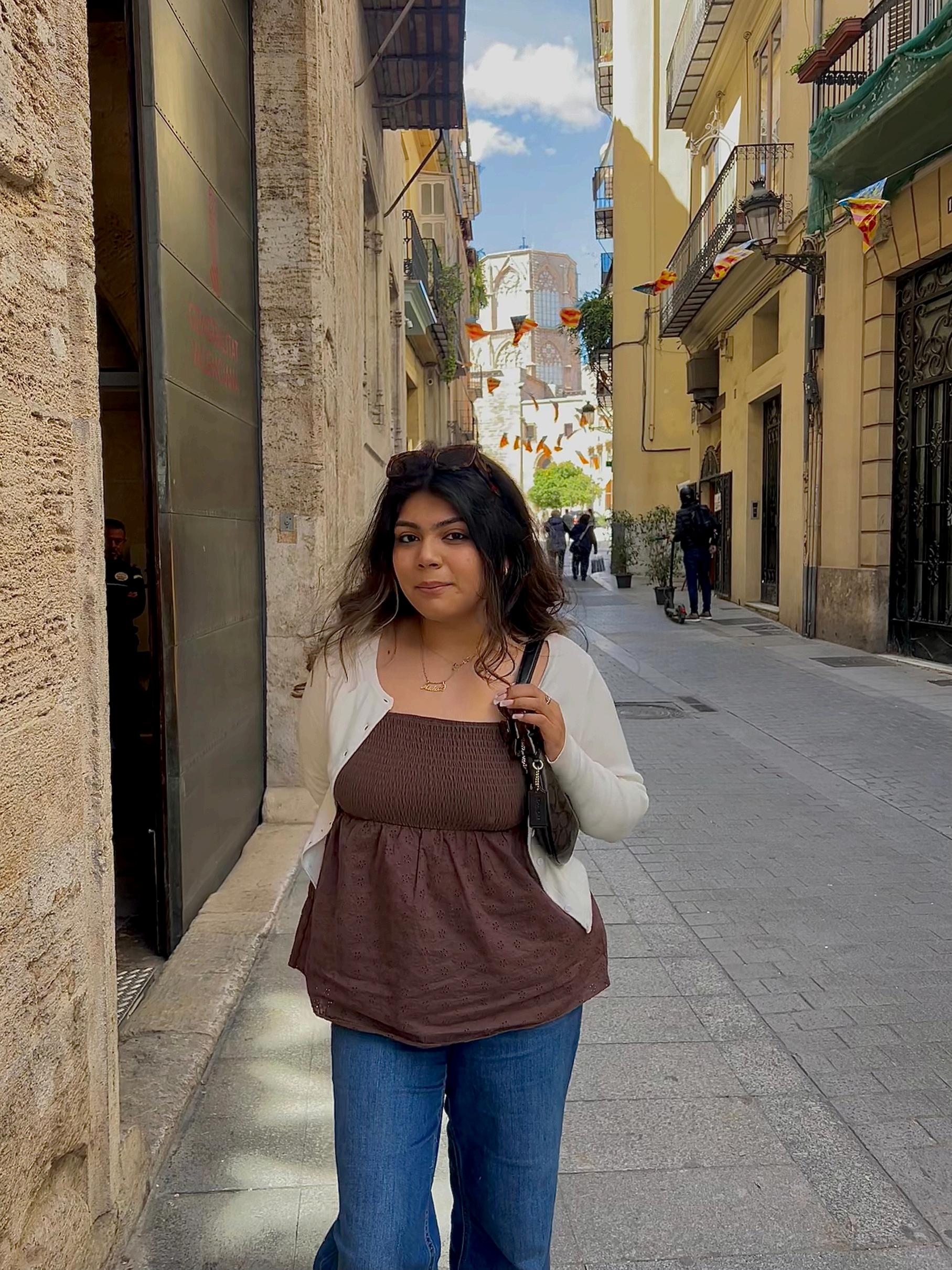
“Ienjoywatchingfilms,takinglong walks,anddiscoveringnewplacesin Chicago.IamexcitedtojointheLALS andCLRTeamasawaytoget involvedinthedifferentopportunities theyprovideforLatinxstudentsand thecommunity.”
Lourdes Torres
LALS Chair ltorres@depaul.edu
Bill Johnson González
CLR Director bjohns58@depaul.edu
Marcela L. Reales Visbal
CLR Assistant Director mrealesv@depaul.edu
Emilio Díaz Department Assistant ediaz68@depaul.edu
Gigi Lara
Student Assistant alara26@depaul.edu
Michelle Cisneros
Student Assistant mcisne11@depaul.edu
Goutam Kumar
Graduate Student Assistant gkumar5@depaul.edu


Follow us on Instagram @clr depaul @lals depaul
Email us clr@depaul.edu lals@depaul.edu
Call us (773) 325-7316 (773) 325-4818
Visit us 2320 N Kenmore Ave Schmitt Academic Center (SAC), 5A-H Chicago, IL, 60614
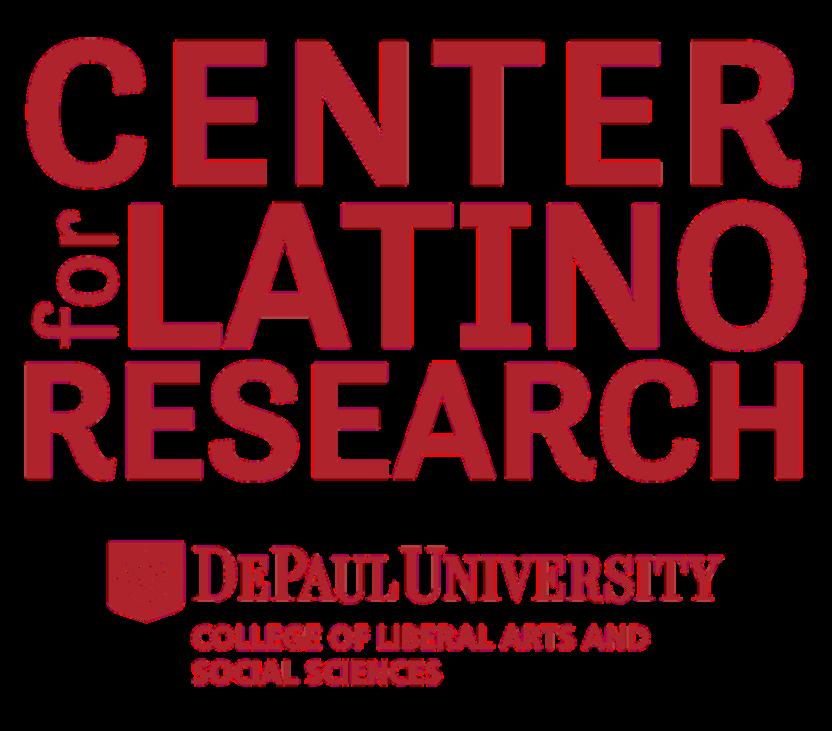

Like us on Facebook Center for Latino Research-DePaul University
The Department of Latin American and Latino Studies-DePaul University